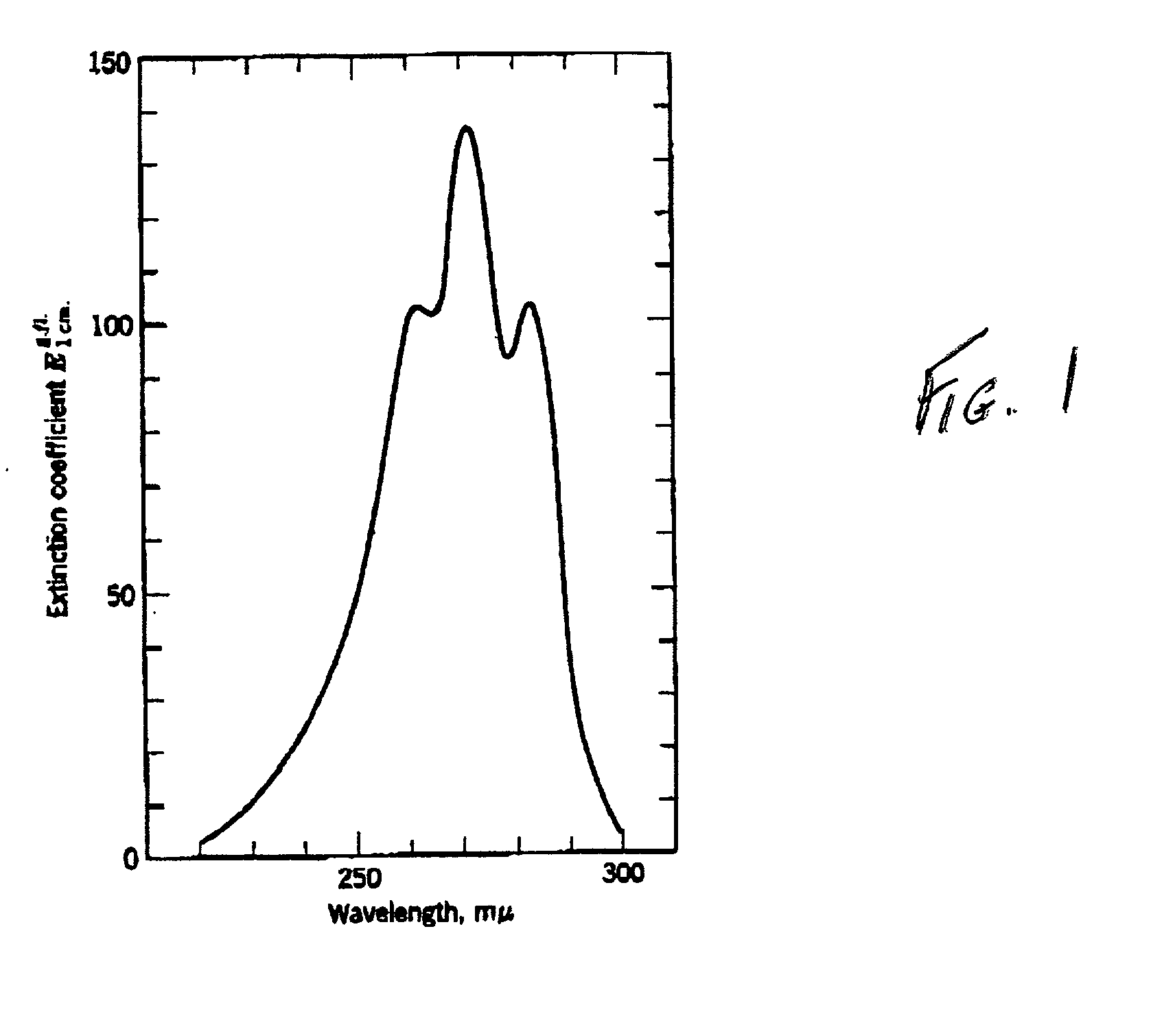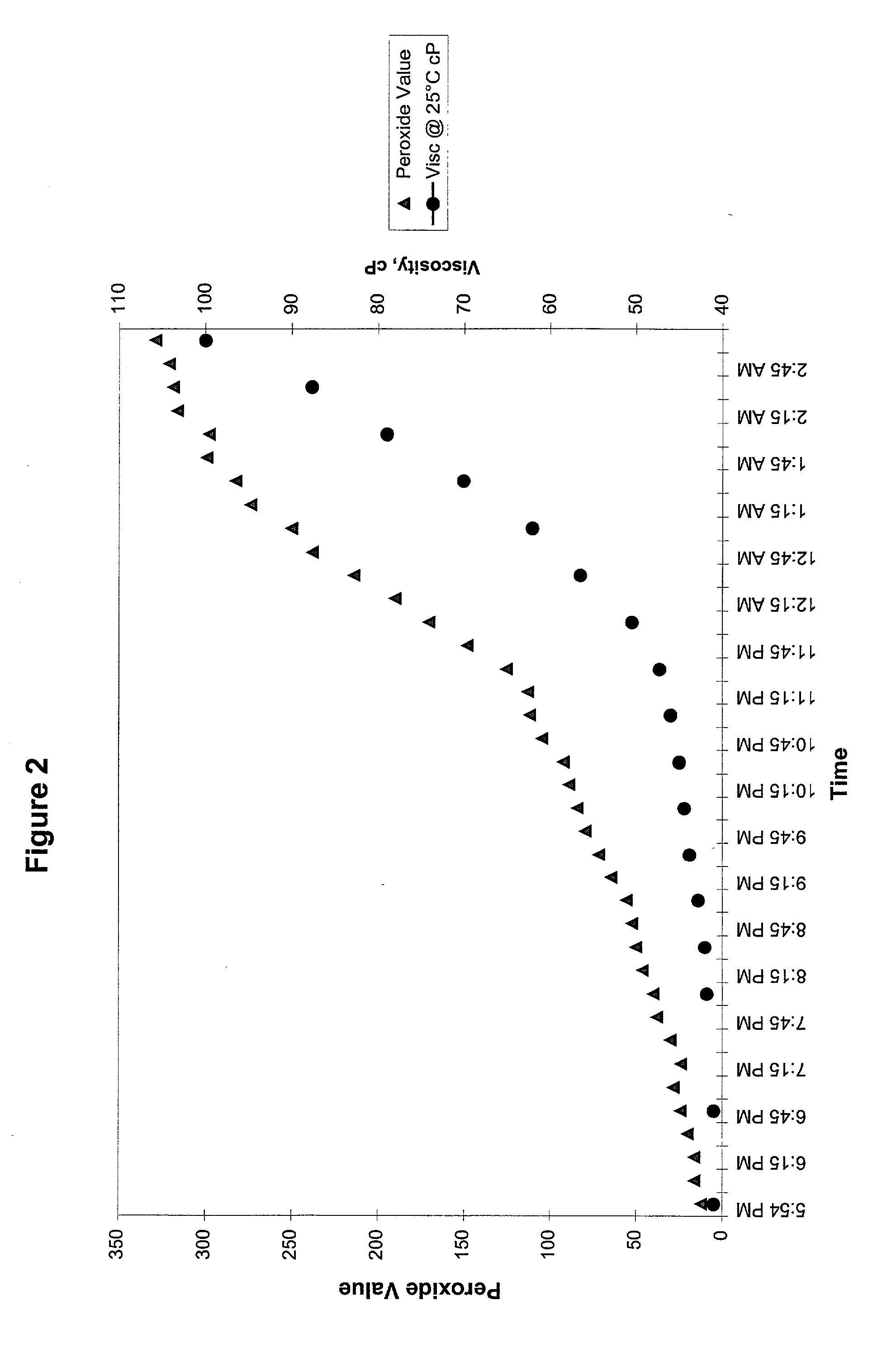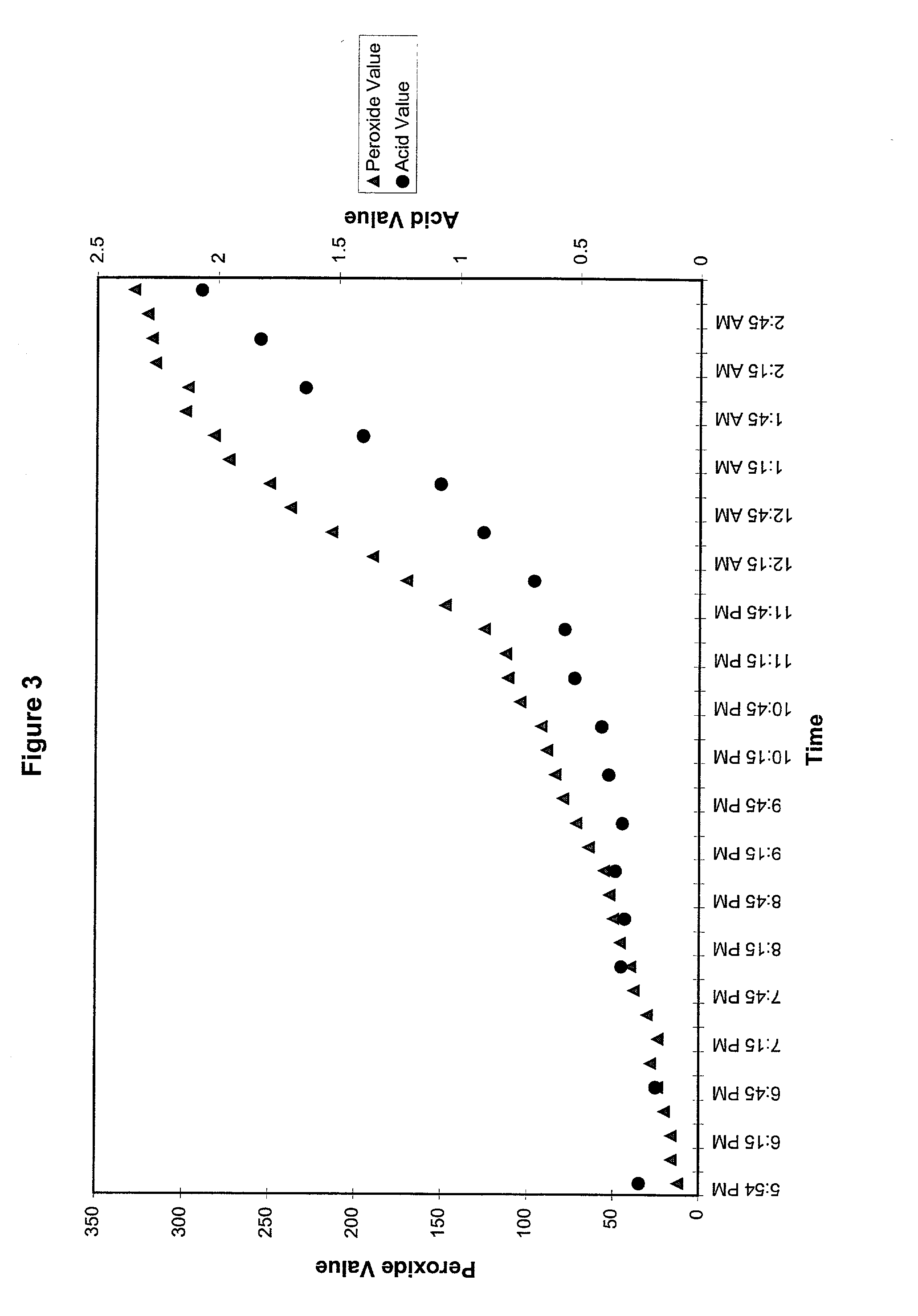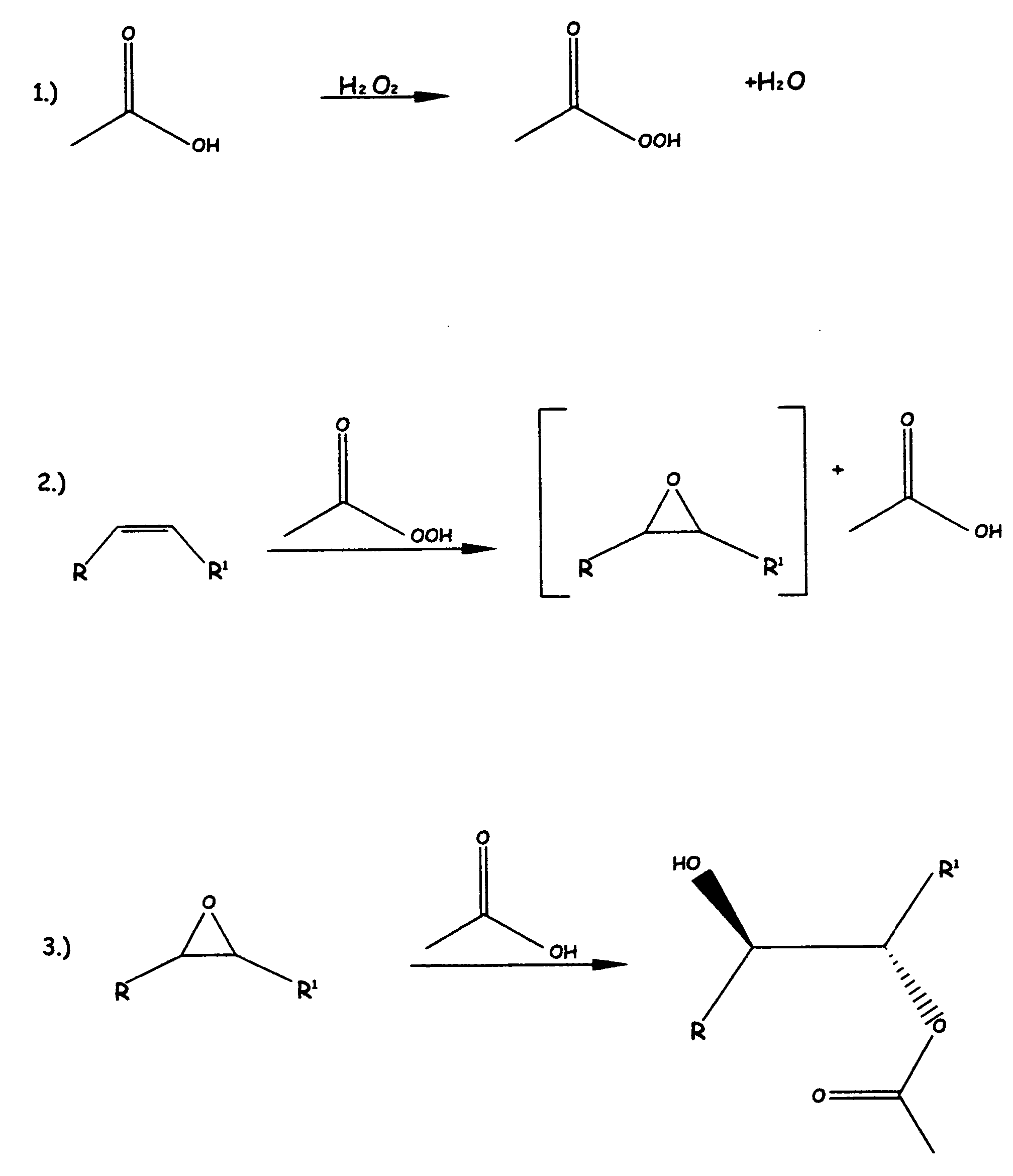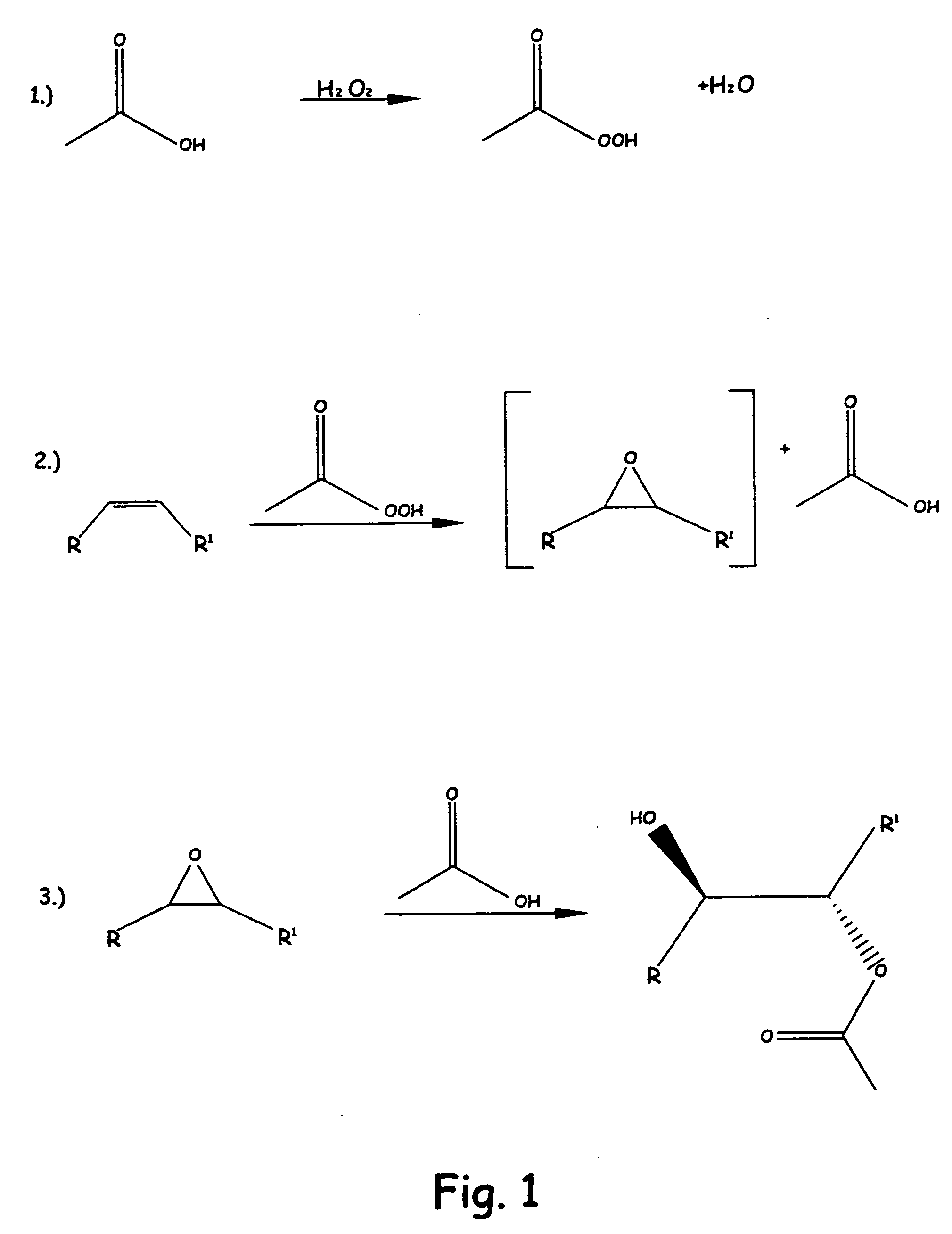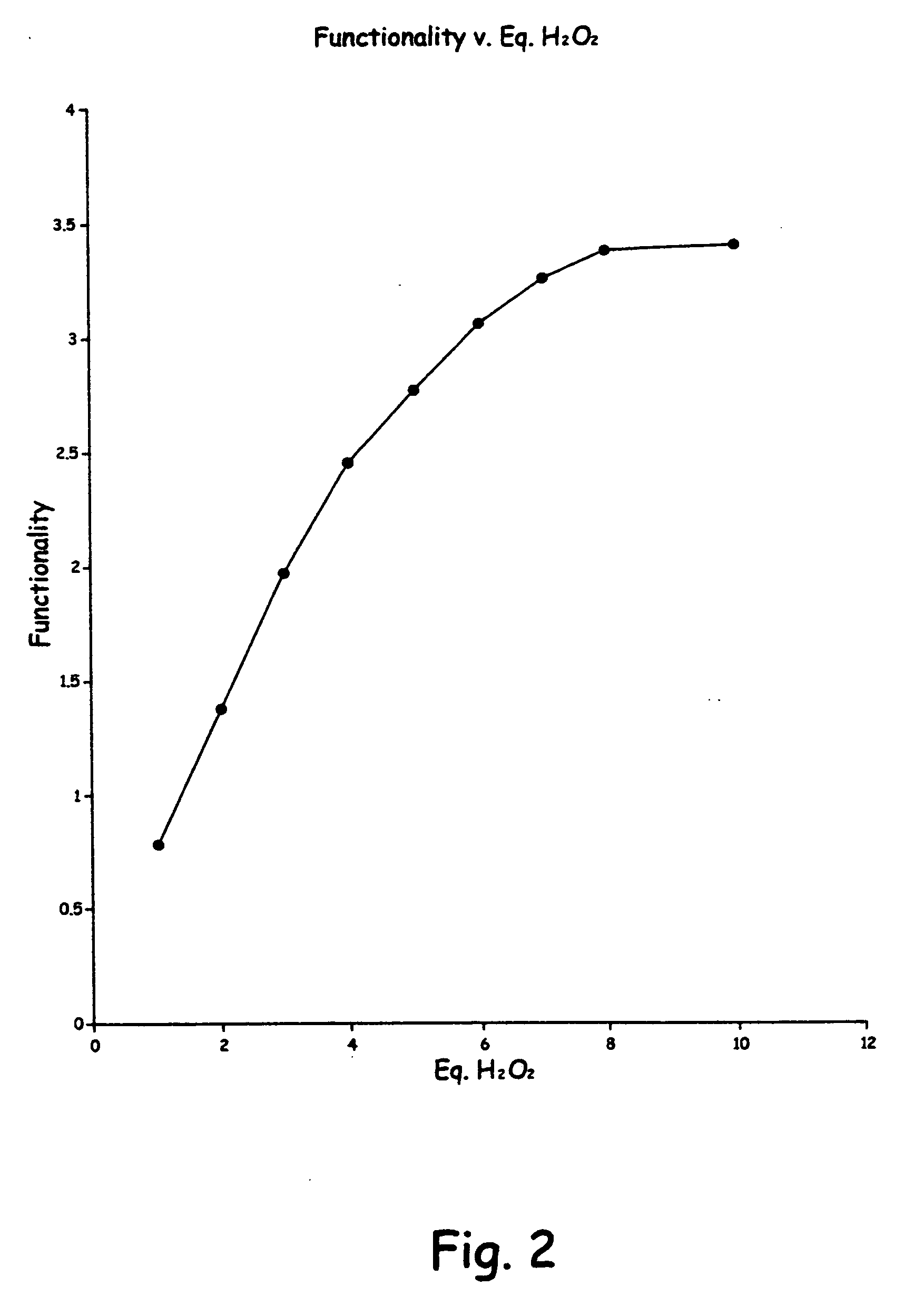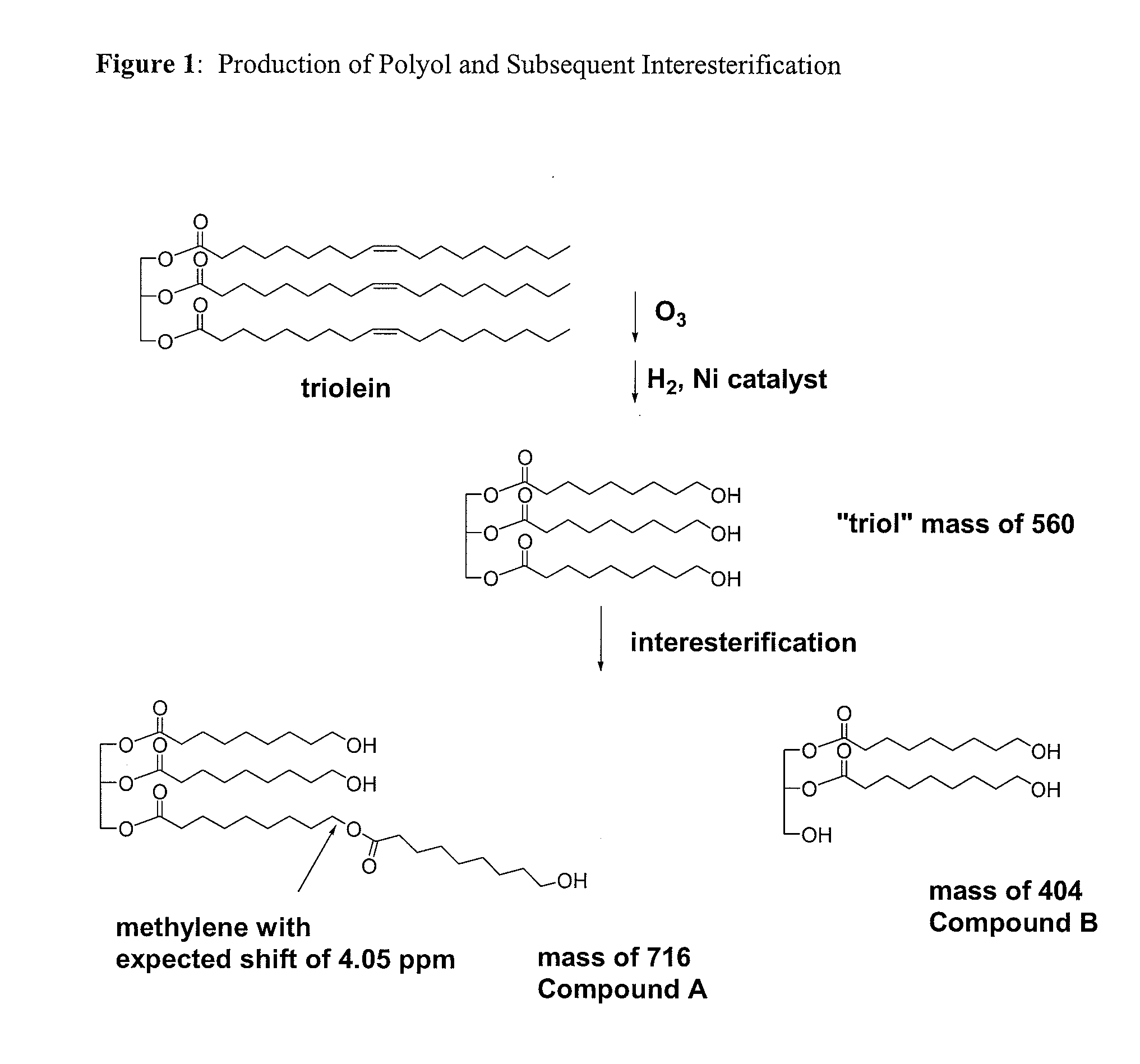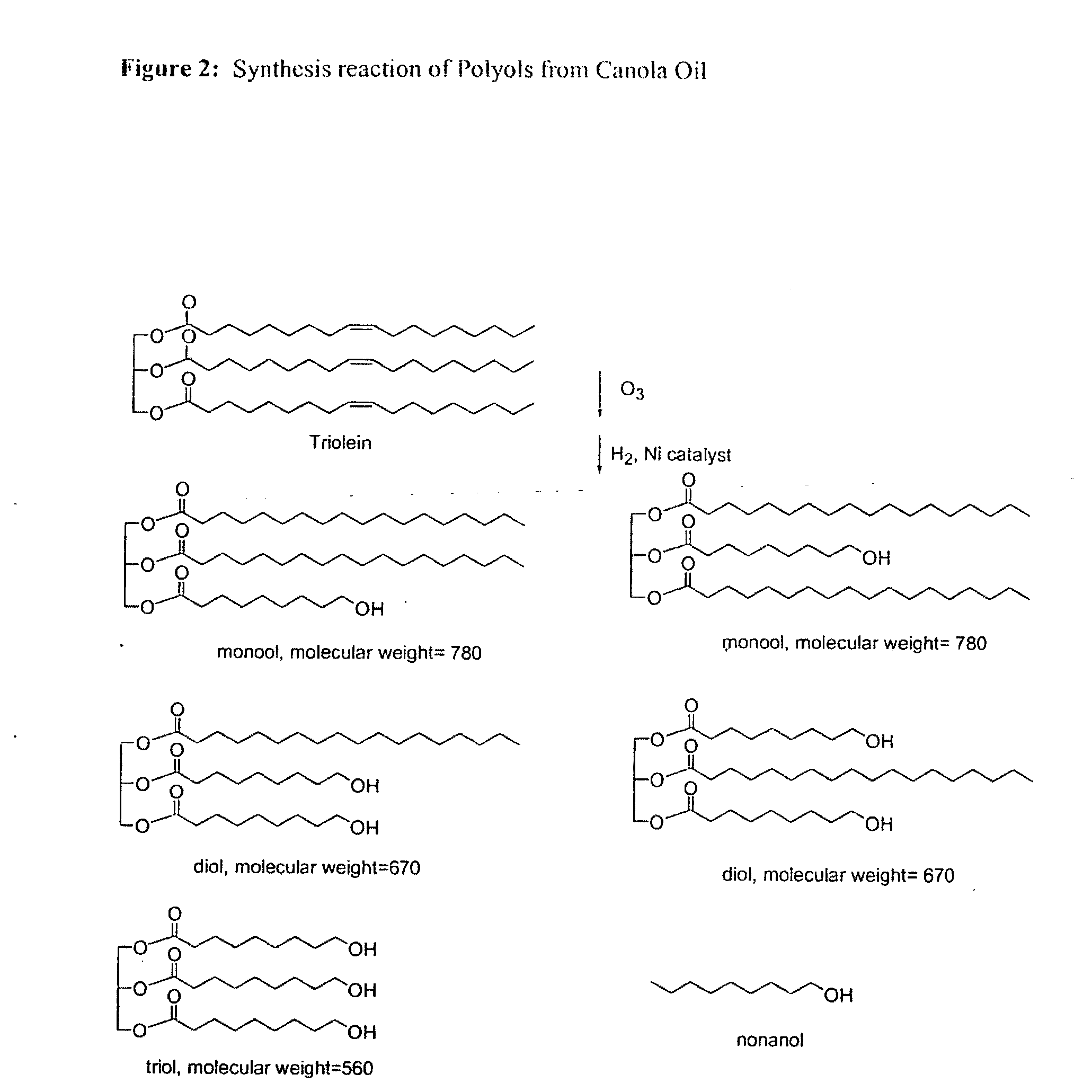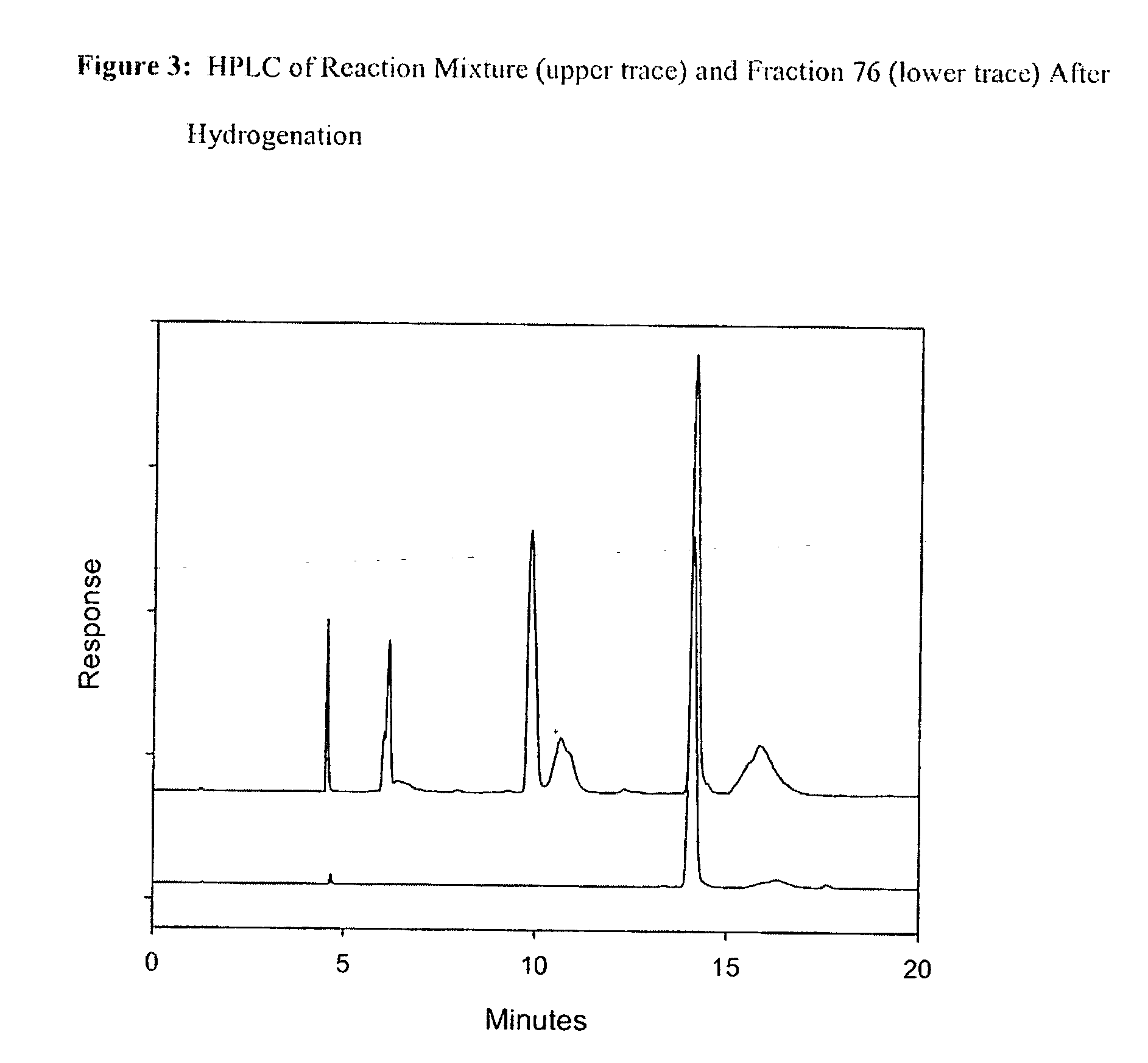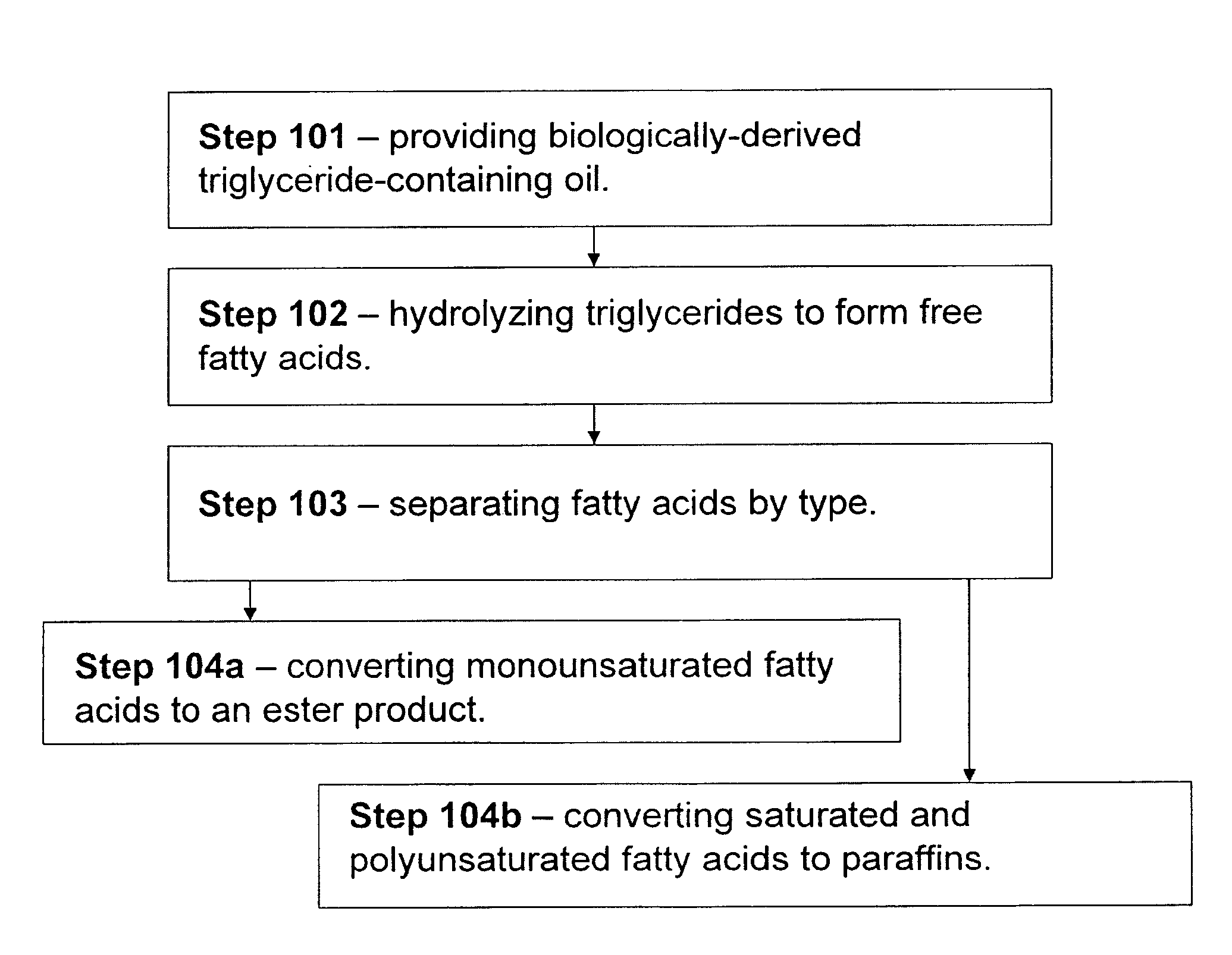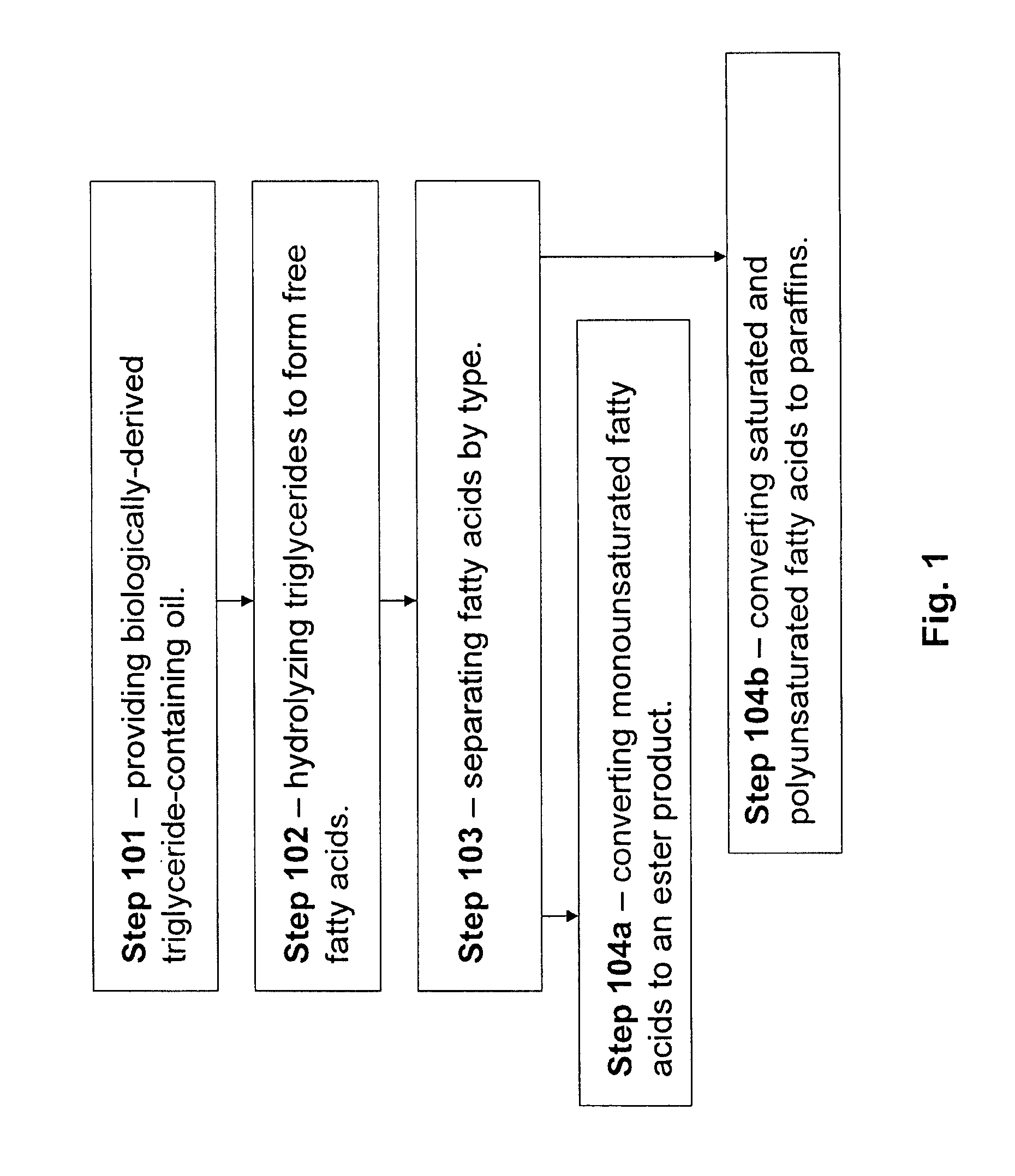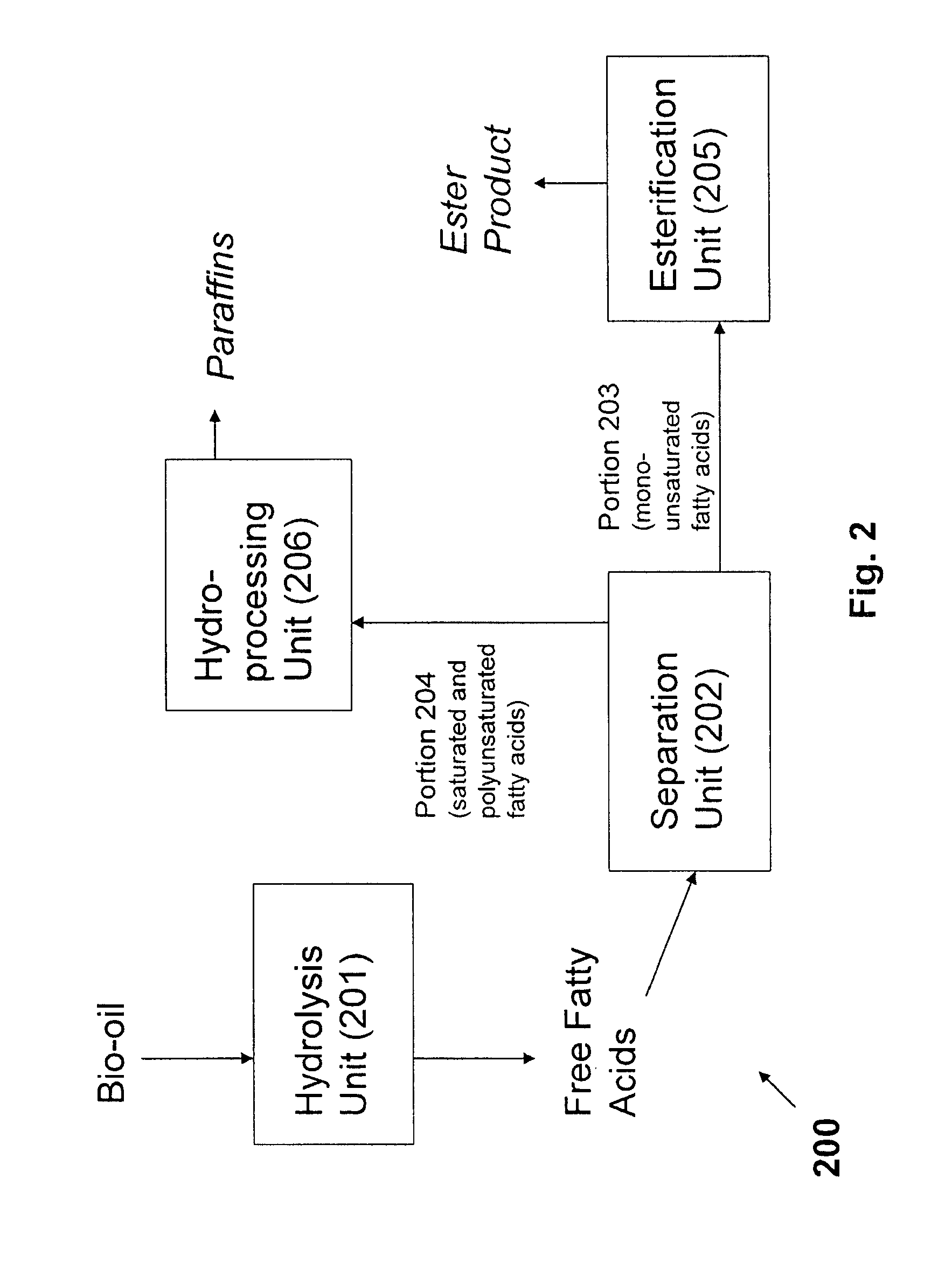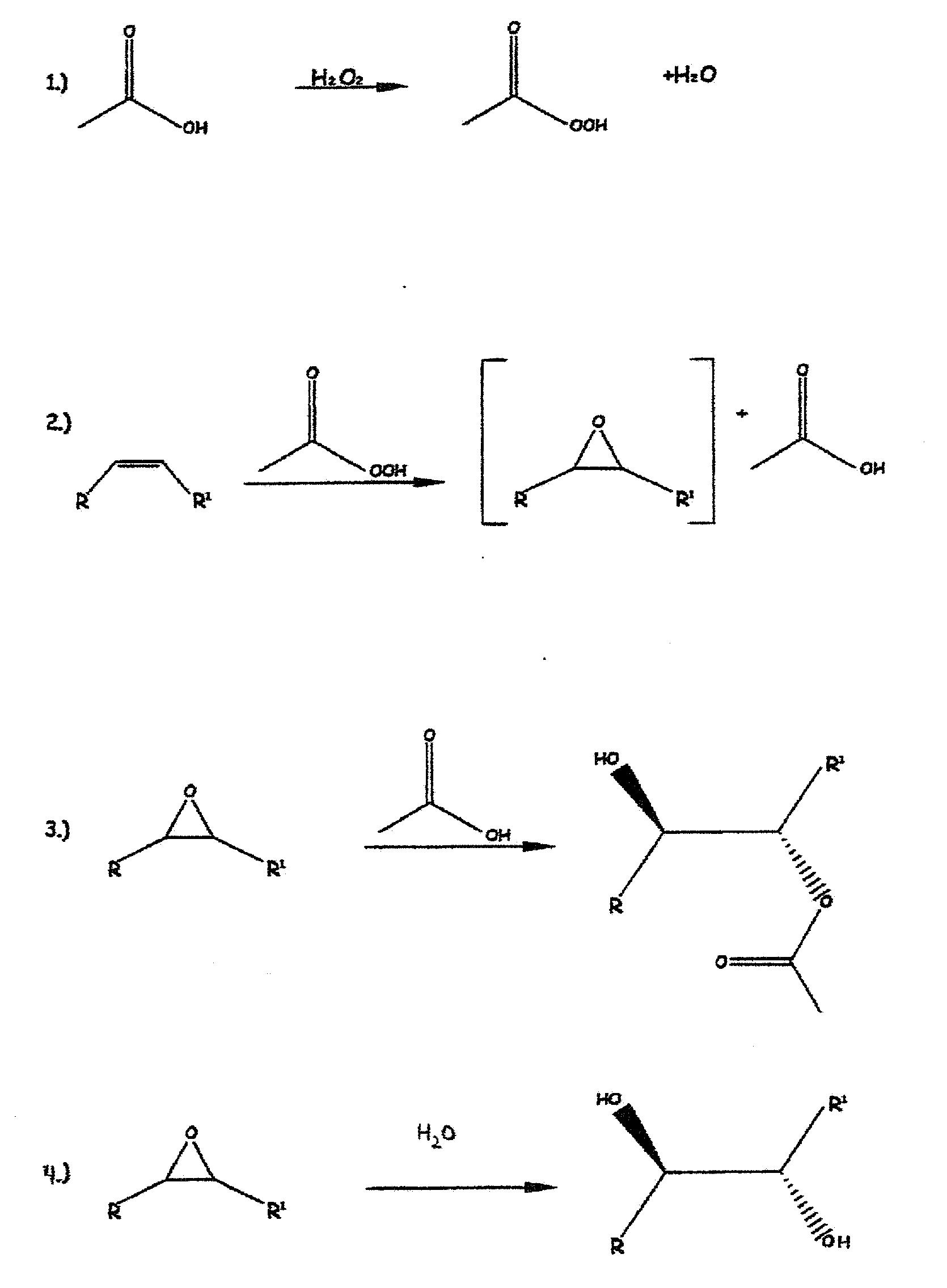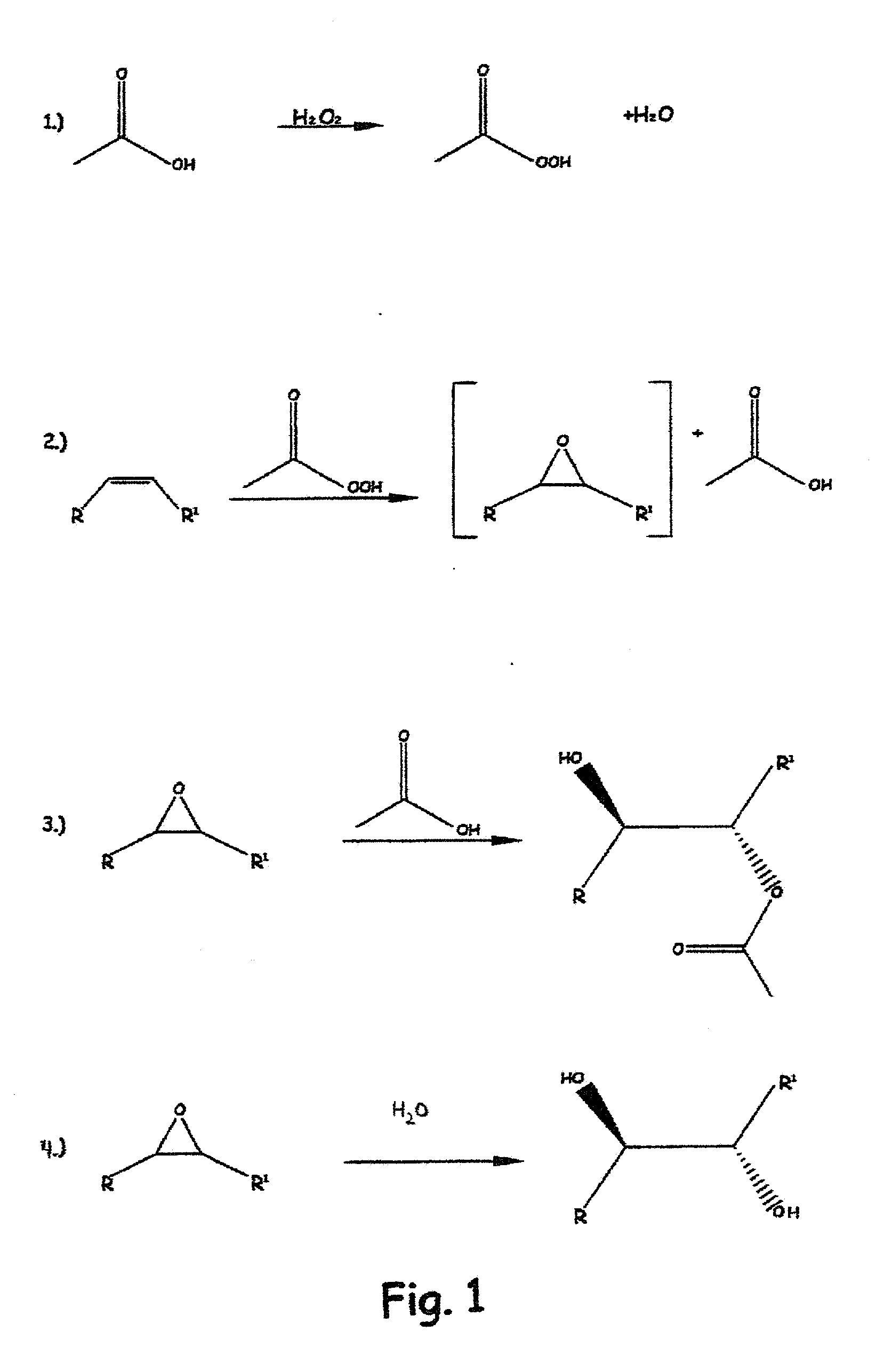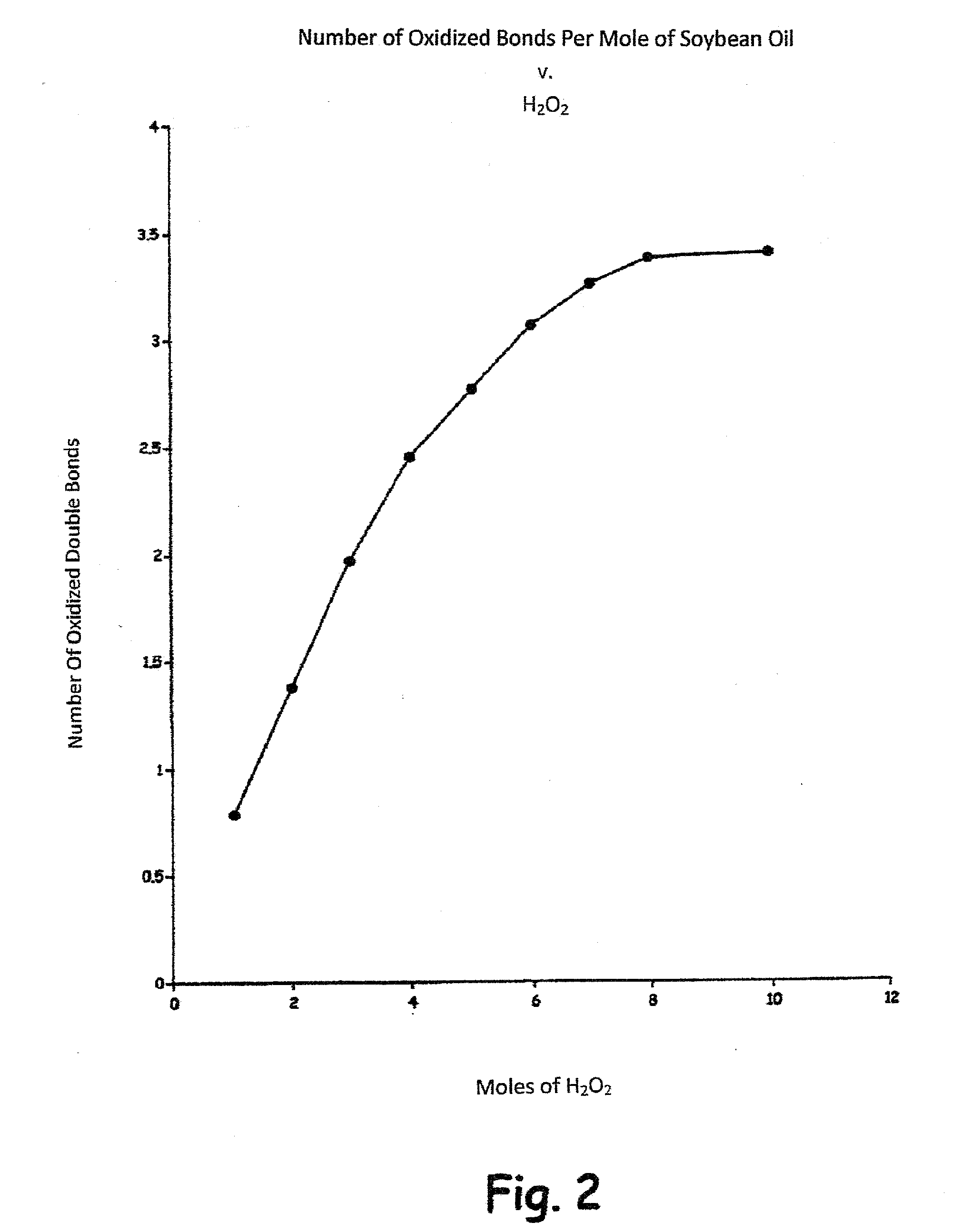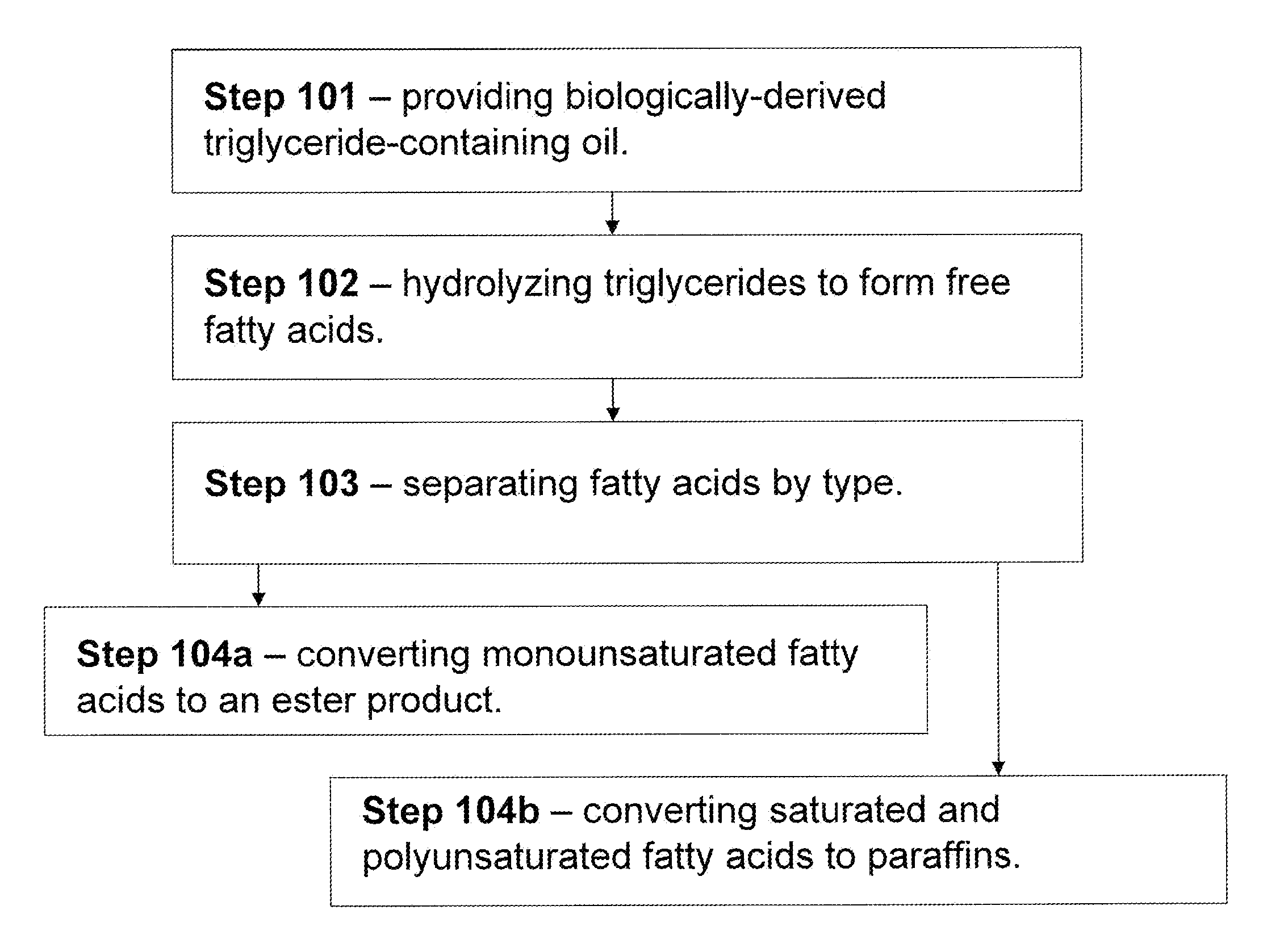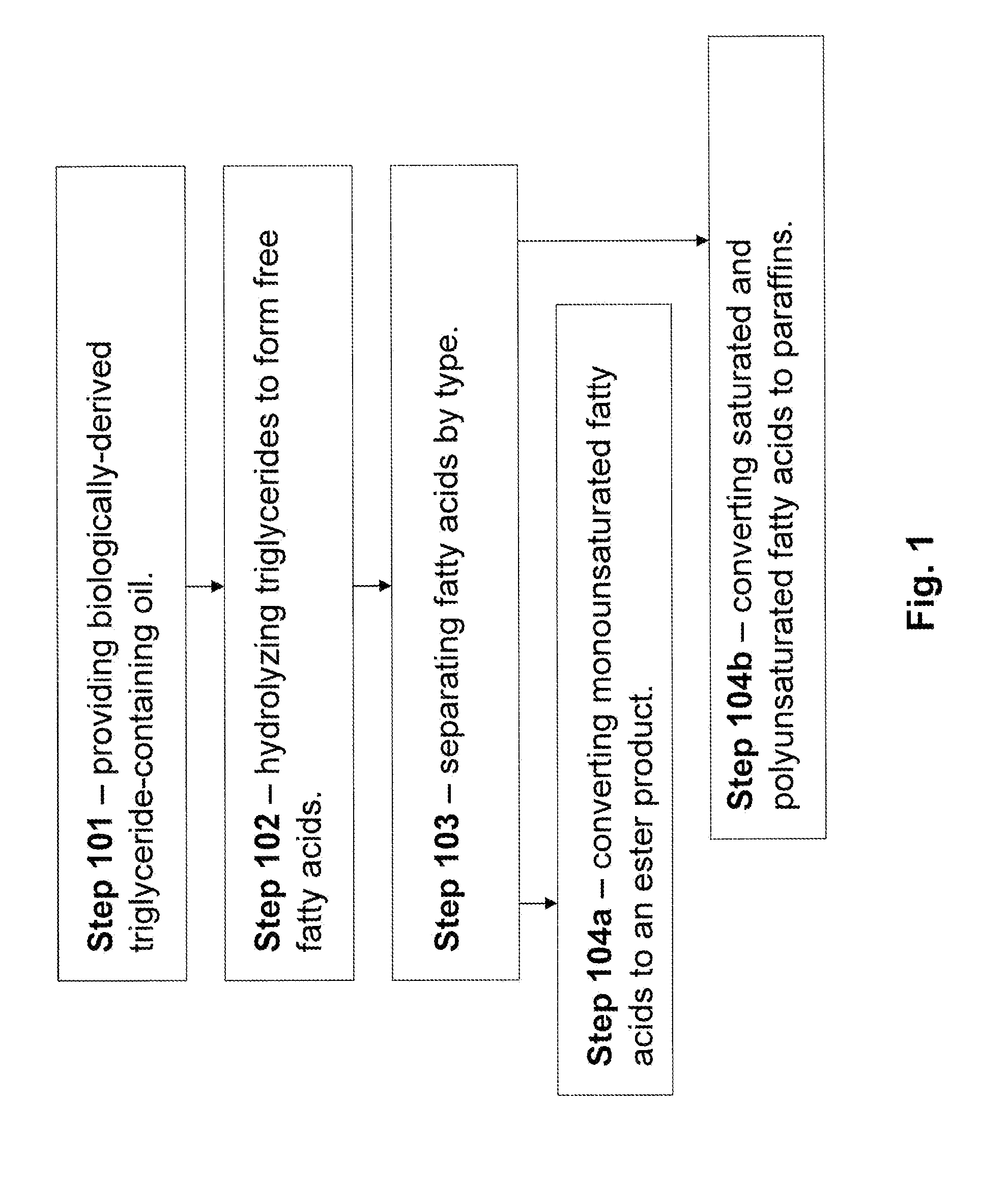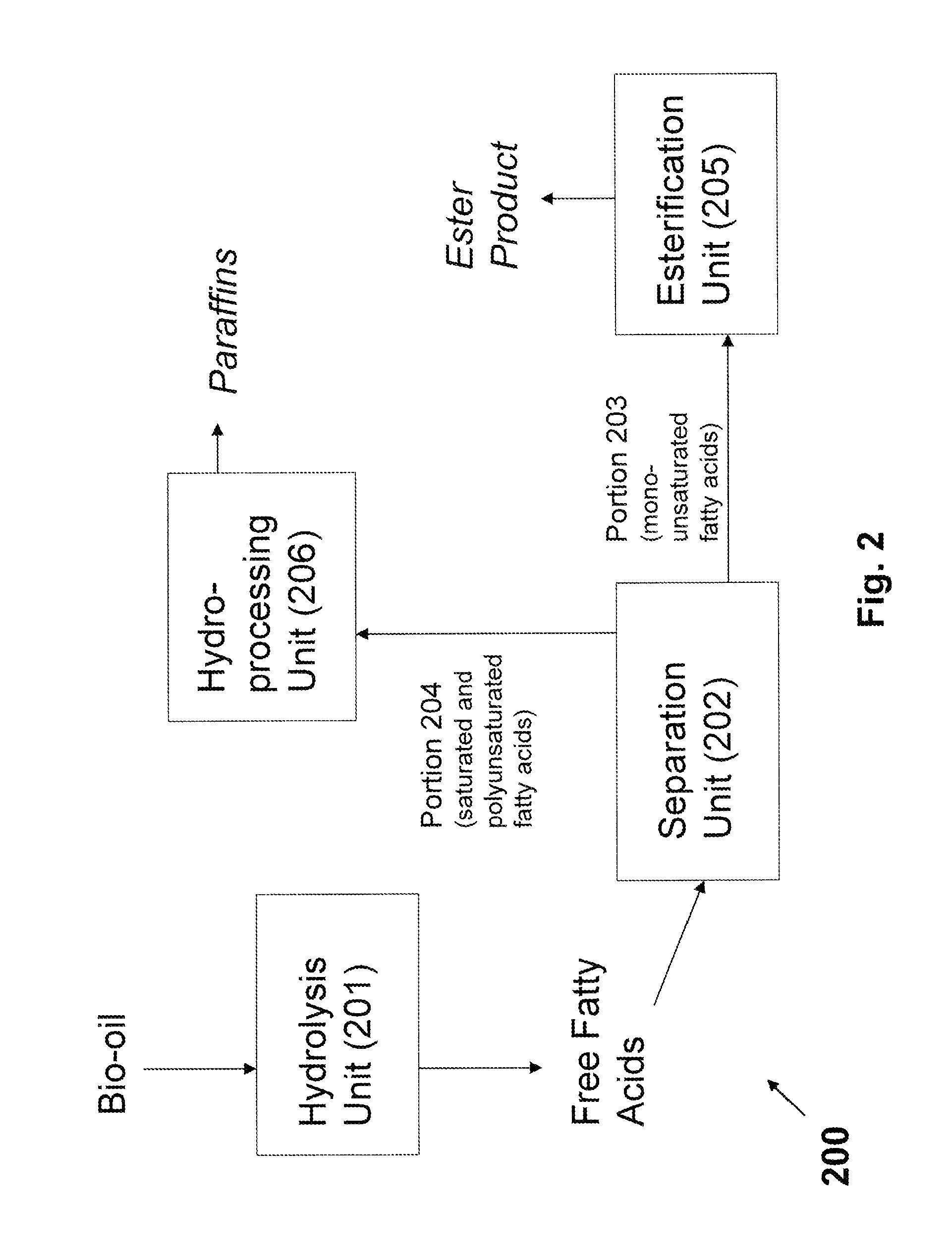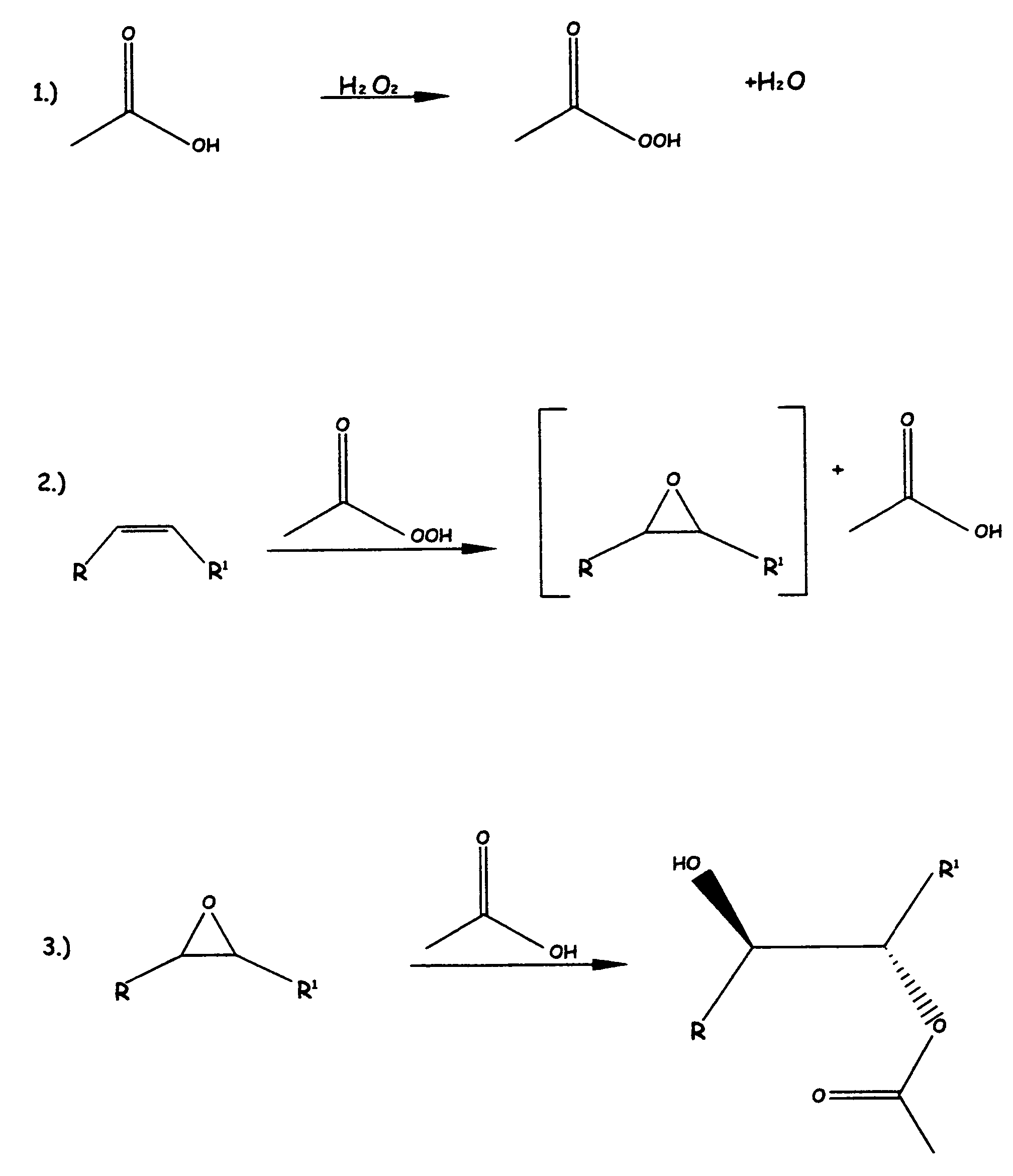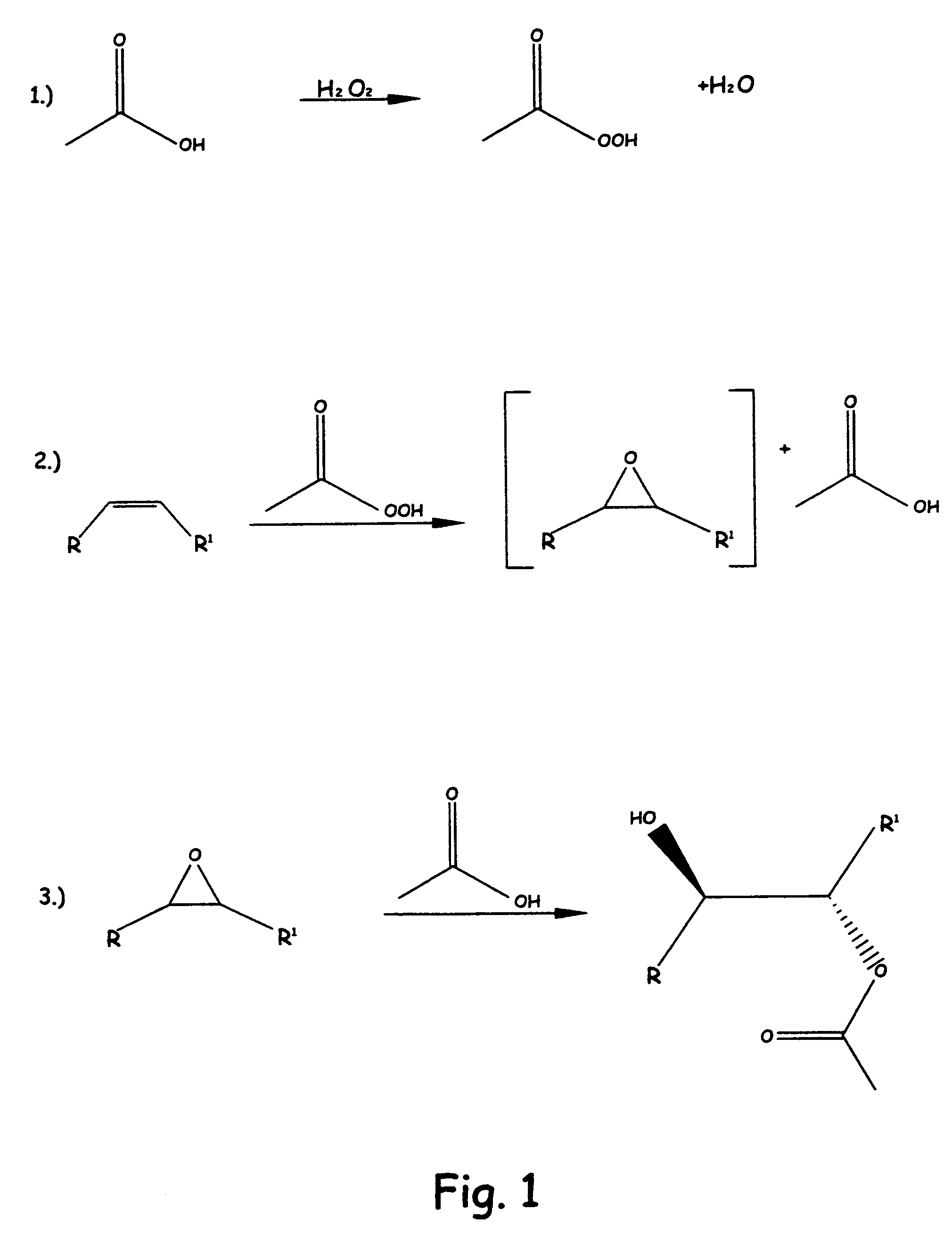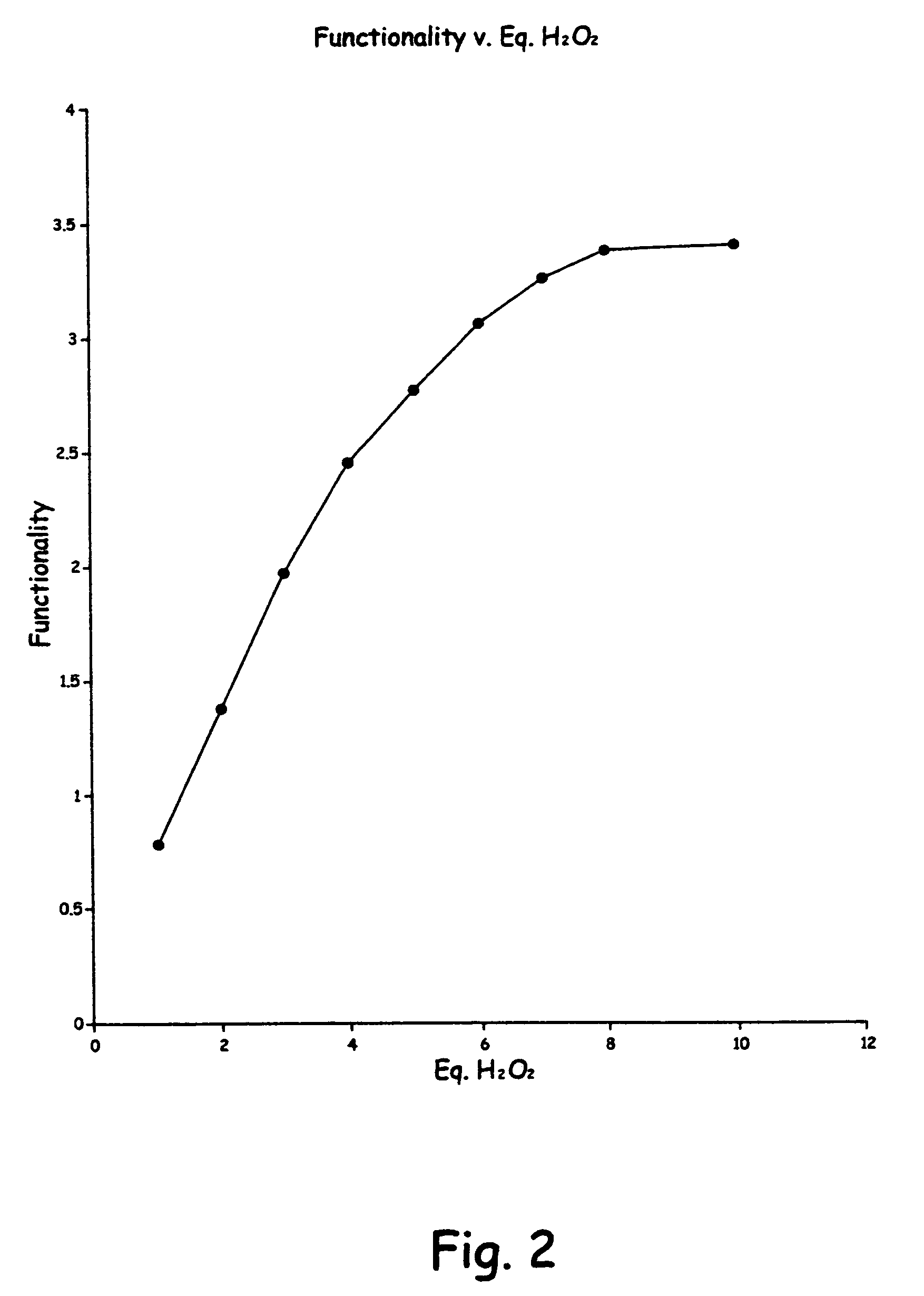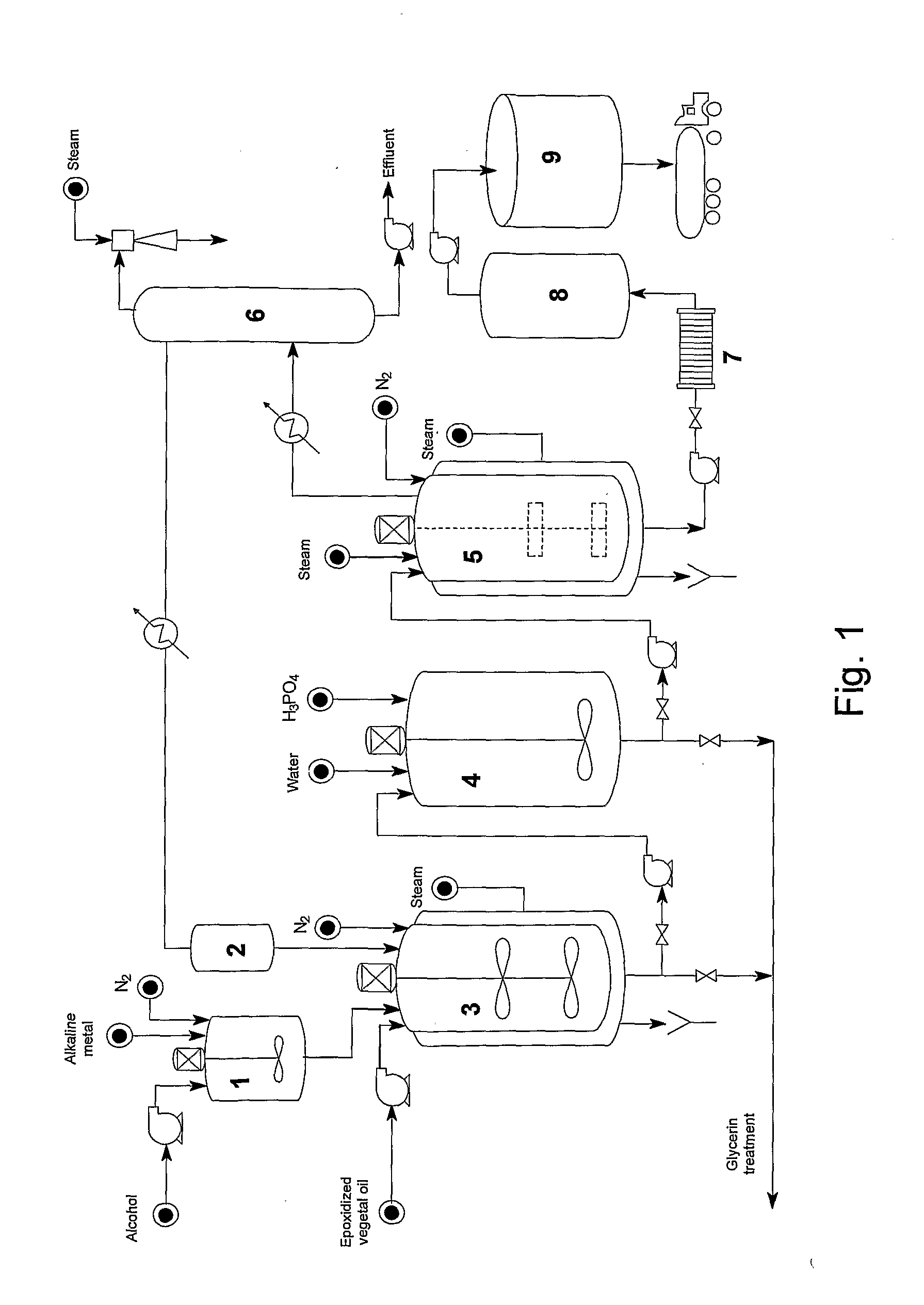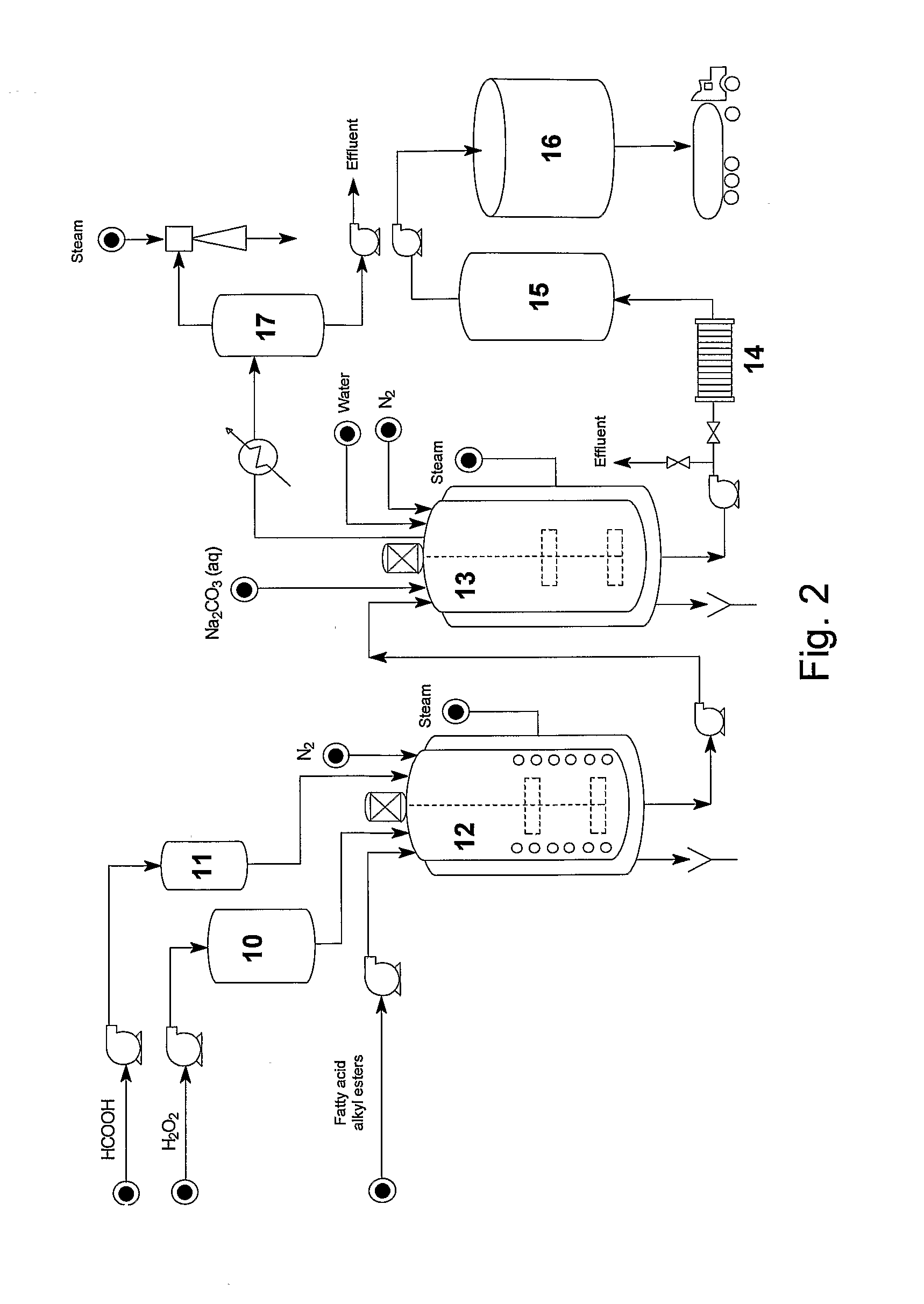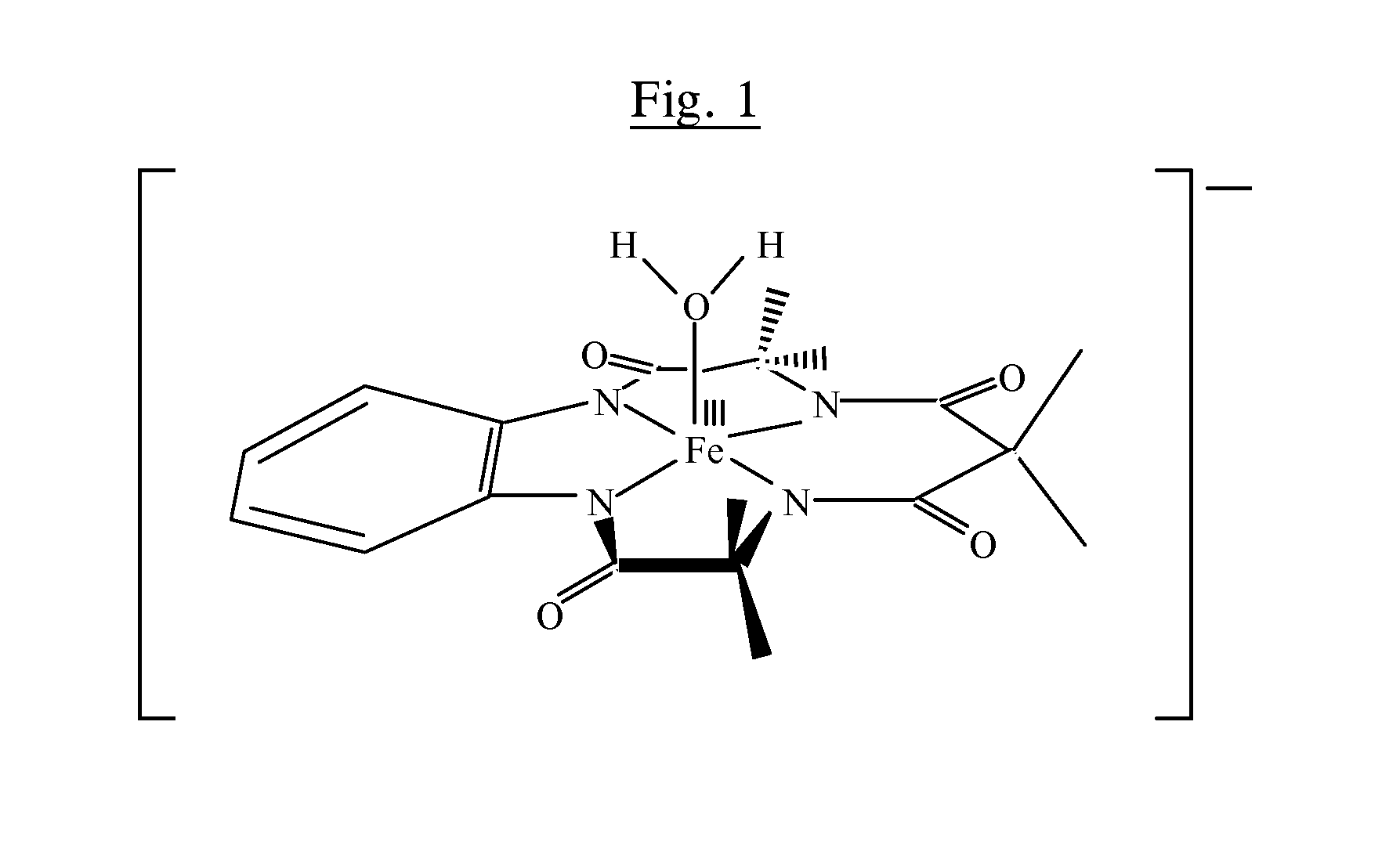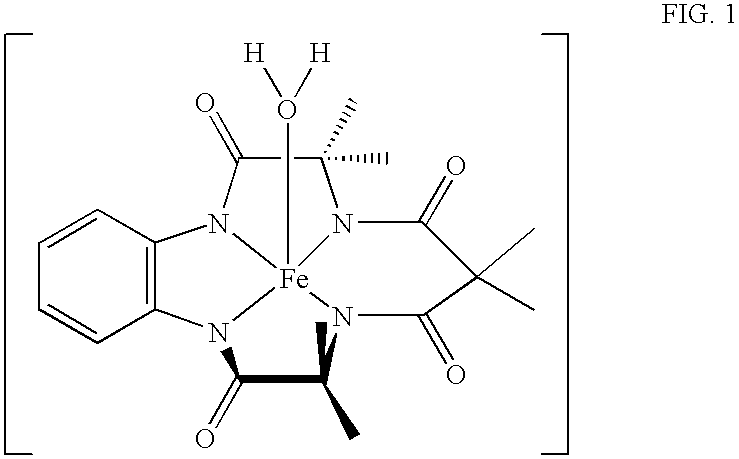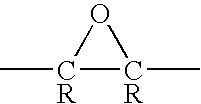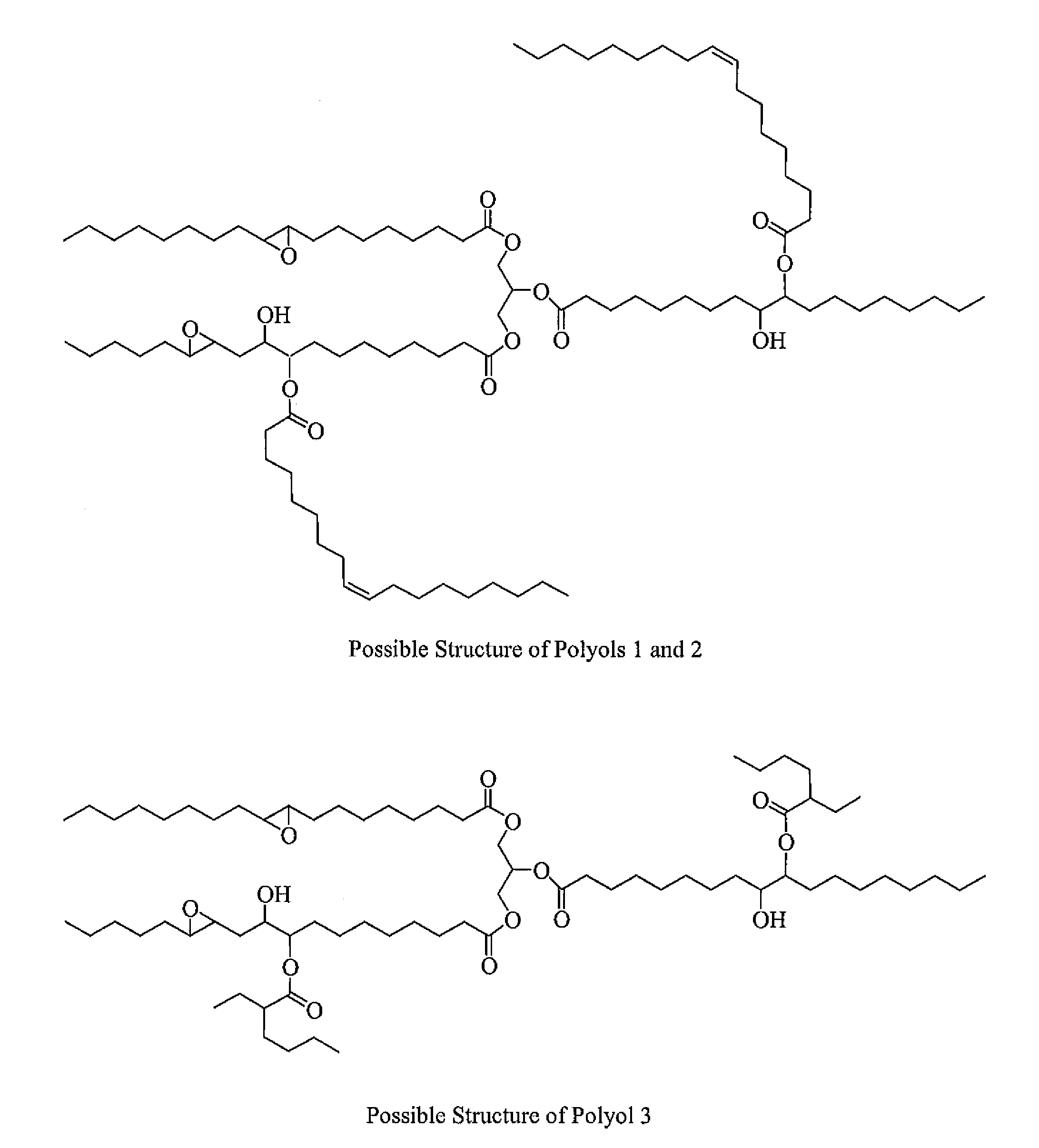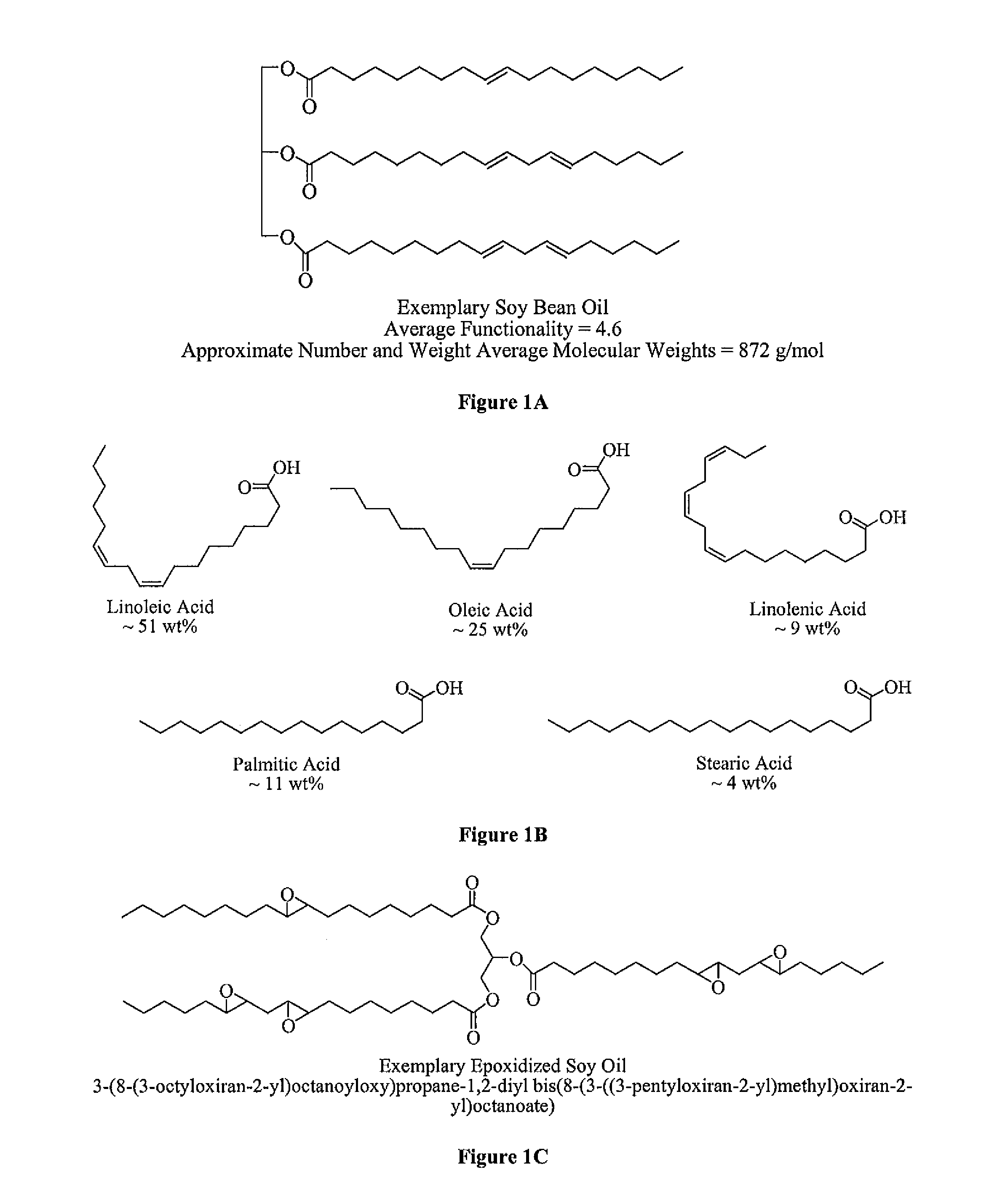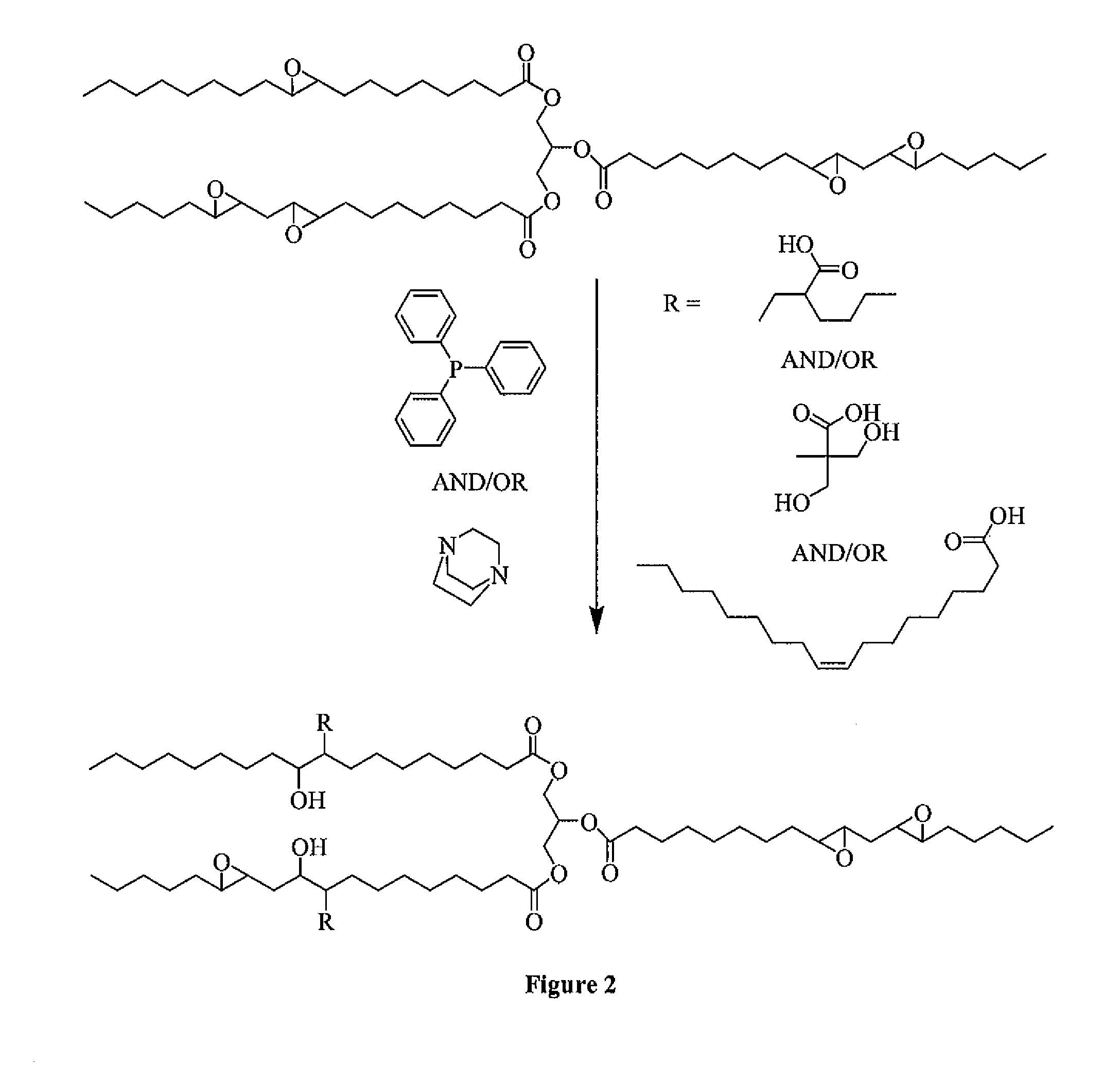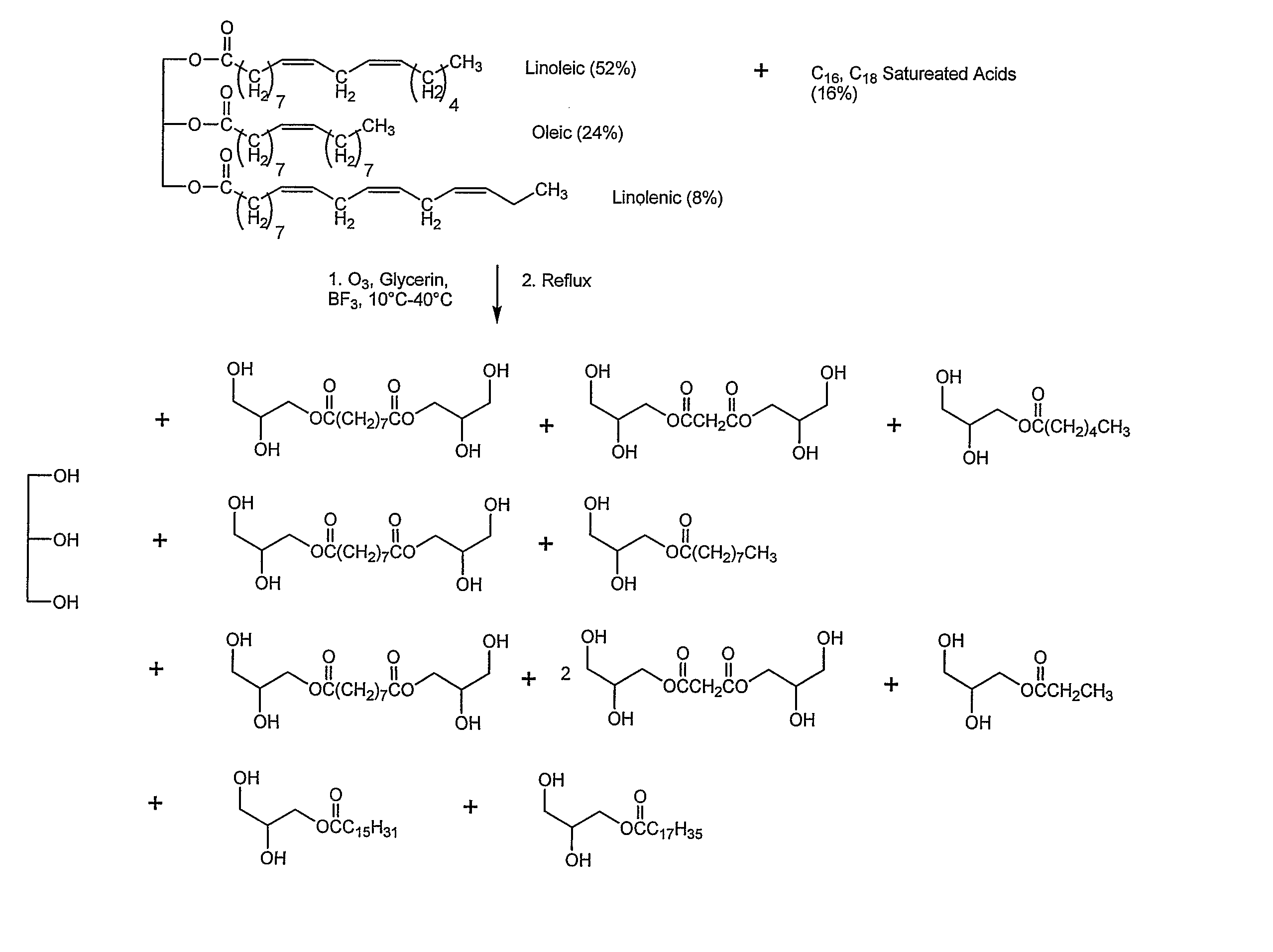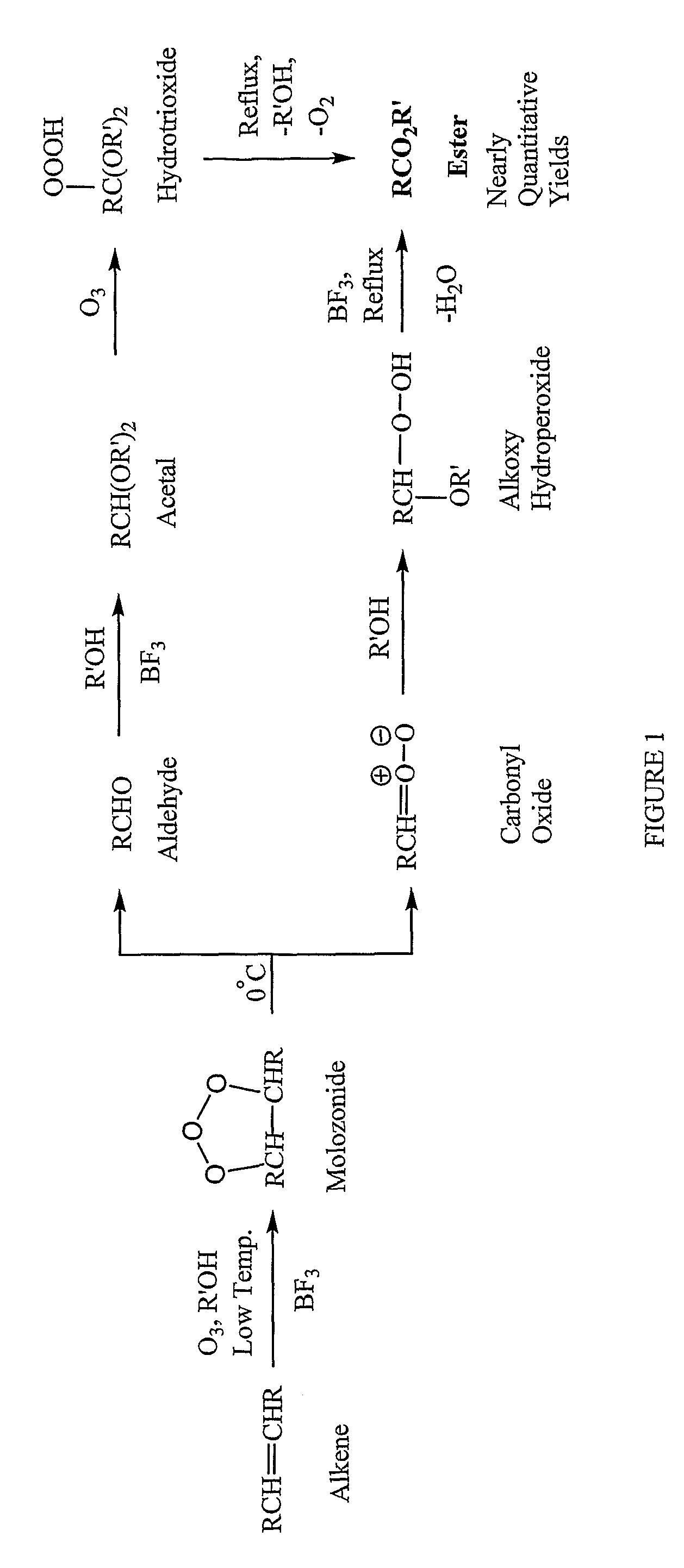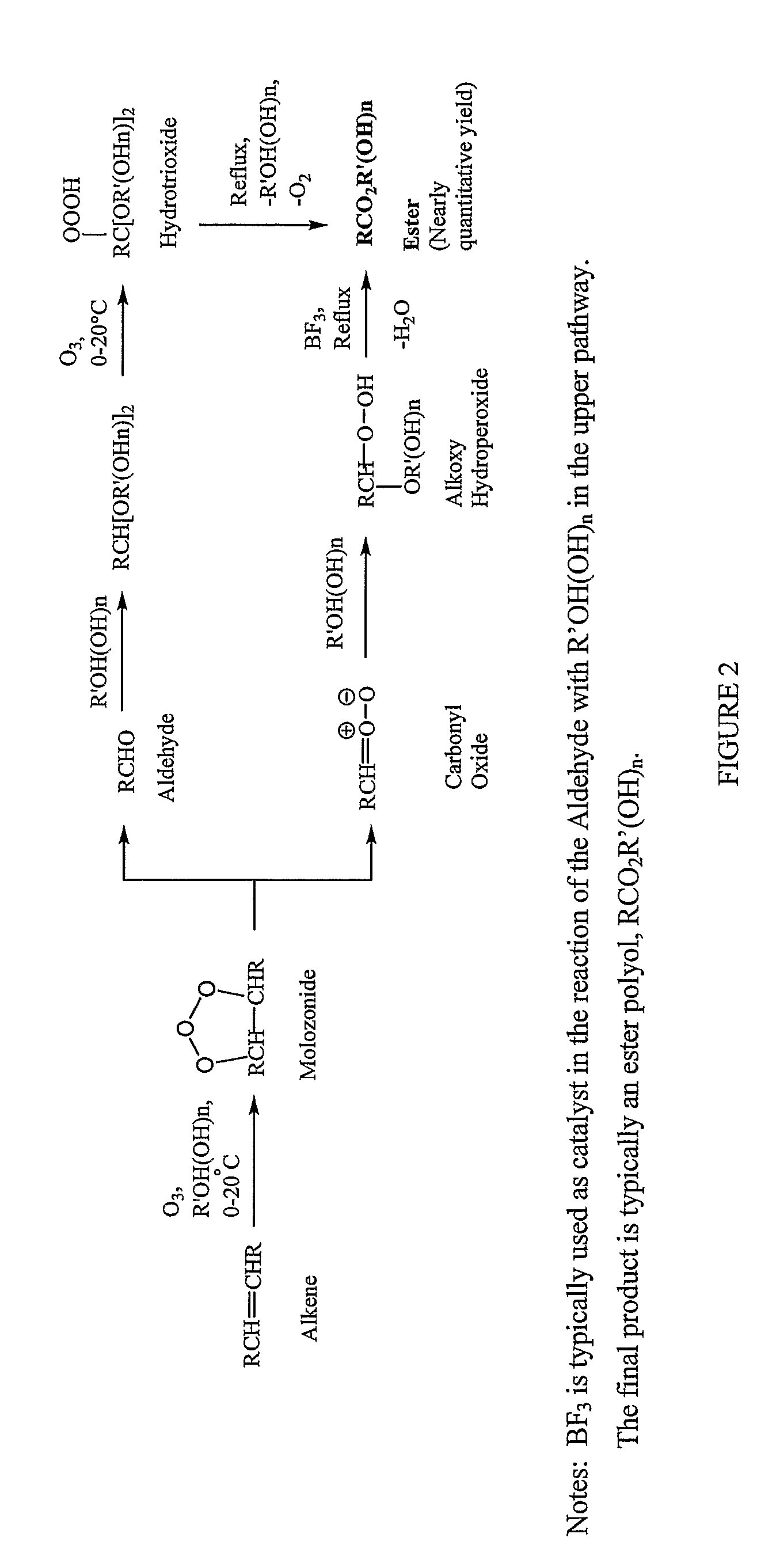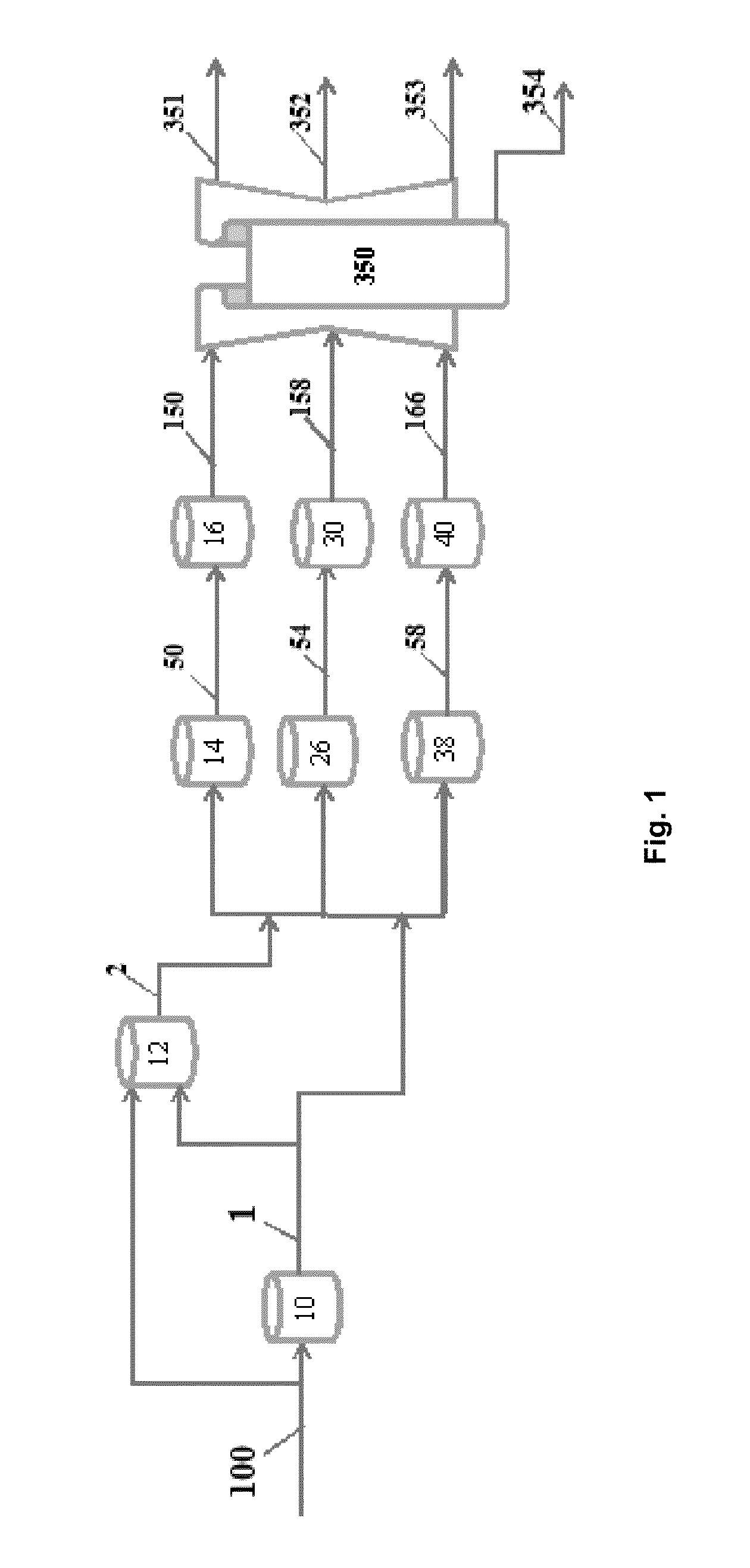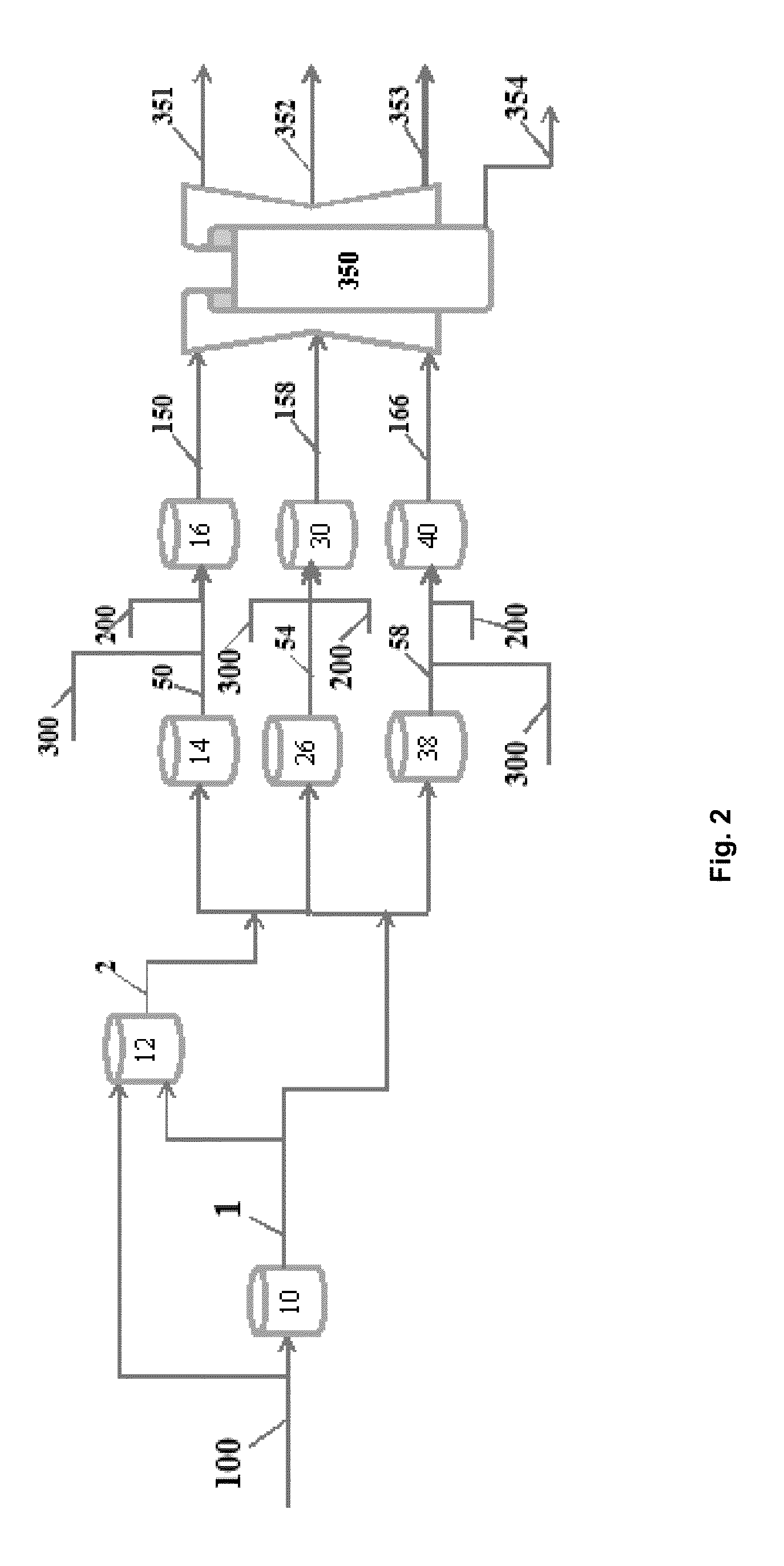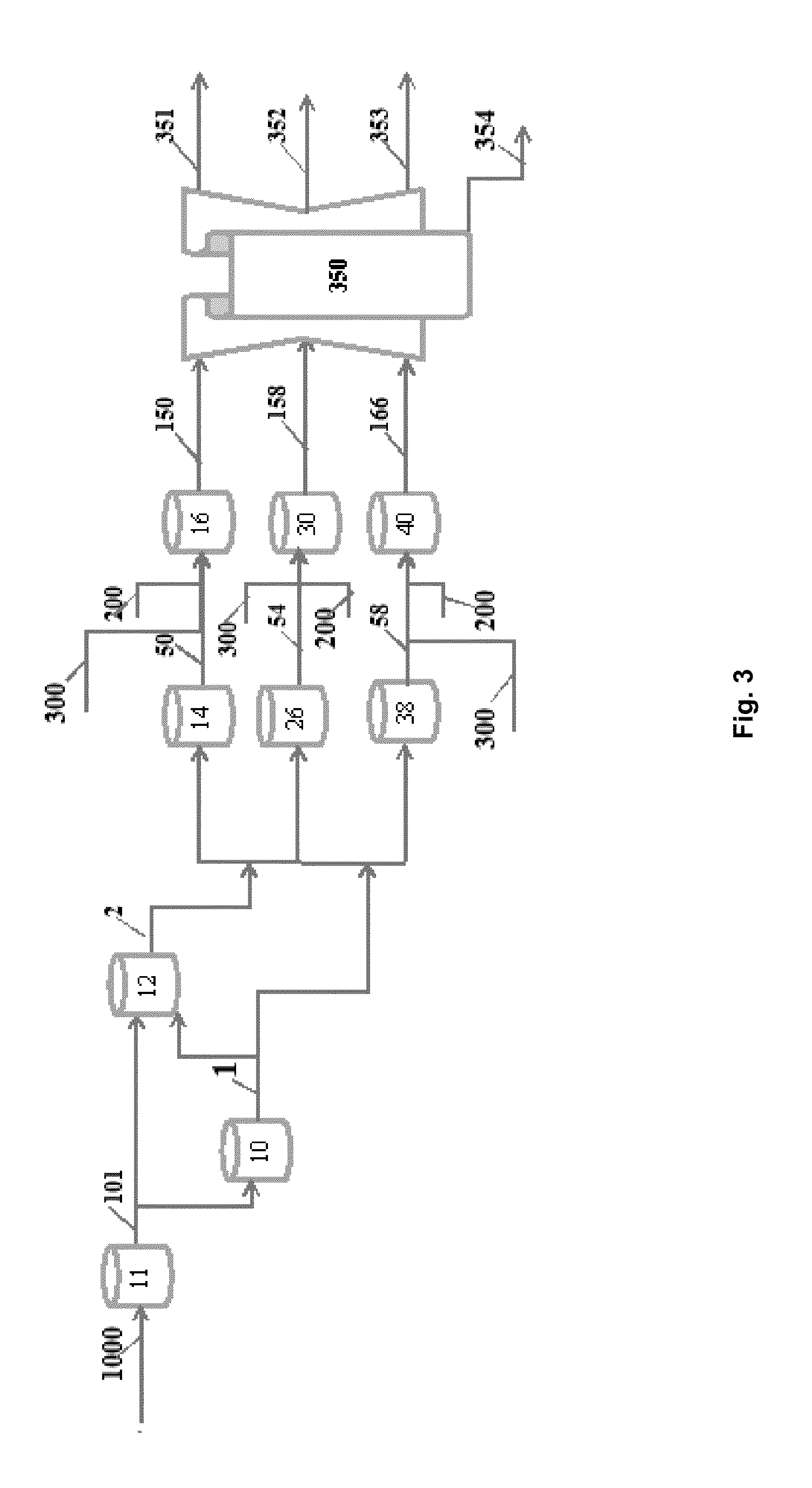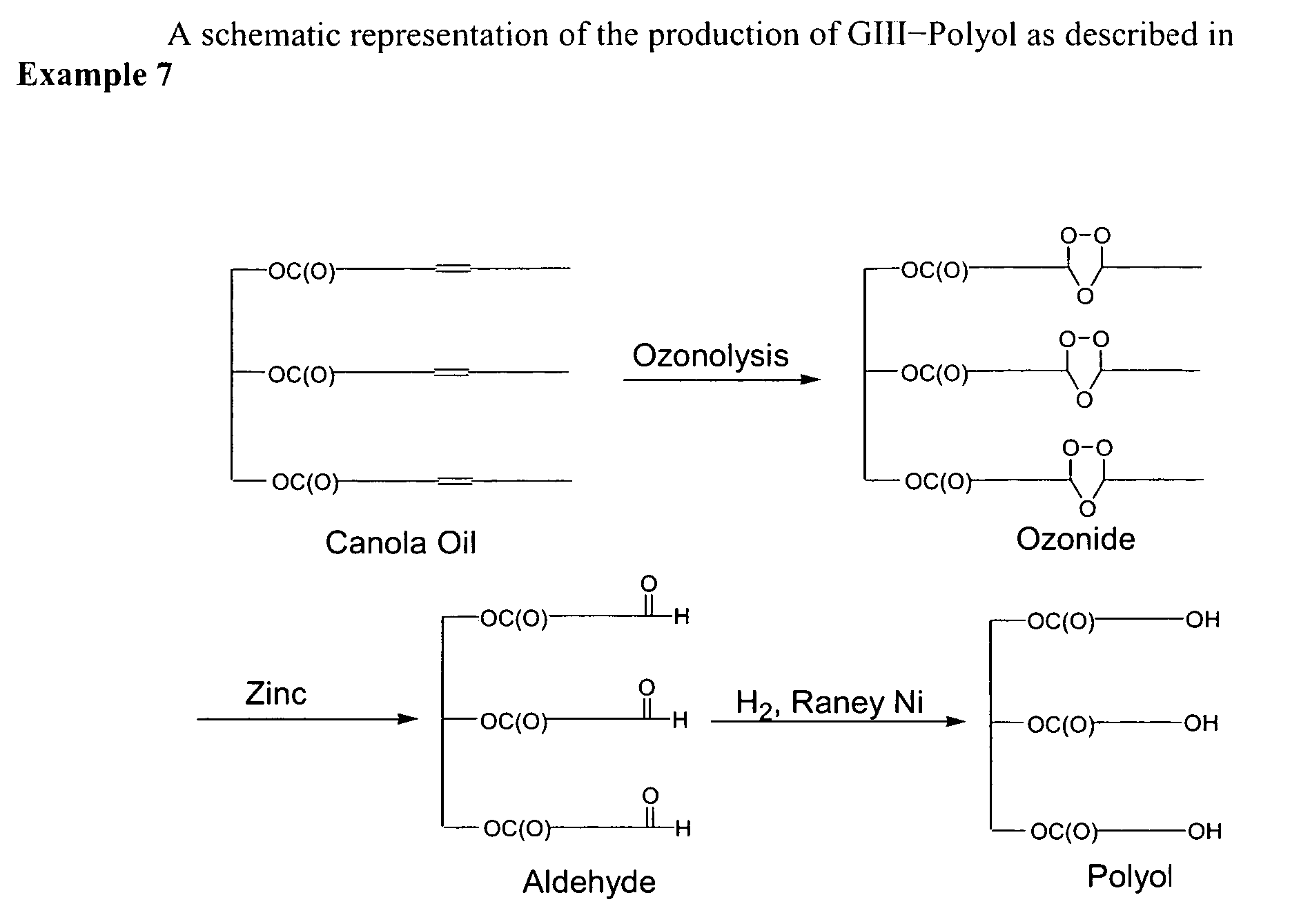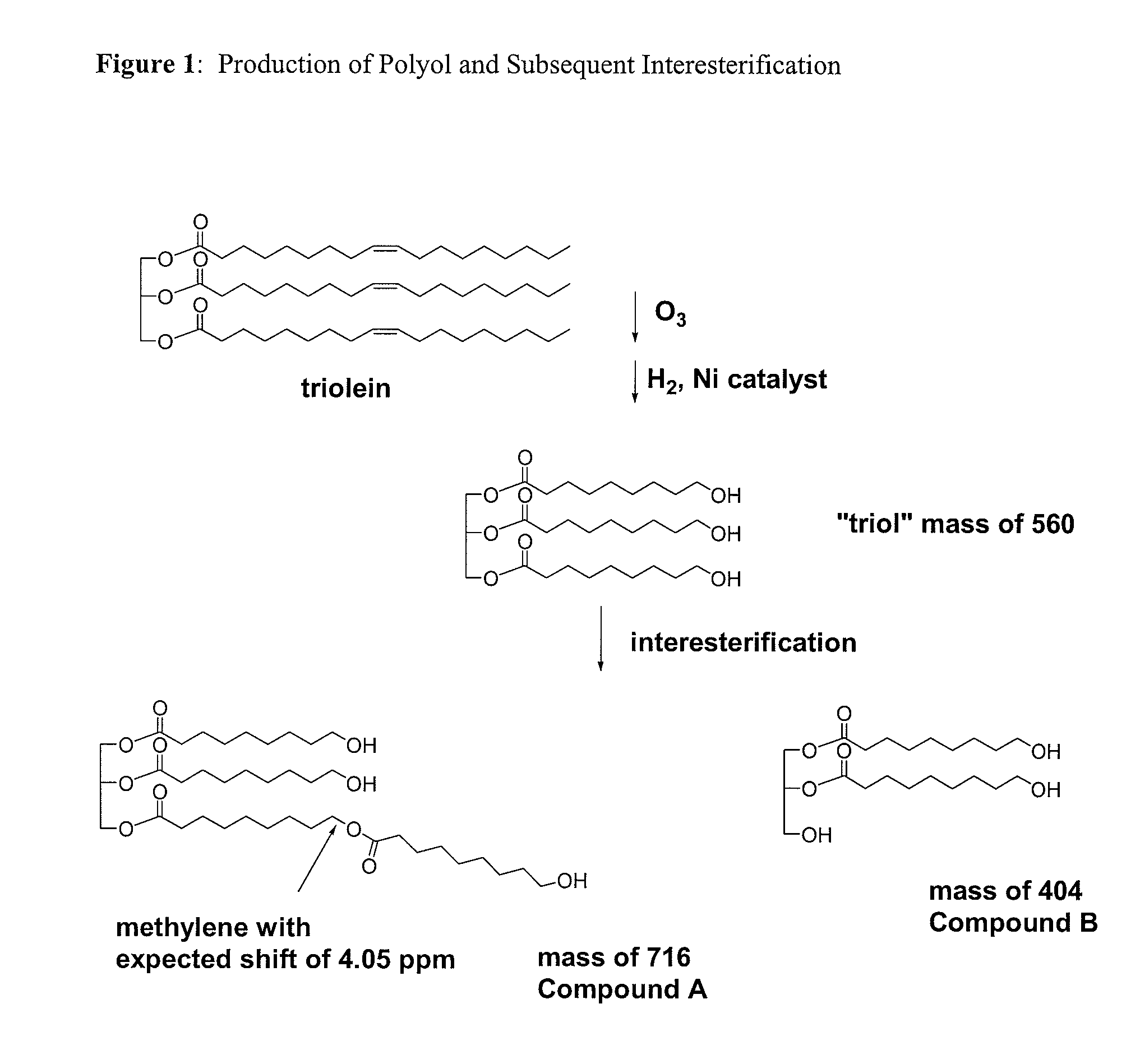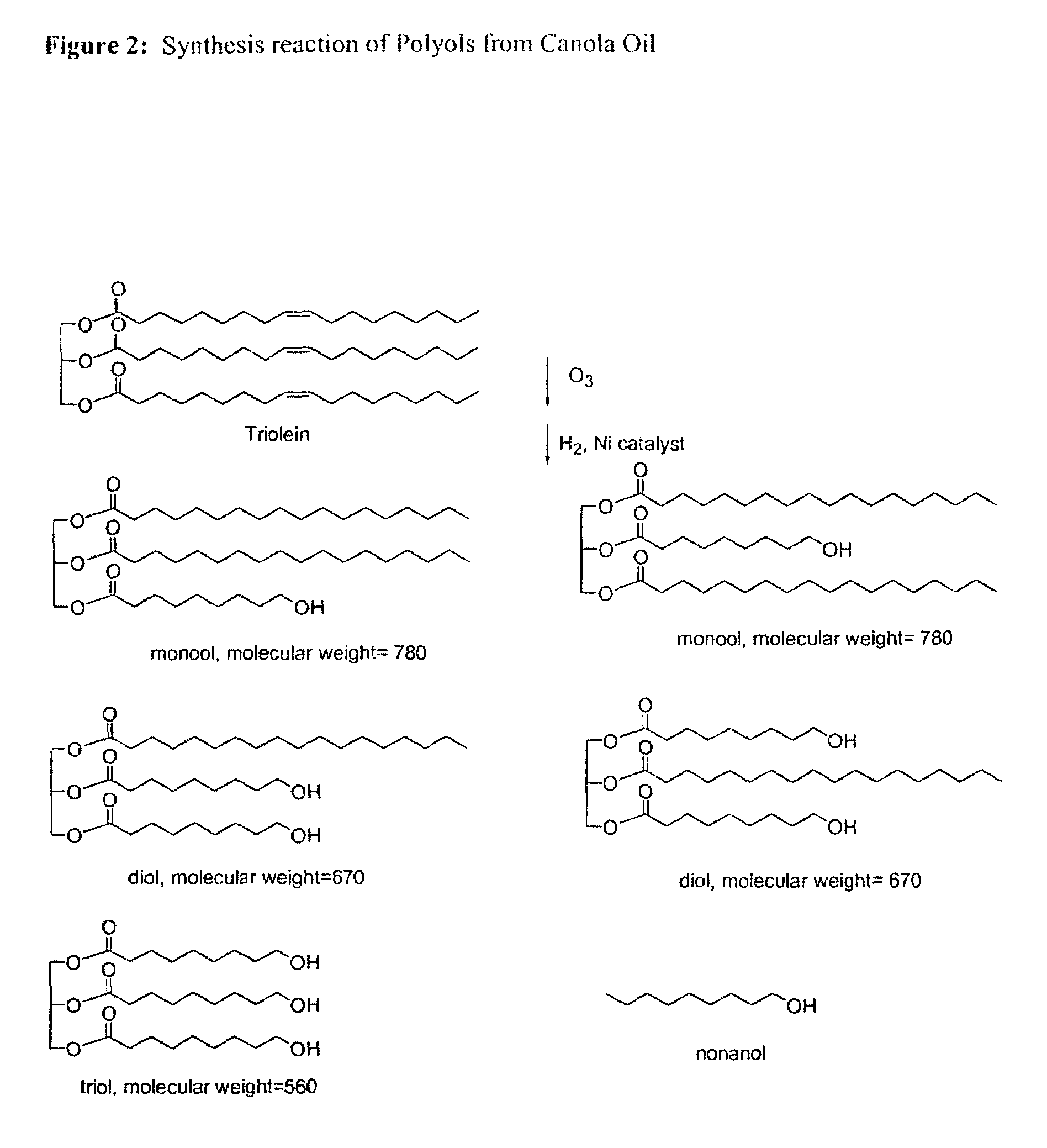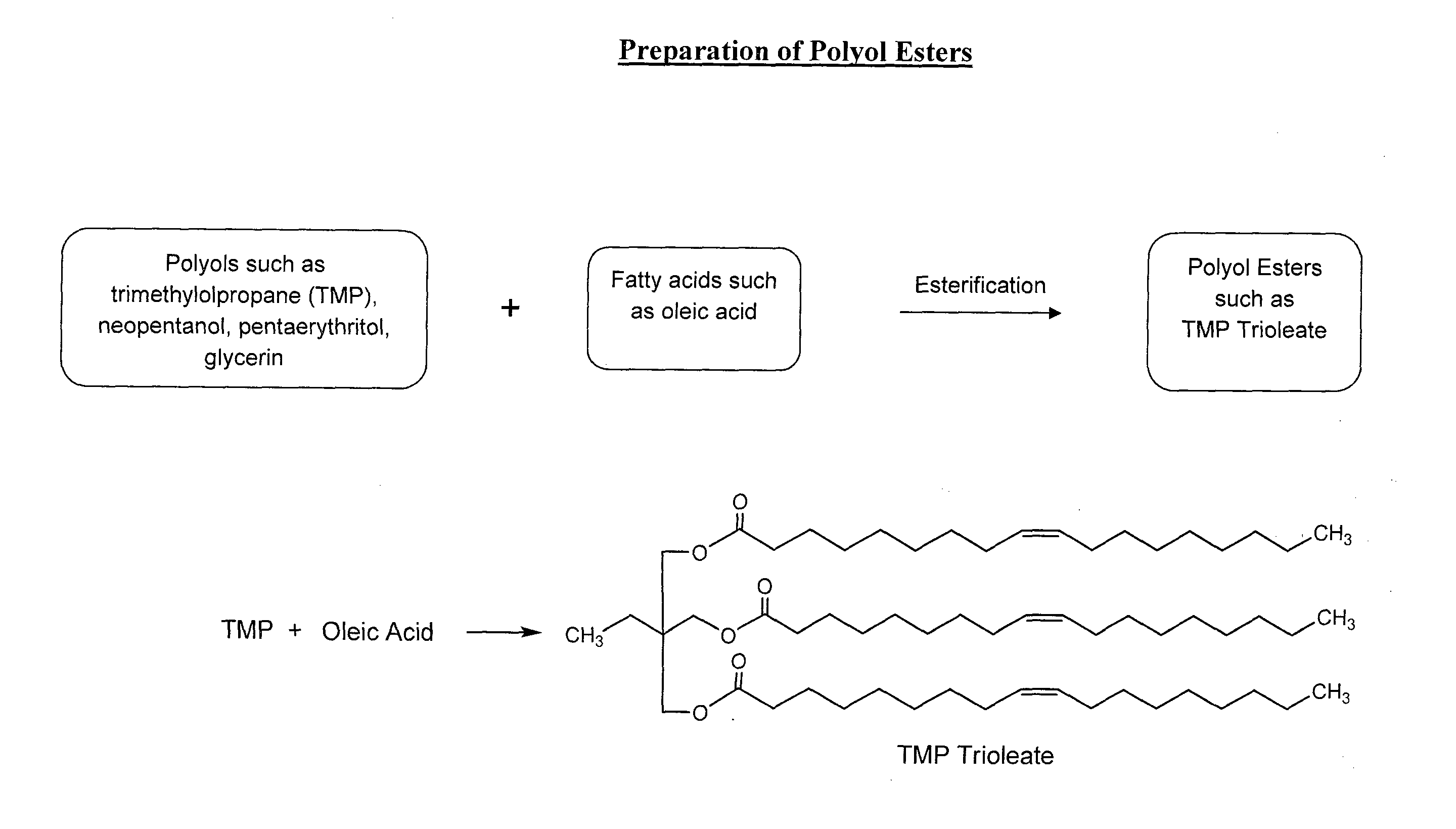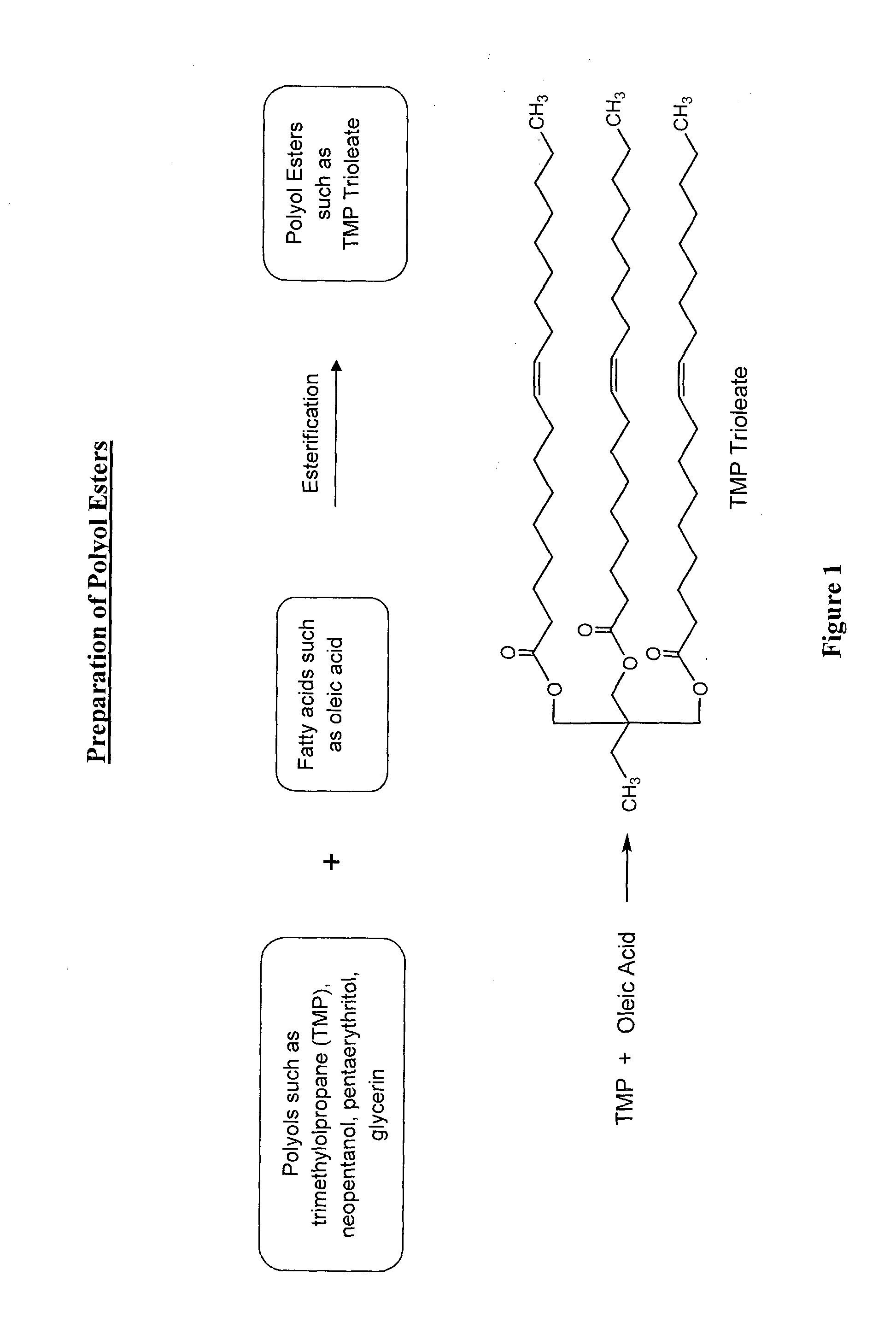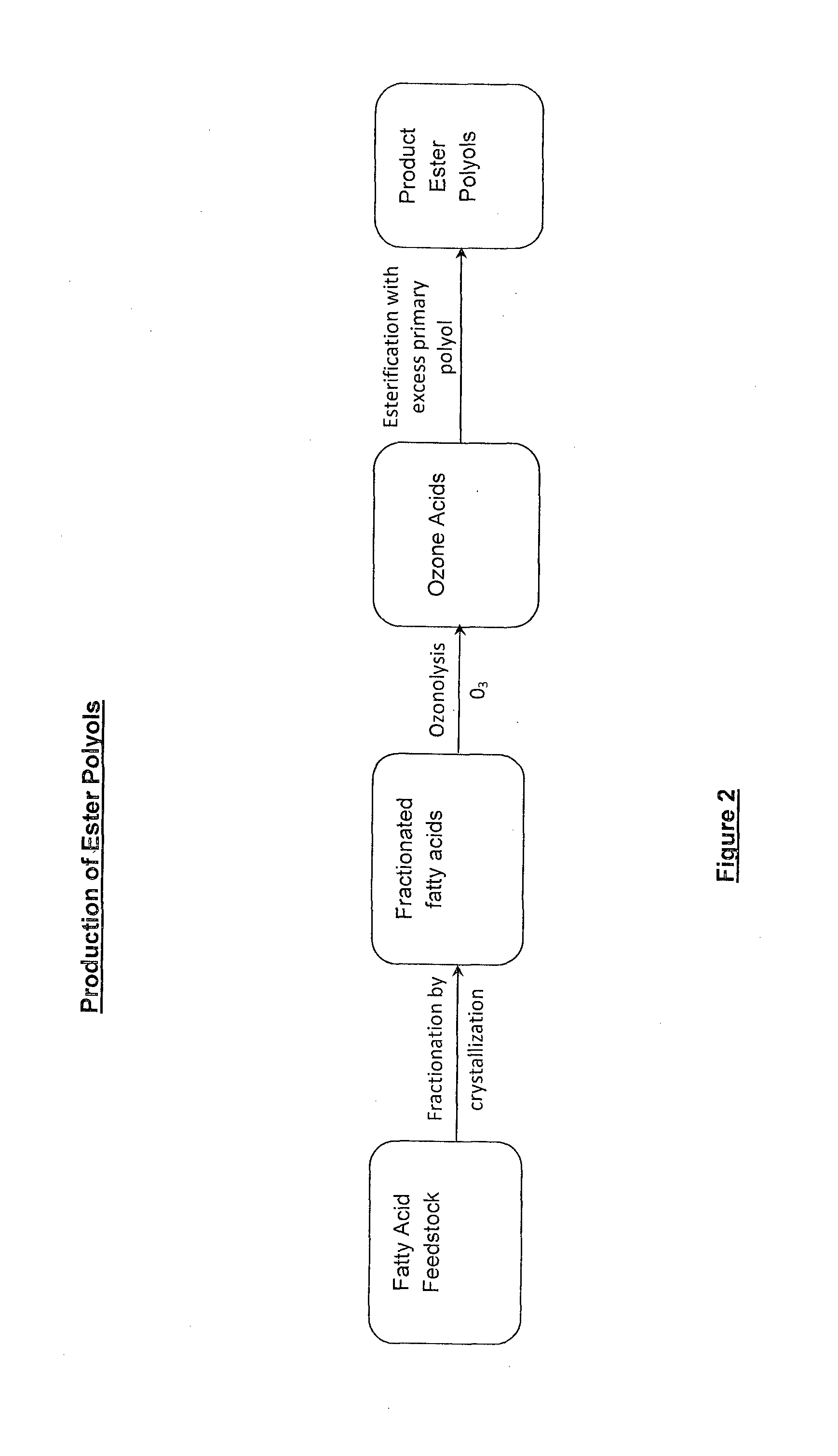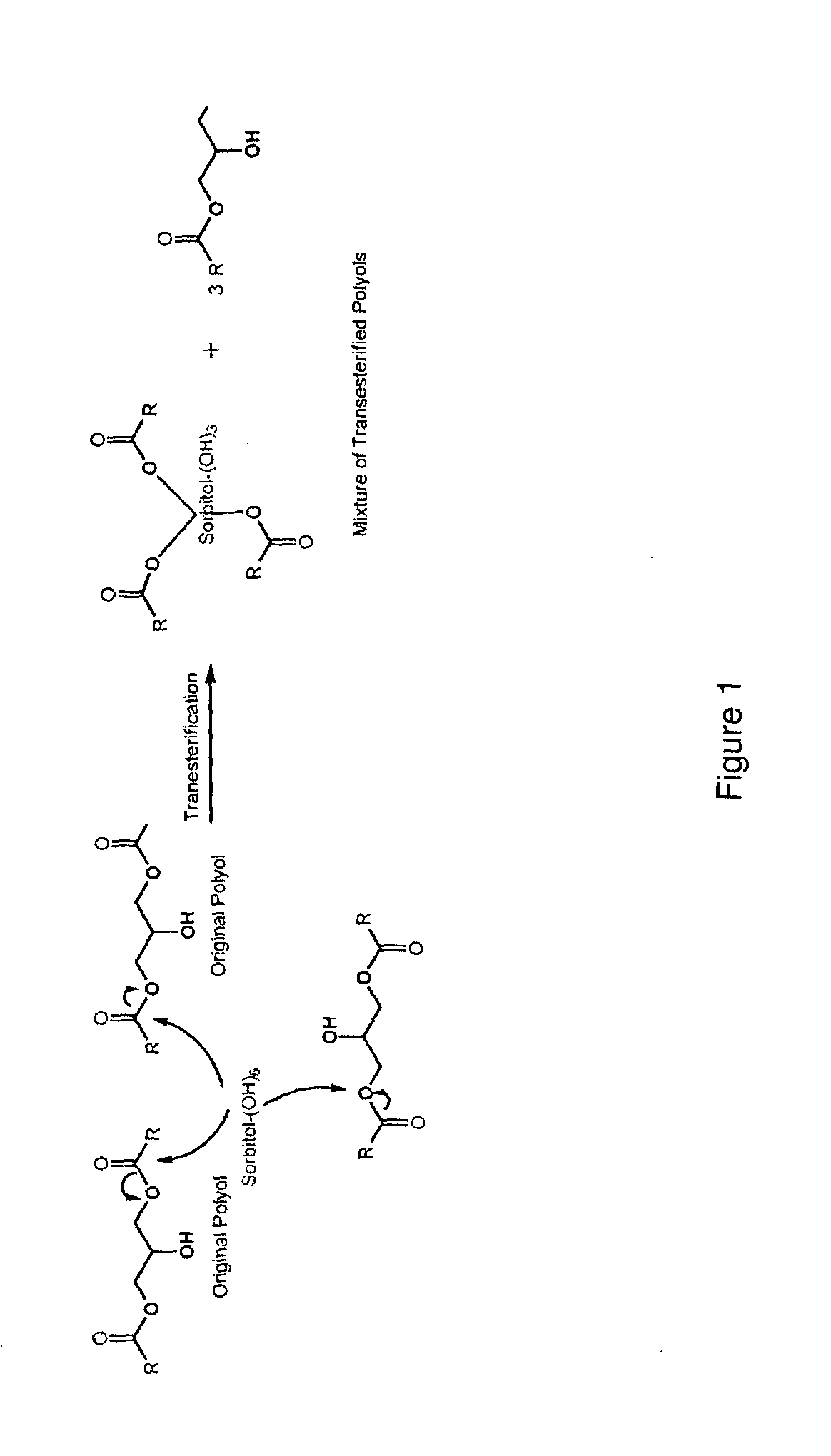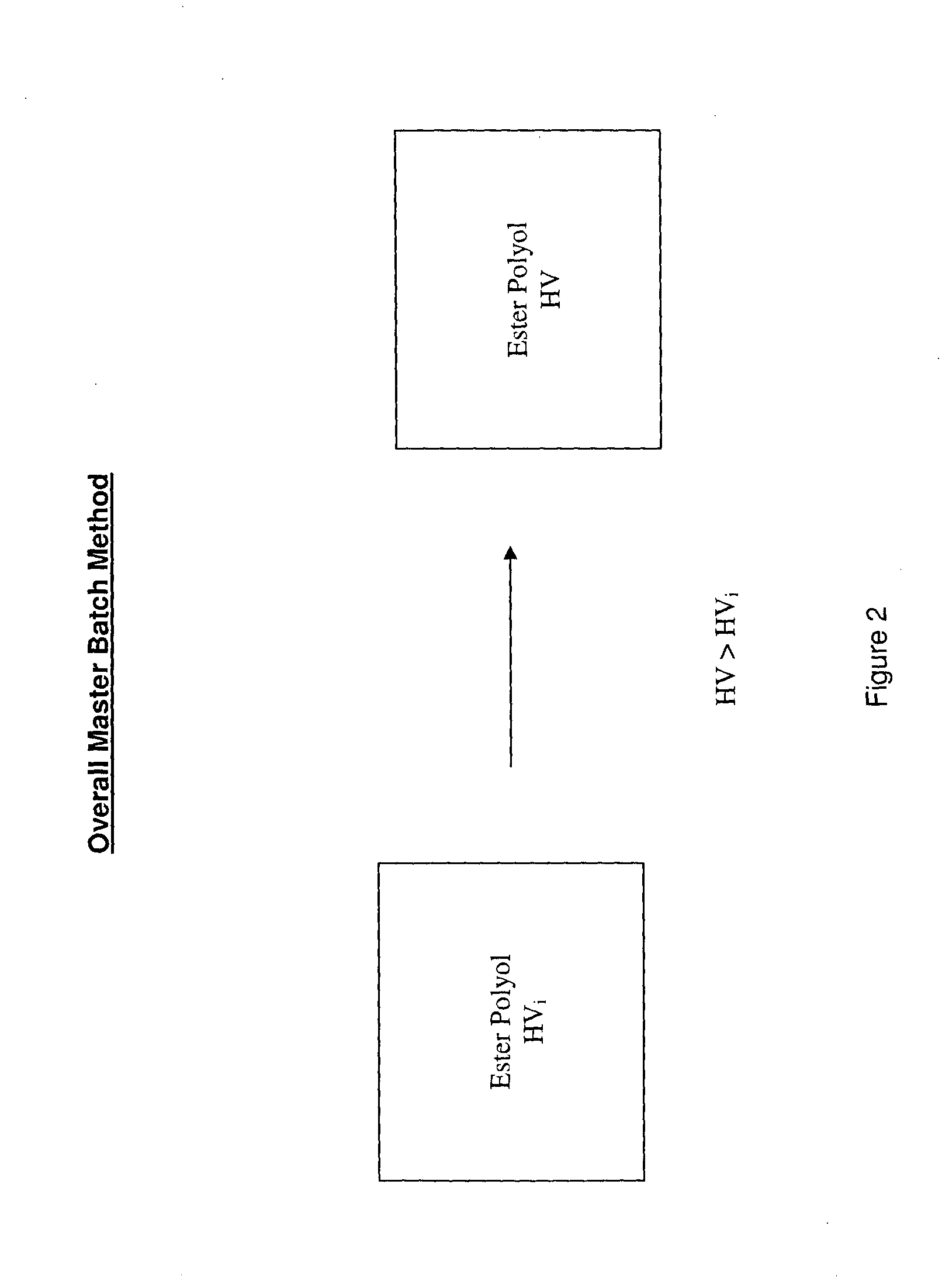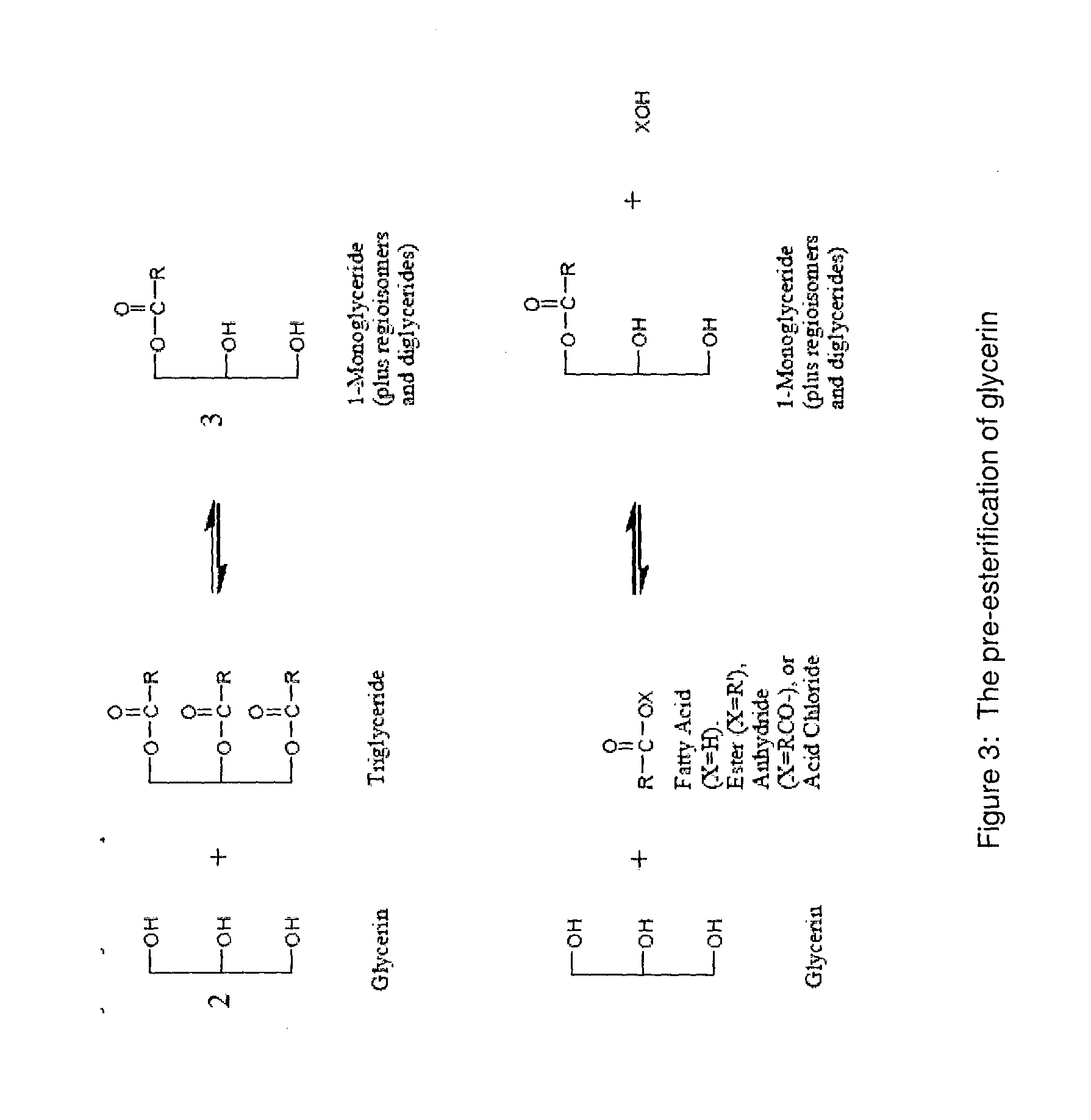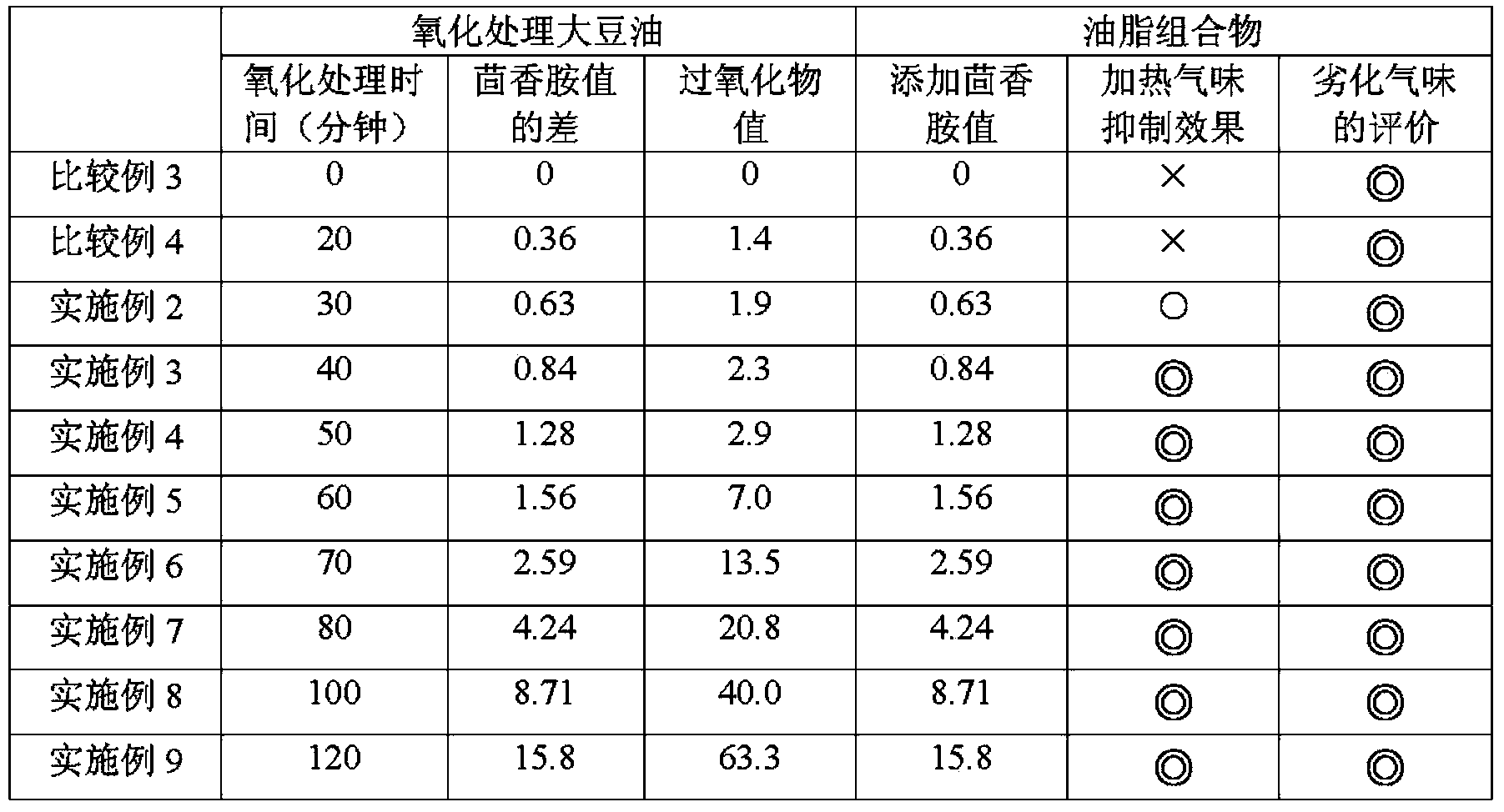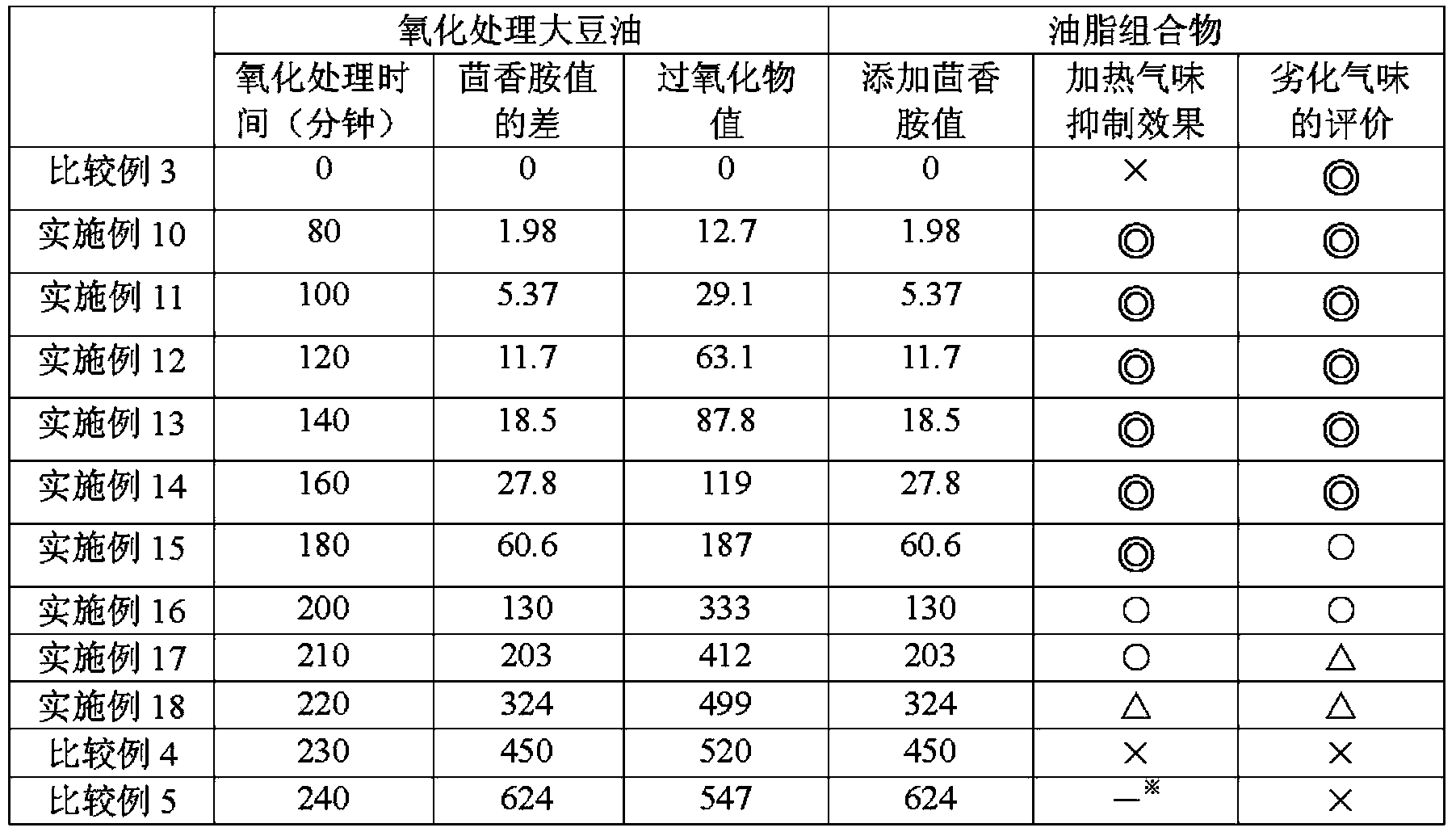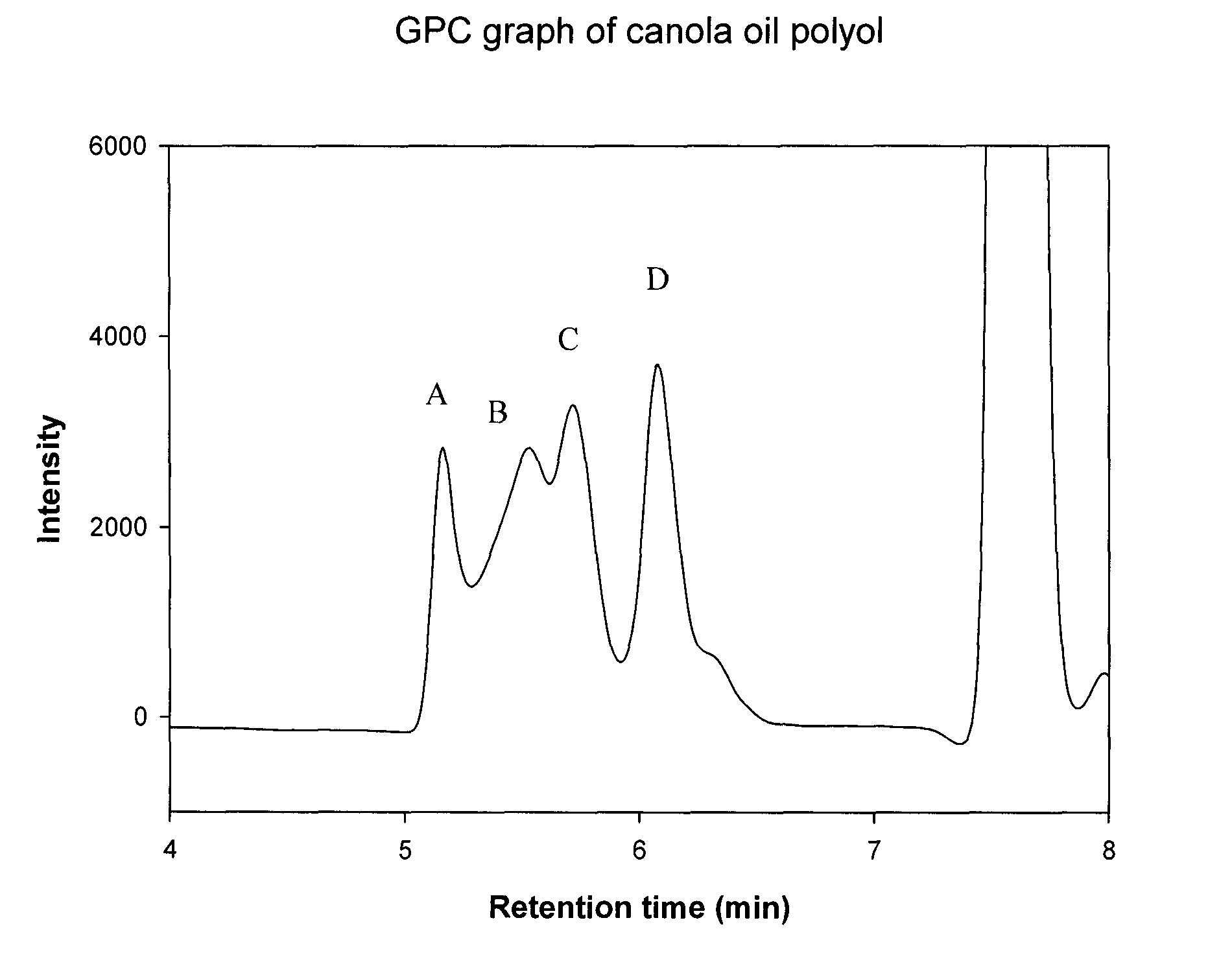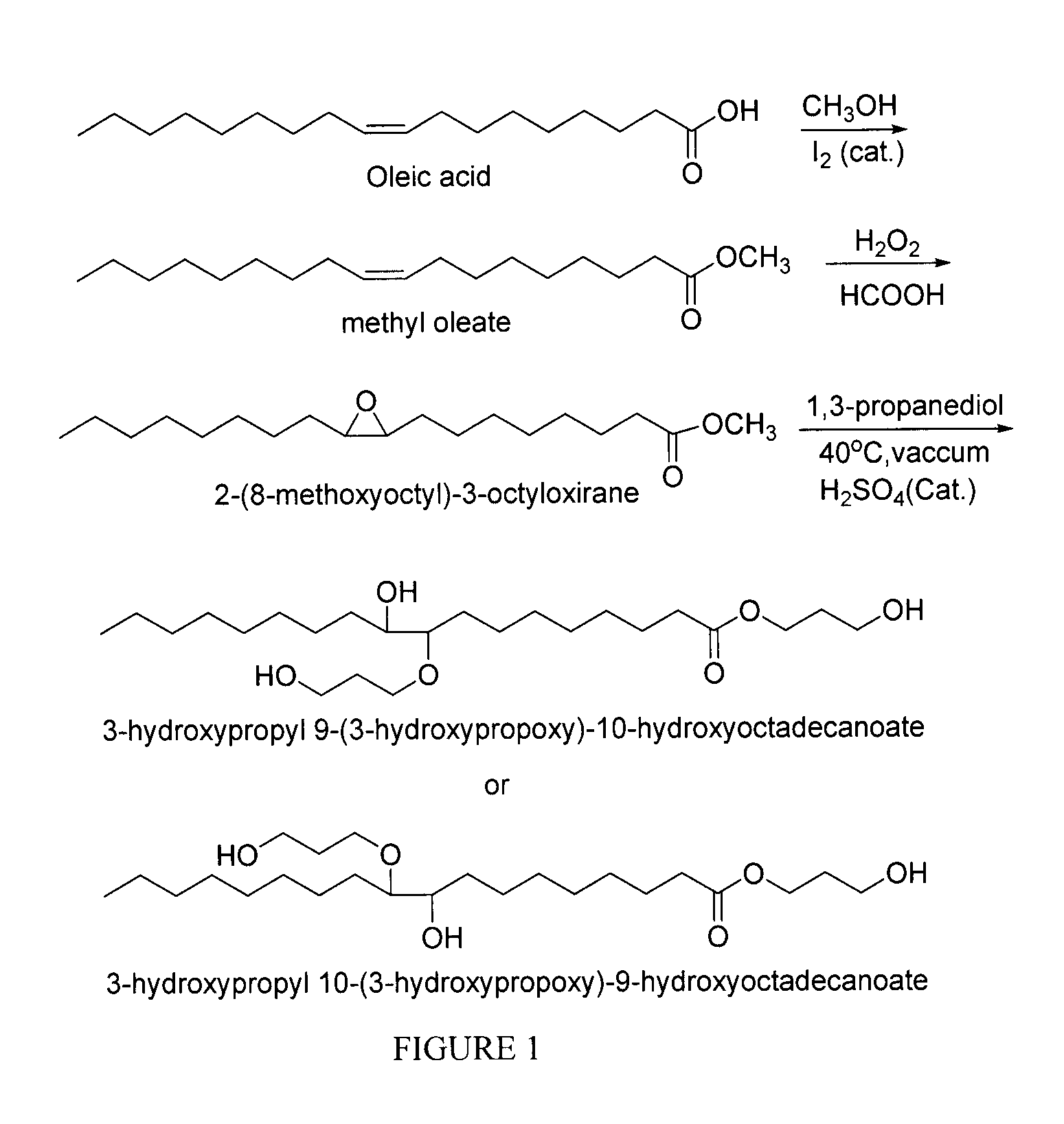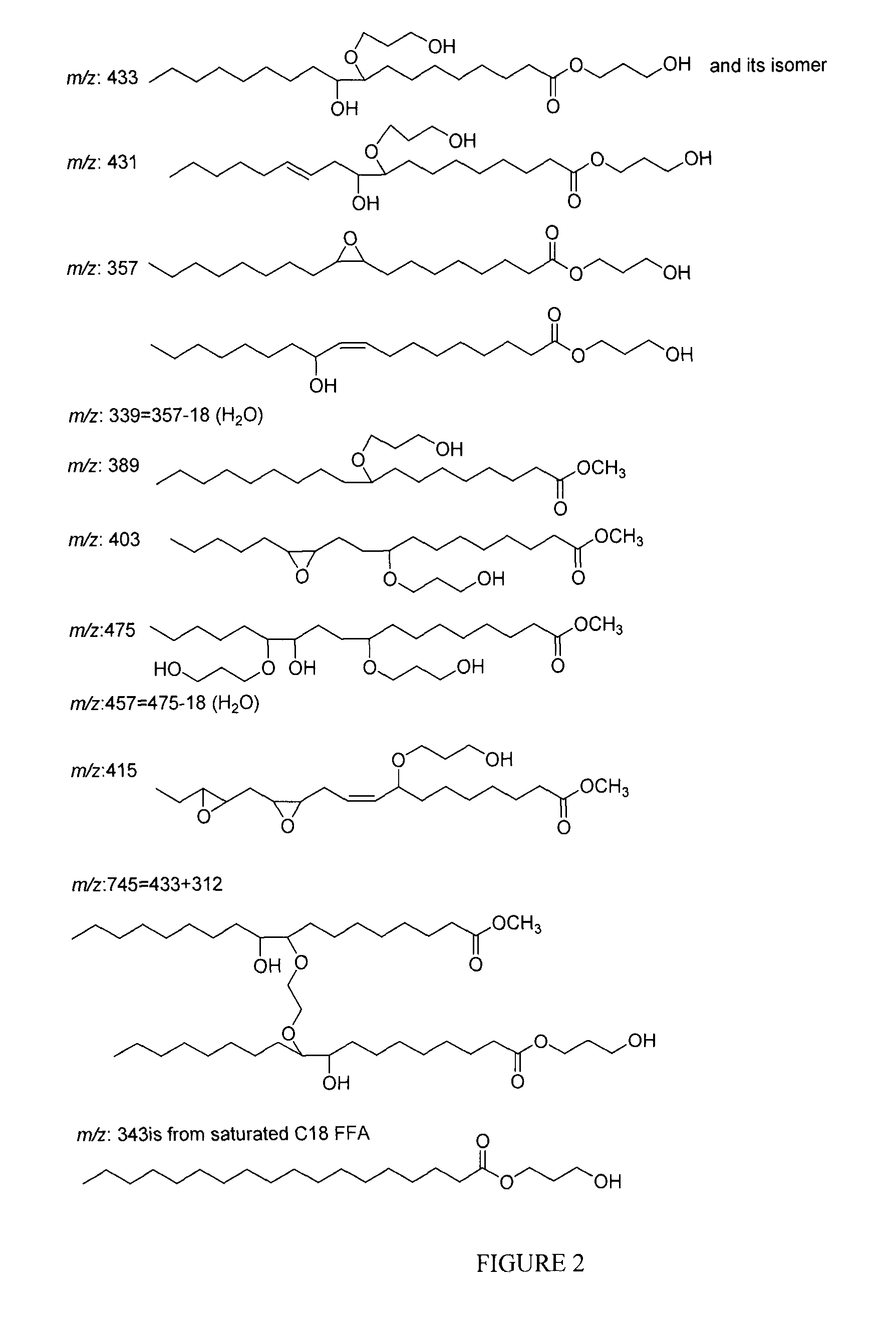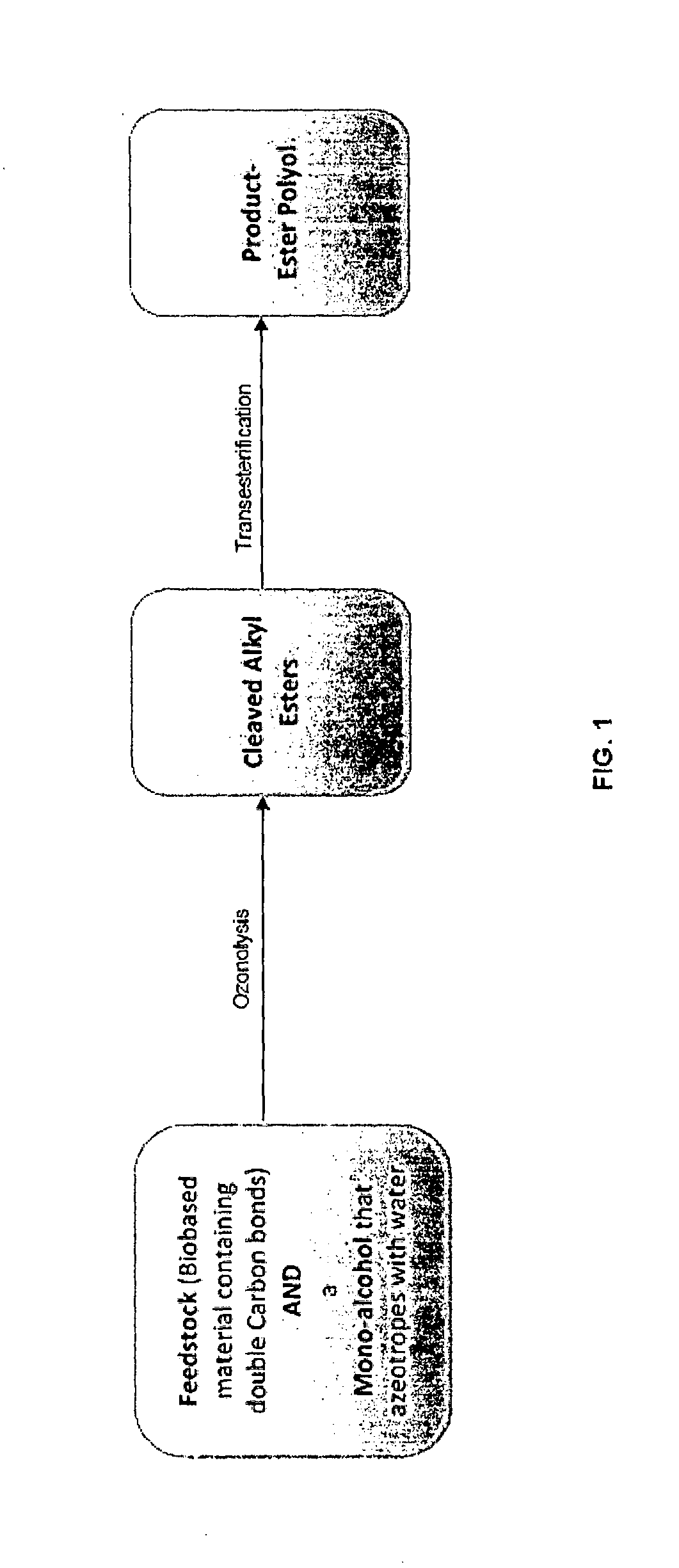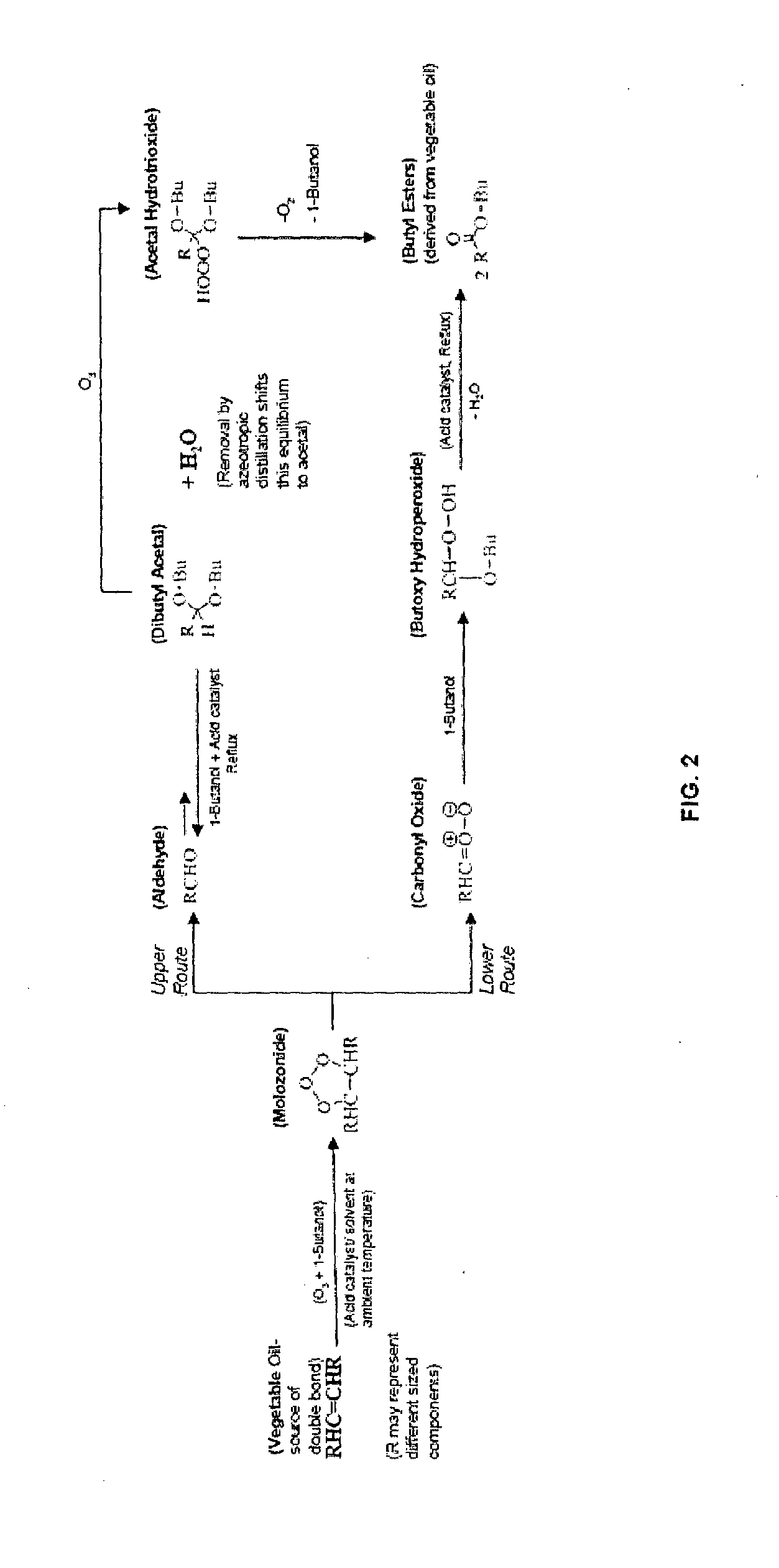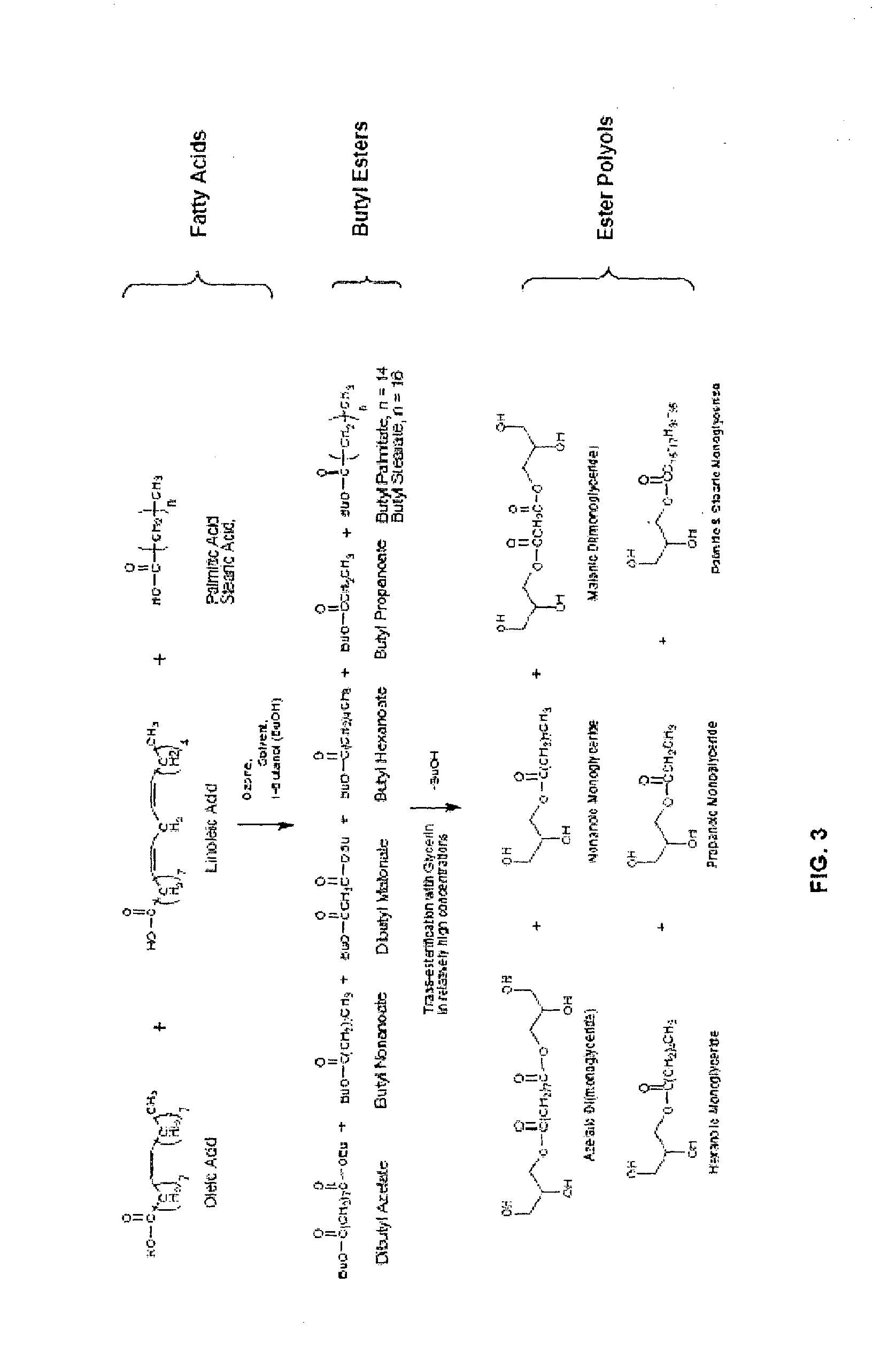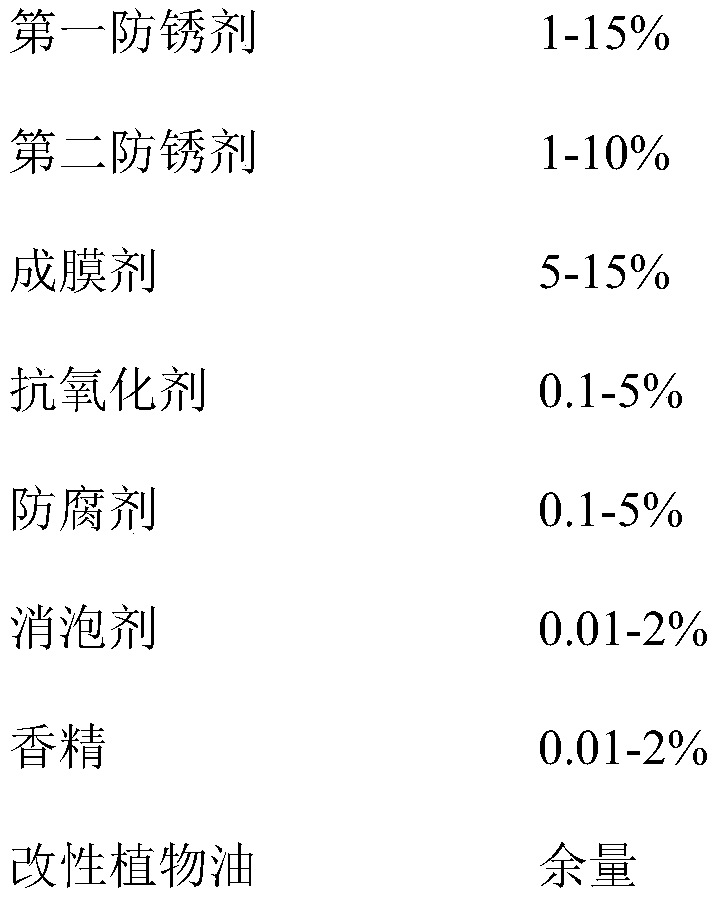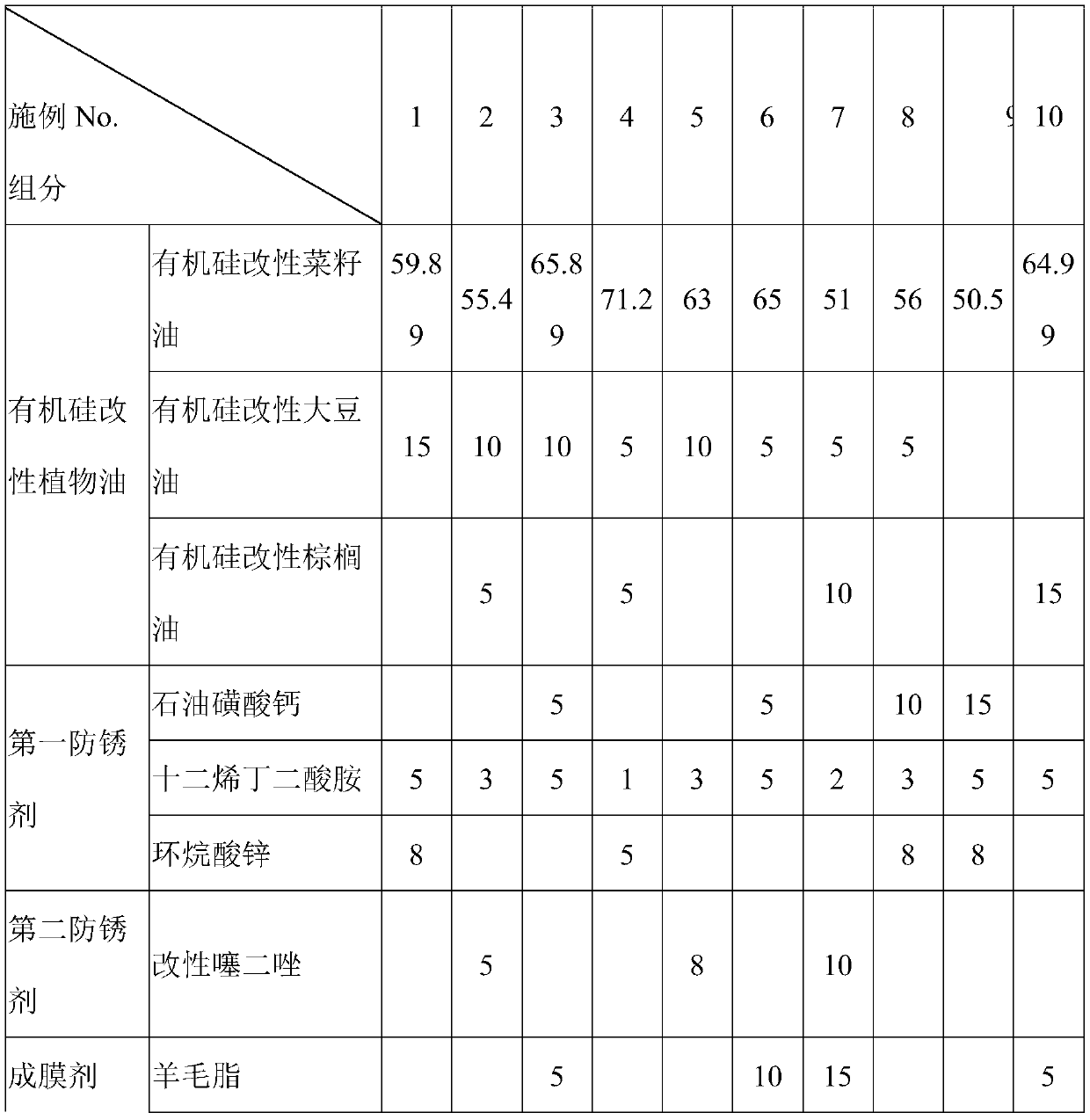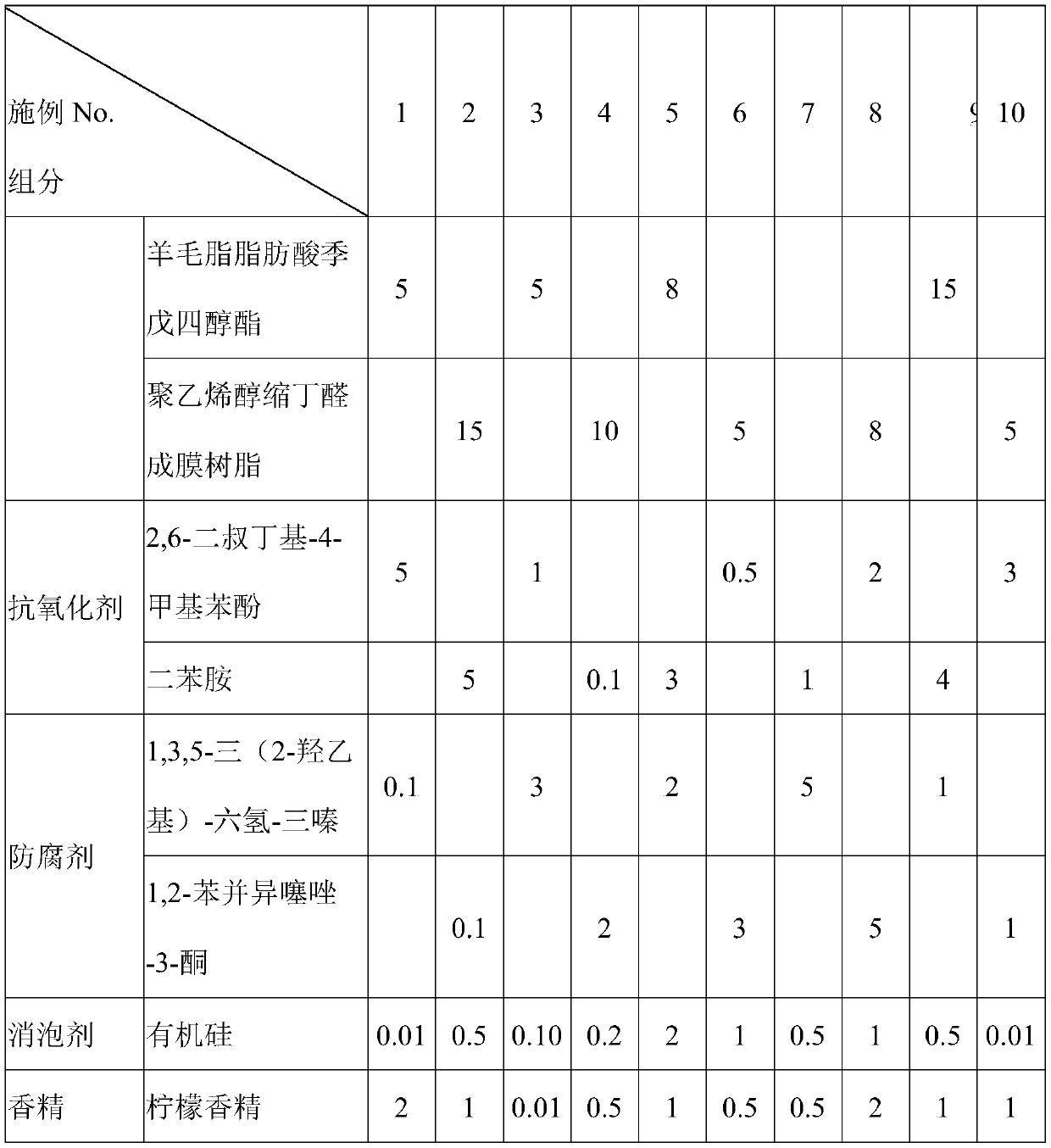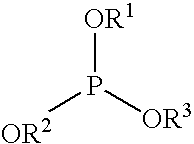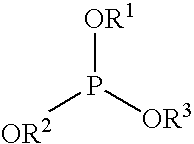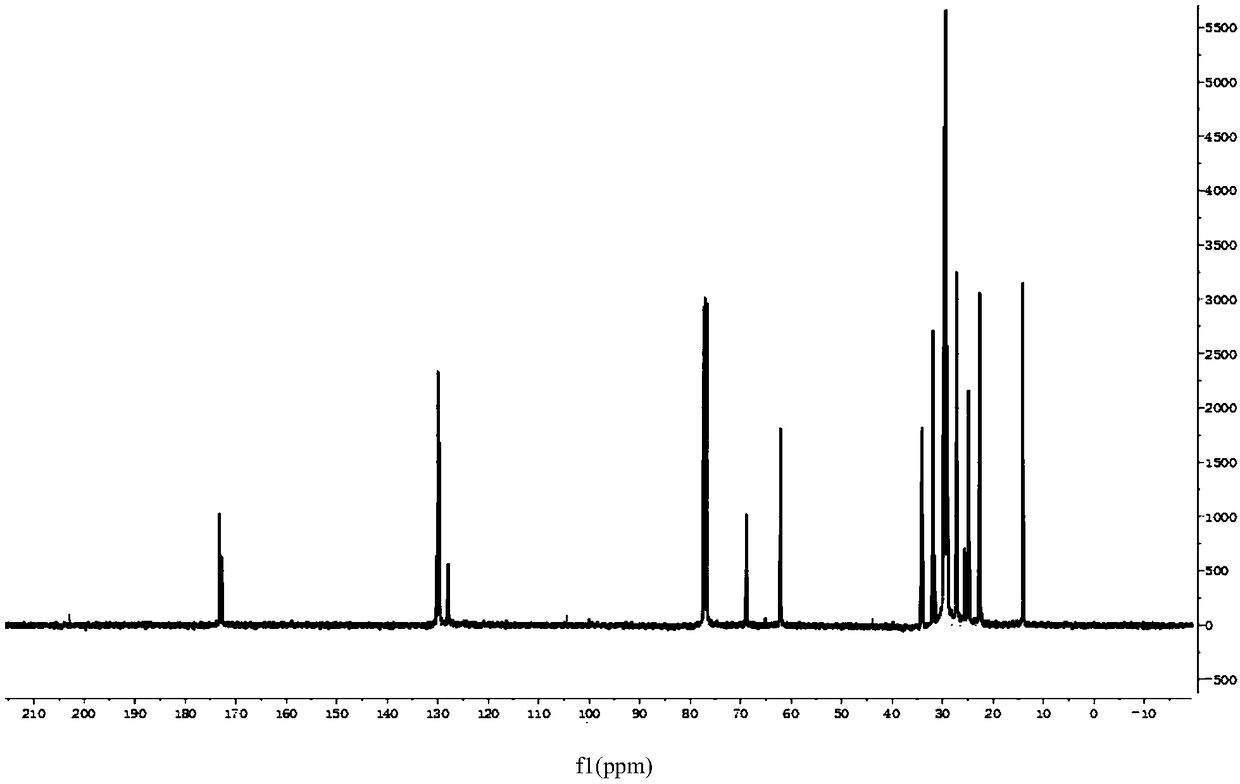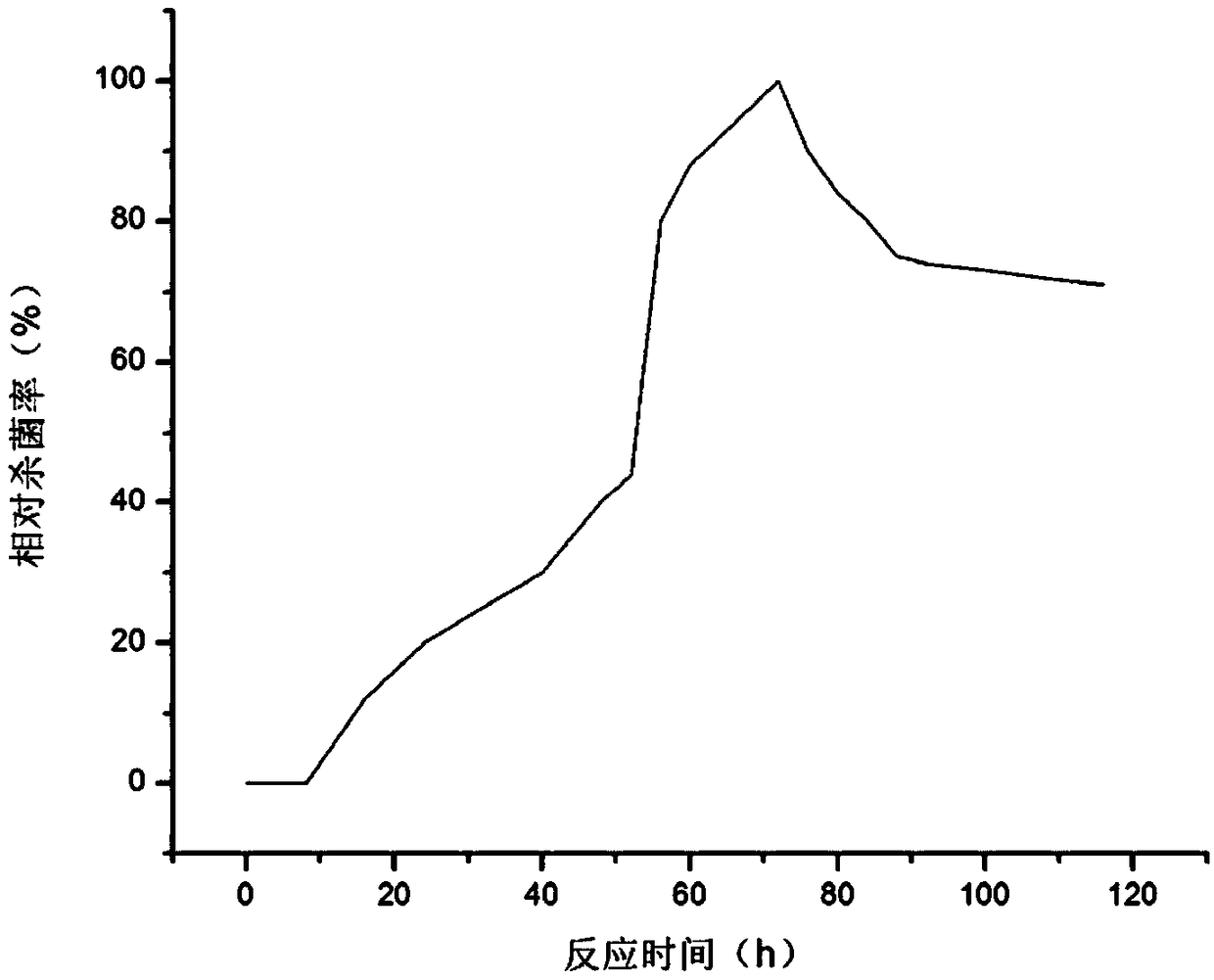Patents
Literature
Hiro is an intelligent assistant for R&D personnel, combined with Patent DNA, to facilitate innovative research.
138results about "Fatty acid oxidation" patented technology
Efficacy Topic
Property
Owner
Technical Advancement
Application Domain
Technology Topic
Technology Field Word
Patent Country/Region
Patent Type
Patent Status
Application Year
Inventor
Reactive oil compositions and uses thereof
InactiveUS20020103091A1Low viscosityImprove abilitiesEsterified saccharide compoundsSugar derivativesPolyolOxygen
A process for modifying an unsaturated polyol fatty acid ester stock, such as an unsaturated triacylglycerol oil, to enhance its reactivity provided. The method includes reacting the unsaturated polyol fatty acid ester stock with an oxygenating agent, such as an oxygen-containing gas. Tempering oils containing reactive polyol fatty acid esters and methods for their production and use are also provided.
Owner:CARGILL INC
Fuel Composition
ActiveUS20080229654A1Maximize product yieldYield maximizationFatty acid isomerisationFatty acid oxidationIsomerizationVegetable oil
Compositions and methods for forming hydrocarbon products from triglycerides are disclosed. In one aspect, the methods involve the thermal decomposition of fatty acids, which can be derived from the hydrolysis of triglycerides. The thermal decomposition products can be combined with low molecular weight olefins, such as Fischer-Tropsch synthesis products, and subjected to molecular averaging reactions. Alternatively, the products can be subjected to hydrocracking reactions, isomerization reactions, and the like. The products can be isolated in the gasoline, jet and / or diesel fuel ranges. Thus, vegetable oils and / or animal fats can be converted using water, catalysts, and heat, into conventional products in the gasoline, jet and / or diesel fuel ranges. These products are virtually indistinguishable from those derived from their petroleum-based analogs, except that they can have virtually no aromatic, sulfur or nitrogen content, they are derived, in whole or in part, from renewable resources, and can also be derived from domestically available coal and / or natural gas.
Owner:BRADIN DAVID
Methods of preparing hydroxy functional vegetable oils
Simple, economical preparative processes for the provision of pure hydroxyl functional materials that are derived by converting the alkene groups of the unsaturated molecules found in vegetable oils, into hydroxyl groups.
Owner:CARGILL INC
Process for producing a renewable fuel in the gasoline or jet fuel range
ActiveUS7928273B2Yield maximizationFatty acid isomerisationFatty acid oxidationVegetable oilGasoline
Processes for producing hydrocarbons in the gasoline and jet fuel range. The processes involve the thermal decarboxylation of fatty acids, which can be derived from the hydrolysis of triglycerides, which triglycerides can be vegetable oils, animal fats, or combinations thereof. The resulting hydrocarbons can be hydrocracked, and, optionally, isomerized and / or hydrotreated, to yield hydrocarbons in the jet fuel or gasoline range. Where the resulting hydrocarbons include olefinic double bonds, they can alternatively be combined with low molecular weight olefins, and subjected to olefin metathesis to yield hydrocarbons in the jet fuel or gasoline range.
Owner:BRADIN DAVID
Method for obtaining ozonized oils and vegetable fats and use of said products for pharmaceutical and cosmetic purposes
This invention is linked to the chemical, pharmaceutical and cosmetic industries, where the bactericidal, virucidal, parasiticidal and fungicidal properties of the ozonized vegetable oils and fats are considered. The emulsified vegetable oil or fat is driven to react with ozone in a bubbling reactor, covered by a jacket that makes possible to control the reaction's temperature. Ozone reacts with the double bonds present in vegetable oil or fat, giving rise to the formation of different peroxidic species, responsible for the biological action of those products. The ozonized vegetable oils and fats in those conditions are applied with satisfactory and advanced results to the treatment of diseases in diverse medical specialties, such as ophthalmology, dentistry, dermatology, gastroenterology, gynecology, parasitology, and others. Likewise, the cosmetic application of the ozonized vegetable oil and fats is described, considering their oxygenating and revitalizing properties of the skin. The results of the toxicological studies previously performed show that the products obtained according to this process do not show any cross or adverse reaction.
Owner:CENT NACIONAL DE INVESTIGACIONES CIENTIFICAS (CINC)
Bioplastics, monomers thereof, and processes for the preparation thereof from agricultural feedstocks
InactiveUS20070175793A1Improve responseReducing steric hindrance to crosslinkingFatty acid hydrogenationCoke ovensAlcoholWax ester
The present invention relates generally to polymers and monomers derived from agricultural feedstocks, and more particularly to methods for the production of monomers from renewable agricultural resources such as feedstocks, for example canola, flax and tallow, and polymers, in particular polyurethanes produced from monomers derived from such feedstocks. The present invention also relates to novel processes for the production of short-chain alcohols, as well as hydroxyl wax esters, from renewable feedstocks. An improved apparatus for carrying out ozonolysis reactions is also disclosed.
Owner:THE GOVERNORS OF THE UNIV OF ALBERTA
Polyol made from partialy hydrogenated, fully epoxidized natural oils
InactiveUS20110065821A1Low densityResistant to yellowingFatty acid hydrogenationFatty acid oxidationVegetable oilGram
A method is disclosed for making a polyol comprising: fully-epoxidizing a partially hydrogenated vegetable oil to obtain a fully-epoxidized vegetable oil derivative having an iodine value less than 4 g I2 / 100 gram, an EOC of from 4.0 to 5.7% and a Gardner color value of 2 or less; and then reacting the fully-epoxidized vegetable oil derivative with a ring opener to form a polyol having a hydroxyl number from 40 to 80 mg KOH / gram, a number average molecular weight of at least 1500 Daltons, a dynamic viscosity less than 10 pascal-seconds, and an EOC below 3.0 wt %.
Owner:CARGILL INC
Production of biofuels and biolubricants from a common feedstock
The present invention is directed to methods and systems for processing triglyceride-containing, biologically-derived oils, wherein such processing comprises conversion of triglycerides to free fatty acids and the separation of these fatty acids by saturation type. Such separation by type enables the efficient preparation of both lubricants and transportation fuels from a common source using a single integrated method and / or system.
Owner:CHEVROU USA INC
Methods of preparing hydroxy functional vegetable oils
ActiveUS20110313124A1Simple and efficientPreparation by oxidation reactionsOrganic oxidationOrganic acidVegetable oil
There is disclosed a process for hydroxylating vegetable oils to create polyols suitable for use in polymer processes, particularly polyurethane processes. The process includes contacting a vegetable oil with hydrogen peroxide and an organic acid having 1-3 carbon atoms under conditions sufficient to oxidize carbon to carbon double bonds found in the vegetable oil. There is also disclosed a vegetable oil based polyol having an acid number of 2.0 mg KOH / g or less. The polyol contains 0.1% w / w or less water, 0.1% w / w or less of the organic acid used to prepare the polyol, and triglyceride groups having fatty acid moieties ranging from C16 to C18. The fatty acid moieties contain pendant carboxylate groups having from 1 to 3 carbon atoms.
Owner:CARGILL INC
Production of biofuels and biolubricants from a common feedstock
InactiveUS7815694B2Fatty acid esterificationRefining to change hydrocarbon structural skeletonTriglycerideFatty acid
The present invention is directed to methods and systems for processing triglyceride-containing, biologically-derived oils, wherein such processing comprises conversion of triglycerides to free fatty acids and the separation of these fatty acids by saturation type. Such separation by type enables the efficient preparation of both lubricants and transportation fuels from a common source using a single integrated method and / or system.
Owner:CHEVROU USA INC
Methods of preparing hydroxy functional vegetable oils
Simple, economical preparative processes for the provision of pure hydroxyl functional materials that are derived by converting the alkene groups of the unsaturated molecules found in vegetable oils, into hydroxyl groups.
Owner:CARGILL INC
Triglycerides and method of preparation thereof
InactiveUS7589222B2Promote conversionSimple processOrganic oxidationFatty acid esterificationPolyolTG - Triglyceride
A process for the preparation of new polyols from a natural oil is described. The process involves ozone cleavage of double bonds in the fatty acid chains of the oils along with coupling of a di or polyol to the cleaved ends of the molecules resulting from the cleavage with a base. The resulting polyols are as intermediates for polymers.
Owner:BIOPLASTIC POLYMERS COMPOSITES LLC +1
Process for modifying vegetable oils and primary plasticizer for vinyl polymers
ActiveUS20120289727A1Improve efficiencyReduce risk of formationFatty acid esterificationOrganic compound preparationAlcoholVegetable oil
The present invention refers to a process for modifying epoxidized or non-modified vegetable oils. More specifically, it refers to the process through which vegetable oils and alcohols are converted into fatty acid alkyl esters through transesterification. The present invention also refers to the products obtained through the process disclosed herein.
Owner:NPC IND QUIMICAS
Novel polyols derived from a vegetable oil using an oxidation process
InactiveUS20070173626A9Fatty oils/acids recovery from wasteOrganic compound preparationPolyolVegetable oil
Owner:RHINO LININGS CORP +1
Polyol formed from an epoxidized oil
InactiveUS20090286896A1Efficient and accurate and consistent mannerFacilitates ring openingOrganic compound preparationFatty acids production/refiningOrganic acidPolyol
A polyol includes the reaction product of an epoxidized oil and an organic acid. The epoxidized oil and the organic acid are reacted in the presence of a Lewis base catalyst including at least one of a phosphorous atom or a nitrogen atom. The polyol is formed by a method that includes the step of reacting the epoxidized oil with the organic acid in the presence of the Lewis base catalyst.
Owner:BASF AG
Methods for production of polyols from oils and their use in the production of polyesters and polyurethanes
Methods to convert biobased oils, oil derivatives, and modified oils to highly functionalized esters, ester polyols, amides, and amide polyols. The products can be used to make polyurethane and polyester films and foams.
Owner:BATTELLE MEMORIAL INST
Composition and methods for improved fuel production
ActiveUS20130291431A1Hydrogen utilizationPromote WGS reactionFatty acid esterificationFatty acid oxidationSyngasEngineering
Certain embodiments of the present invention are configured to produce boiler and transportation fuels. A first phase of the method may include oxidation and / or hyper-acidification of bio-oil to produce an intermediate product. A second phase of the method may include catalytic deoxygenation, esterification, or olefination / esterification of the intermediate product under pressurized syngas. The composition of the resulting product—e.g., a boiler fuel—produced by these methods may be used directly or further upgraded to a transportation fuel. Certain embodiments of the present invention also include catalytic compositions configured for use in the method embodiments.
Owner:MISSISSIPPI STATE UNIVERSITY
Bioplastics, monomers thereof, and processes for the preparation thereof from agricultural feedstocks
InactiveUS7538236B2Reducing steric hindrance to crosslinkingProduce some attenuationFatty acid hydrogenationCoke ovensAlcoholWax ester
The present invention relates generally to polymers and monomers derived from agricultural feedstocks, and more particularly to methods for the production of monomers from renewable agricultural resources such as feedstocks, for example canola, flax and tallow, and polymers, in particular polyurethanes produced from monomers derived from such feedstocks. The present invention also relates to novel processes for the production of short-chain alcohols, as well as hydroxyl wax esters, from renewable feedstocks. An improved apparatus for carrying out ozonolysis reactions is also disclosed.
Owner:THE GOVERNORS OF THE UNIV OF ALBERTA
Lubricant composition of matter and methods of preparation
ActiveUS20150018260A1Pour pointImprove thermal stabilityFatty acid esterificationFatty acids production/refiningPolyolCarboxylic acid
Ester polyol esters are a unique class of lubricants that have adjustable molecular weights, viscosities, and pour points based on the character of their reaction materials and relative ratios. There is provided a method for preparing at least one ester polyol ester, the method comprising esterifying an ester polyol reaction mixture to produce ester polyol, the reaction mixture comprising an ozone acid mixture and at least one primary polyol, wherein the ozone acid mixture comprises at least one dicarboxylic acid and at least one monocarboxylic acid; and capping the ester polyol with at least one capping carboxylic acid to produce ester polyol ester.
Owner:GASOLINEIAM NASIONAL BERHAD
Full-bodied taste enhancer containing product of decomposition of long-chain highly unsaturated fatty acid or containing extract therefrom
InactiveUS20070009642A1High potencyReduce the amount requiredFatty acid oxidationFood ingredient as taste affecting agentDecompositionLarge Calorie
The purpose of the present invention is to provide a body taste improver comprising a small amount of fat and oil, but significantly showing body taste, i.e., a body taste improver with a high titer. The high titer of the improver will reduce an amount of the fat and oil to be added and calorie as well, and will enable to use the body taste improver in foods that originally contain little fat and oil, such as Japanese-style clear soup and soybean soup. Thus, the present invention is related to a body taste improver comprising decomposed substances of a long-chain highly unsaturated fatty acid and / or an ester thereof, to a body taste improver comprising an extract of decomposed substances of a long-chain highly unsaturated fatty acid and / or an ester thereof, and to a food comprising said body taste improver.
Owner:J OIL MILLS INC
Method for modifying vegetable oils and primary plasticizer for vinyl polymers
InactiveCN102762707AImprove efficiencyFatty acid esterificationPreparation by ester-hydroxy reactionPolymer scienceVegetable oil
The present invention refers to a process for modifying epoxidized or non-modified vegetable oils. More specifically, it refers to the process through which vegetable oils and alcohols are converted into fatty acid alkyl esters through transesterification. The present invention also refers to the products obtained through the process disclosed herein.
Owner:NPC IND QUIMICAS
Bio-polyols for bio-lubricant and bio-polymer and methods for the preparation thereof
ActiveUS20150087850A1Increase valueSynthetic is simpleFatty acid esterificationOrganic compound preparationBiopolymerHydroxyl value
A method for producing an ester polyol, comprising transesterifying a first ester polyol with a primary polyol to produce a second ester polyol, wherein the second ester polyol has a higher hydroxyl value than the first ester polyol.
Owner:GASOLINEIAM NASIONAL BERHAD
Oil or fat composition
ActiveCN103547163ASuppresses Heating OdorsImproved floweringFatty acid oxidationEdible oils/fatsEdible oilOil and grease
[Problem] An oil or fat composition capable of suppressing a cooked odor without the use of an additive such as an emulsifier is provided. [Solution] This oil or fat composition is characterized in comprising an edible oil or fat and an oil or fat in which new oil or fat has been oxidized so that the difference in anisidine values after oxidation treatment is 0.5-350, wherein the added anisidine value is 0.07-350 as calculated using the formula: added anisidine value = ((anisidine value after oxidation treatment) - (anisidine value prior to oxidation treatment)) × added amount (wt%).
Owner:J OIL MILLS INC
Bio-based wax compositions and applications
Bio-based wax compositions contain at least one of the following components: epoxides of non-hydrogenated vegetable oils, epoxides of fatty acid esters. epoxides of tall oil fatty acid esters, chemically modified epoxides of non-hydrogenated vegetable oils, chemically modified epoxides of fatty acid esters, and chemically modified epoxides of tall oil fatty acid esters. The wax compositions can be used to produce candle sticks, container candles and / or composite materials.
Owner:GALATA CHEM LLC
Polyol synthesis from fatty acids and oils
ActiveUS9216940B2Low viscosityReduce molecular weightFatty acid esterificationFatty acids production/refiningIodo fatty acidPolyol synthesis
A method for preparing polyols from fatty acid substrates such as free fatty acids, alkyl esters of fatty acids, mono-glycerides, diglycerides, and triglycerides. The method comprises the steps of (a) epoxidizing an unsaturated fatty acid substrate and (b) hydroxylating the epoxidized fatty acid substrate with at least one diol to produce a polyol or a blend of polyols. The method may be varied to produce polyols with desired functionality, molecular weights, or viscosity.
Owner:THE GOVERNORS OF THE UNIV OF ALBERTA
Method for the production of esters and uses thereof
ActiveUS20150080599A1Produced in advanceLess expensiveFatty acid esterificationOrganic compound preparationOzonolysisDouble bond
Alkyl esters (butyl, hexyl, or other) of full composition palm fatty acids, palm fatty acid distillates (PFAD), and palm kernel fatty acid distillates (PKFAD) can be used to generate polyurethane and lubricant products. The alkyl esters of the present invention can be produced via ozonolysis. The improved method for producing alkyl esters includes reacting at least one substance having at least one carbon-to-carbon double bond with ozone in the presence of least one monoalcohol that azeotropes with water. In particular, the method may comprise reacting with at least one first mole of ozone and at least one second mole of ozone, and further comprises refluxing before addition of the second mole of ozone.
Owner:GASOLINEIAM NASIONAL BERHAD
Anti-rust oil free of heavy metals
InactiveCN111073737ANo pollution in the processSave energyFatty acid esterificationFatty acid oxidationVegetable oilPreservative
The invention discloses anti-rust oil free of heavy metals. The anti-rust oil is prepared from, by weight, 1%-15% of a first anti-rust agent, 1%-10% of a second anti-rust agent, 5%-15% of a film-forming agent, 0.1%-5% of an antioxidant, 0.1%-5% of a preservative, 0.01%-2% of a defoaming agent, 0.01%-2% of essence and the balance modified vegetable oil. Components of the anti-rust oil do not contain heavy metals, the modified vegetable oil replaces mineral oil to serve as base oil, the modified vegetable oil is biodegradable and environment-friendly, the modified vegetable oil is not easy to oxidize, the antirust oil is good in stability and long in service life, and the first anti-rust agent and the second anti-rust agent have a synergistic effect, so that the antirust performance is good.
Owner:苏州福瑞斯德新材料科技有限公司
Peroxide reduction in functionalized vegetable oils
InactiveUS20080132712A1Promote reductionFatty oils/acids recovery from wasteFatty acid hydrogenationArylVegetable oil
Disclosed is a method for the reduction of residual peroxides in vegetable oils, preferably epoxidized vegetable oils using a phosphorous compound preferably alkyl / aryl substituted phosphite compounds or hypophosphorous acid and its derivatives.
Owner:GALATA CHEM LLC
Bio-asphalt, bio-asphalt composition and method for preparing them
ActiveUS20160194580A1Low production costLow costOrganic oxidationIn situ pavingsBituminous materialsAromatic hydrocarbon
The disclosure provides bio-asphalt, bio-asphalt compositions and a method for preparing them. It belongs to the technical field of asphalt material. The method of the disclosure uses bio-oil as the raw material, adopts a combination of extraction process and oxidation process to prepare bio-asphalt, and modifies the product obtained from bio-oil by extraction process or bio-asphalt with ordinary petroleum asphalt and / or aromatic hydrocarbon oil and a macromolecular material to obtain a bio-asphalt composition.
Owner:RES INST OF HIGHWAY MINIST OF TRANSPORT
Preparation method for medical ozonized oil
ActiveCN109234021AShort synthetic routeEasy to operateAntibacterial agentsInorganic active ingredientsOzone generatorVegetable oil
The invention discloses a preparation method for medical ozonized oil. By taking vegetable oil as an initial raw material, ozone is introduced by an ozone generator continuously to carry out an ozonizing reaction to obtain the ozonized oil. The reactant meets the demand on the medical ozonized oil. The method is easily available in raw material, relatively low in cost, simple to operate, green andenvironment-friendly and suitable for scaled production.
Owner:陕西福科原力健康科技有限公司
Features
- R&D
- Intellectual Property
- Life Sciences
- Materials
- Tech Scout
Why Patsnap Eureka
- Unparalleled Data Quality
- Higher Quality Content
- 60% Fewer Hallucinations
Social media
Patsnap Eureka Blog
Learn More Browse by: Latest US Patents, China's latest patents, Technical Efficacy Thesaurus, Application Domain, Technology Topic, Popular Technical Reports.
© 2025 PatSnap. All rights reserved.Legal|Privacy policy|Modern Slavery Act Transparency Statement|Sitemap|About US| Contact US: help@patsnap.com
